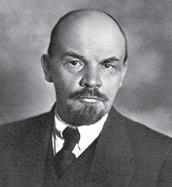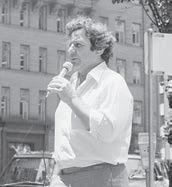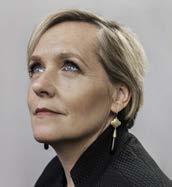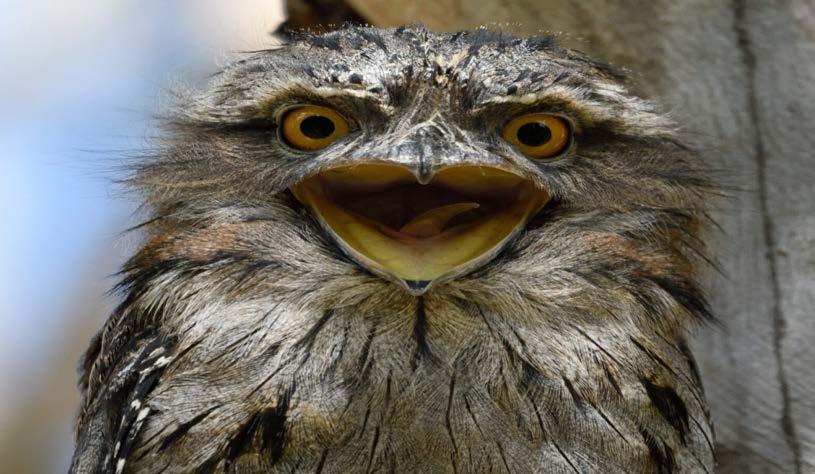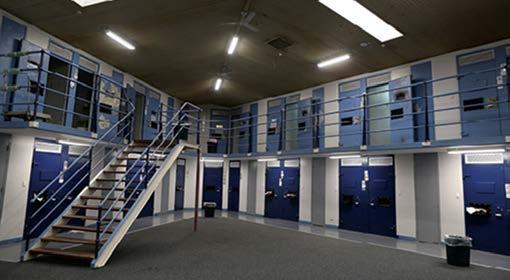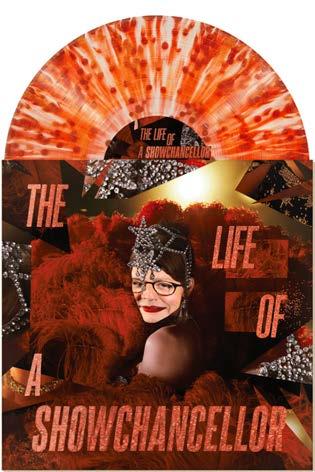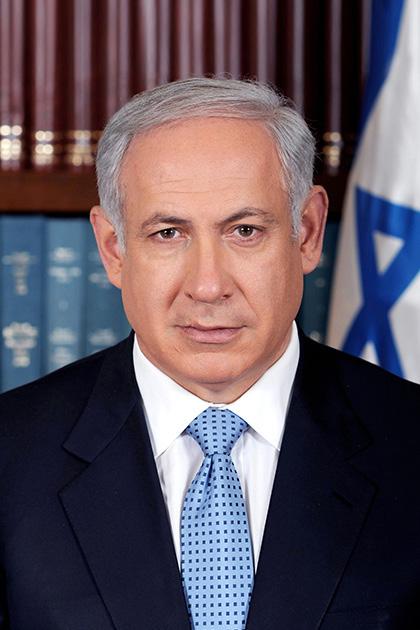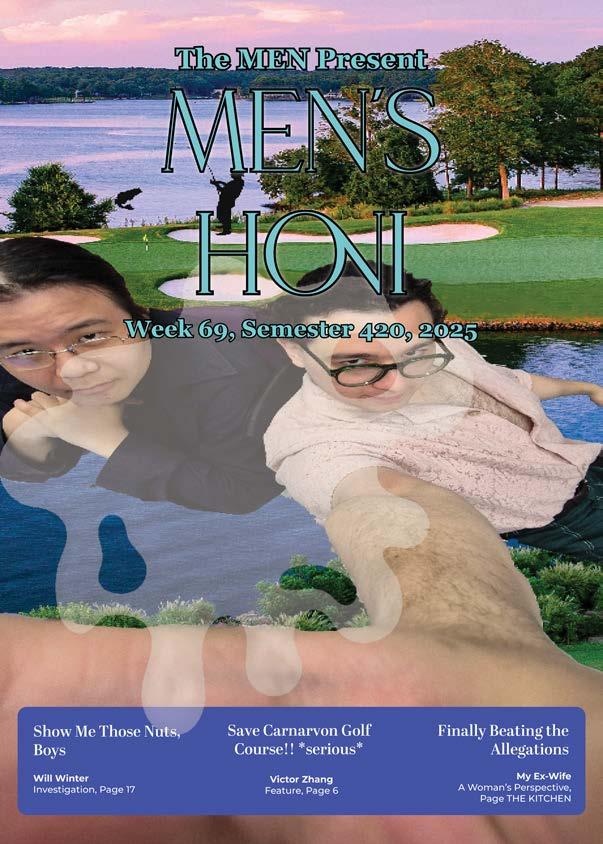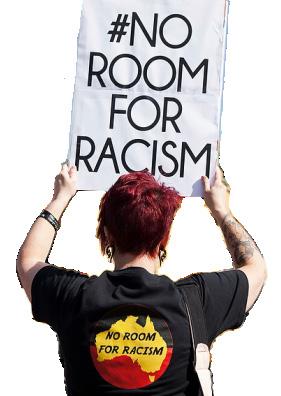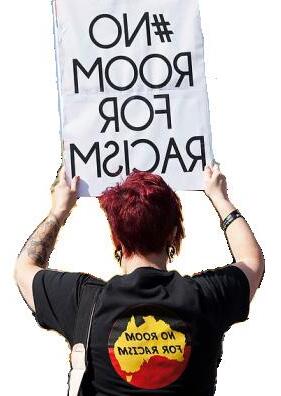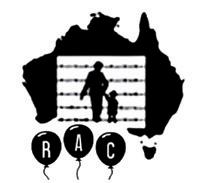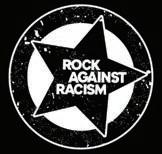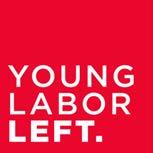Honi Soit
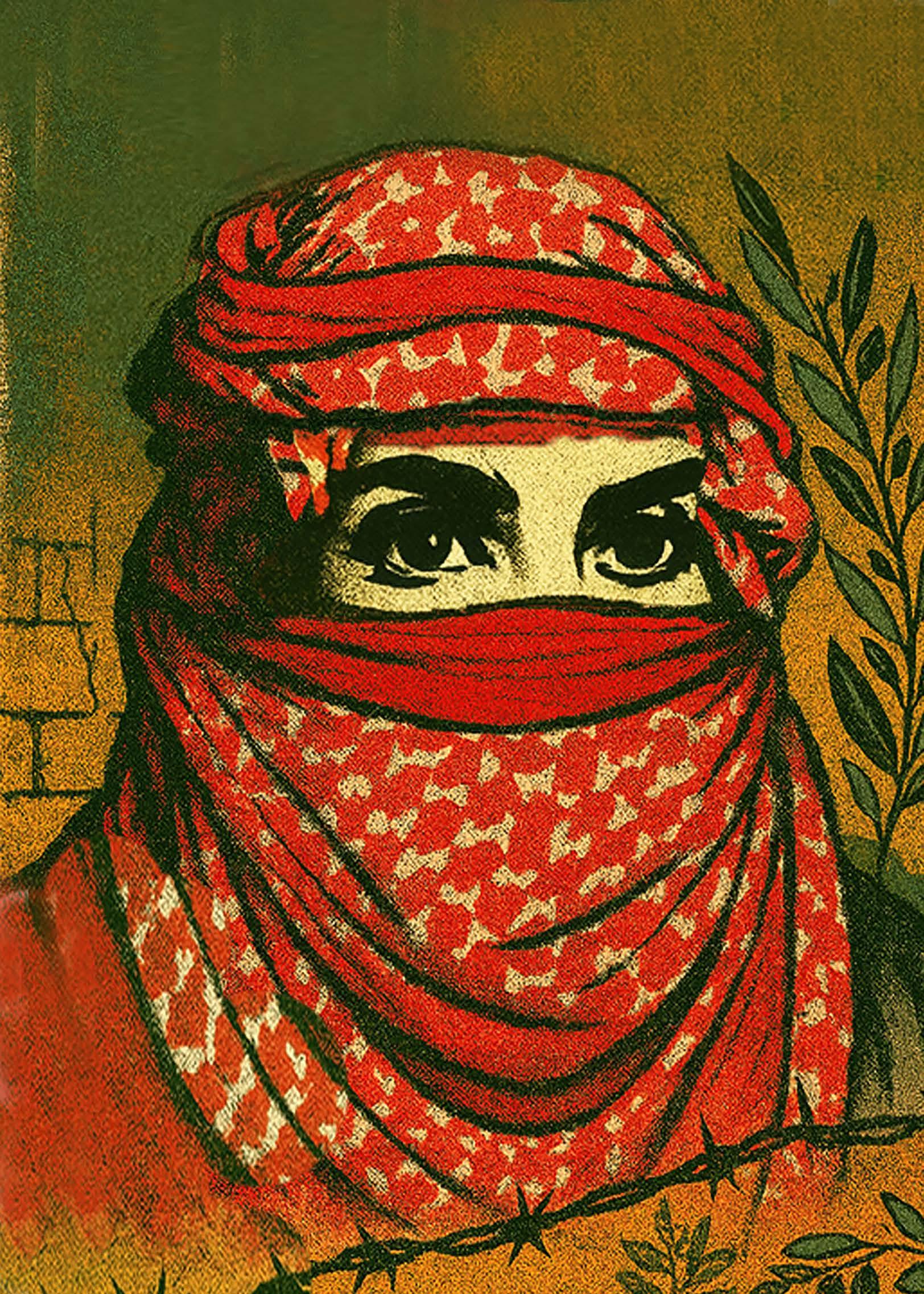
Two Years of Genocide
4
Liberation in Jaseena’s Palestine
, Wake Me Up When the Birds Sing Again



Two Years of Genocide
4
Liberation in Jaseena’s Palestine
, Wake Me Up When the Birds Sing Again


Honi Soit operates and publishes on Gadigal land of the Eora nation. We work and produce this publication on stolen land where sovereignty was never ceded. The University of Sydney is a colonial institution. Honi Soit is a publication that prioritises the voices of those who challenge colonial rhetorics. We strive to continue its legacy as a radical left-wing newspaper providing students with a unique opportunity to express their diverse voices and counter the biases of mainstream media.
Editors
Jaseena’s Palestine
Stujocon <3
Ft. Filipino Stujo
Kashmir Under Fire
This week marks two years that Israel has spent bombing Gaza, in its illdisguised effort to systematically eradicate the Palestinian people. Those who cannot see the genocide as it trudges ever onward lack not only eyes, but a heart.
Today, I marched with my co-editors at the Nationwide March for Palestine. We saw tens of thousands of people attend, to protest against the genocide, the detainment of the Sumud Flotilla activists, and Israel’s terror-fuelled occupation. The Palestinian Genocide has changed the world, and divided it into two groups: those who watch and those who act. I hope that these readers are in the latter category.
and Randa
Comedy
In the spirit of Palestinian freedom, I chose to give this edition the theme ‘Liberation’. Within these pages, you will find the exquisite feature written by Jaseena Al-Helo, describing a life that she could have lived in a Free Palestine. You will see many languages — including Arabic, Mandarin, Greek and more —
because our multilingual reporters don’t get enough opportunity to show off their skills. Read Anonymous’ piercing analysis into the Pakistani occupation of Kashmir, Meijie Ureta’s exploration into international campus press freedom, and Kira Kwong’s analysis of the death (or not) of Cantonese. Keep an eye out for an interview by myself and Mehnaaz with Randa Abdel-Fattah, on the normalisation of Australian apathy during a genocide.
One unusual thing about this edition is that it’s got student journalists from outside Honi. We have talked a lot this year, and in years prior, about increasing Honi’s connections with other publications, and with establishing a national network of student media who actually know each other, read each other’s publications, and contribute to a shared sense of community. During my term I have been very fortunate to watch this unfold before my eyes, both during the 2025 Student Journalism Conference, which I directed, and in the creation of the
Companion Piece, Mina Malekpour
In a world where men have time and again failed to uphold humility, humanity, and freedom, we now find ourselves at the close of a catastrophic war of greed and extremism. If we paid a little more attention, showed a little more kindness, and exercised a little more patience, perhaps we could still avert the ruin that looms.
Purny Ahmed, Mehnaaz Hossain, Ondine Karpinellison, Ellie Robertson, Imogen Sabey, Charlotte Saker, Will Winter, Victor Zhang
Front Cover
Mina Malekpour
There will never be peace in this world if we continue to treat each other as enemies. We may not share the same ideologies, we may not come from the same class structures, and we may not have the same skin colour, but we will all take our final breath on this earth. And that, perhaps, is the greatest and truest unity of humankind.
Student Media Association, of which I am the inaugural president. Student media is a very fragile world, but it is so precious to me, and I hope that this network and momentum can continue long after I leave university. You can read about some of the StuJoCon events on p. 12 — there are a lot of them, so it’s four pages. Enjoy.
Much like many Honi editors before me, it’s with a heavy heart that I present this edition to you. Honi has entirely changed my life. It’s hard to convey just how much I love this newspaper and the people who have made it with me. It has made me a better person, challenged me in ways I could not have foreseen, and given me random gifts at zero notice in the style of a benevolent tsunami. Thank you for reading, and thank you for caring. Thank you also to Purny for being a gun with art, among other things.
Finally, thank you to my team. Out of all the good things that I gained this year, the best thing was you.
Please, be kind, to one another, to animals, to nature.
And don’t forget to wear sunscreen.
Jaseena Al-Helo, Anonymous, Sath Balasuriya, Riley Bampton, Calista Burrows, Mehar Chugh, Pia Curran, Siena Fagan, Ethan Floyd, Kayleigh Grieg, Mahtab Hassanzadeh, Audrey Hawkins, Mehnaaz Hossain, Gracie Hosie, Ondine Karpinellison, Ting Ken Kuo, Kira Kwong, Alan Lau, Georgie McColm, Kiah Nanavati, Jenna Rees, Imogen Sabey, Jessica Louise Smith, Gabrielle Tan, Sahiba Tasnia Tanushree, Meijie Ureta, Ingrid Winter, Will Winter, Simone Wong, Eryn Yates, Victor Zhang
Artists
Purny Ahmed, Charlotte Saker, Will Winter
Hi there,
You have probably received thousands of emails very similar to this one, but regardless,
I was very disappointed to find out that you had themed Week 8’s Honi around God and the Abrahamic religions, but you didn’t once refer to the paper as “Holy Soit”.
I mean, come on. The pun was right there.
More crappy puns in Honi 2026.
Ishtar
Dear Honi,
After observing the elections and seeing those grassroots Independents exposing the Labor students... I sometimes think, what utility does being in NSW Labor students serve battling it out for the SRC beyond their careerist ambitions for CV padding? After all, it’s the only arena where they are the centrists and they must fight the left. In real politics its out and about right wing fucks you must contest.
Then I realised... they’re cutting their teeth for when they have to fight the left inside their party (Fergs) and the left from outside (Greens, NSW Socialists), and also learning to deal with Liberals for bipartisan legislation to fuck workers. It’s ALL applicable to their future careers... Much to consider.
Anonymous
Dear editors,
I have been under a rock for four years now, and since my arrival in Australia, I’ve been able to avoid the Guardian’s Australian Bird of the Year competition every time. I’m not into birds, I’m not into competitions, nor am I into general public upheavals.
However, your persistent campaigning for the Tawny Frogmouth has inspired me to do my research and get involved. My initial thoughts around the bird that I would go for was the Bush Turkey. I thoroughly enjoy their history of resistance to extinction, and personally, I think Honi should hone in on that radicalism a little more. Besides this point, I have been converted to be a Tawny endorser (I was bribed).
Its beady eyes and old man energy is endearing, cute, and wholesome. I feel safe around Tawny. I feel loved by Tawny.
I feel that my world revolves around Tawny, and that is the doing of Honi
If you, the reader, are thinking about voting in the competition, I fully implore you to vote for Tawny.
Love and wings, ER xxx
Dear ER,
I love you. Thank you so much. Have you voted today?
Lots of love,
IS
Dear Honi
It’s clear that your beloved Tawny Frogmouth is en route to a landslide and I’d just like to ask: how do you sleep at night?
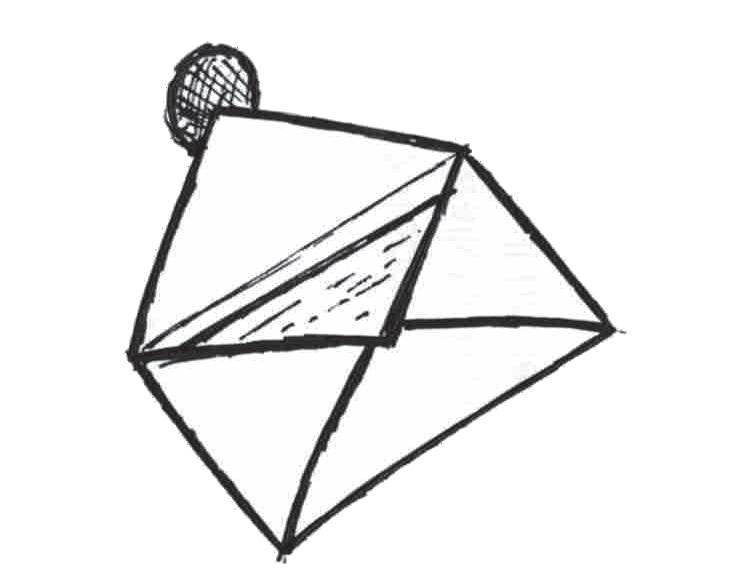
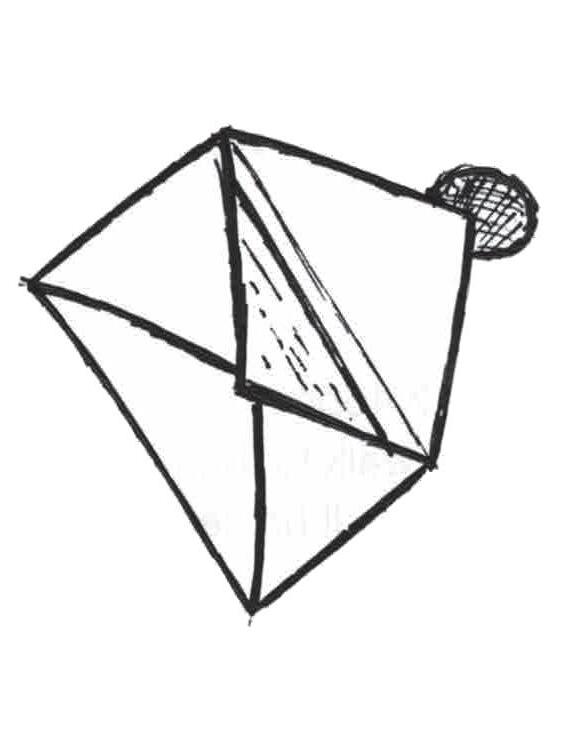
I’m not talking about the incessant hooting made by Tawny Frogmouths from sunset to sunrise. I mean your choice to platform such a mainstream opinion. I thought student media was here to give a voice to the little guy?
The Willie Wagtail, for example. They’re certified little guys: only 18-22cm long and tipping the scales at just 18 grams. And how can you not love their happy little dance?
As the nation embraces the Tawny Frogmouth, I hope you’ll remember to give this underdog - or underbird, as it were - a chance.
Signed,
Team Willie Wagger (The Tert)
Dear Tert,
You guys need to work on your campaign. I mean, really, where are your howto-vote cards? Your elaborate campaign stunts? Your presidential endorsements?
The Tawny is a sleepy eepy ball of fluff, cuddling with its family at all hours of the day and night, just like us. When it comes to the bird that will stick around for you, there’s only one answer: Tawny.
claim a victory prematurely. Nevertheless, we shall remain persistent and steadfast in support for our beloved Tawny.
Signed,
Team Tawny Frogmouth (Honi Soit)
Send your letters to editors@ honisoit.com

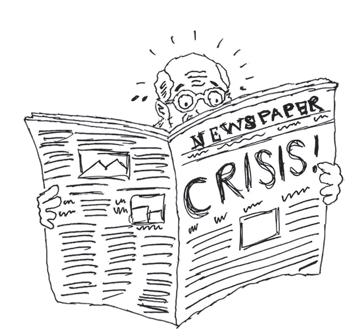
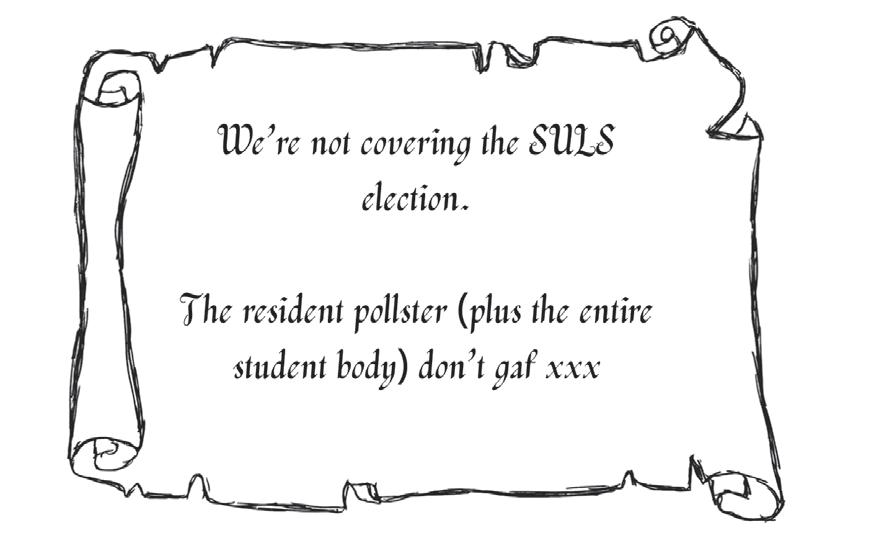


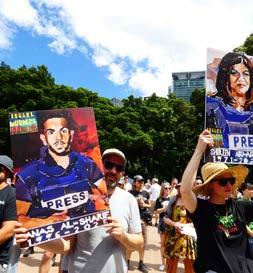
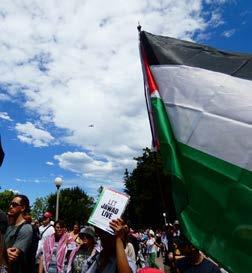
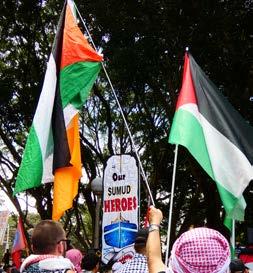
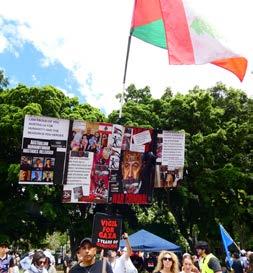
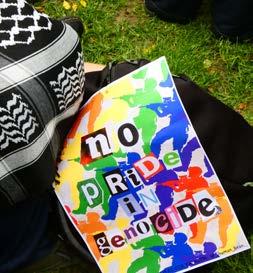
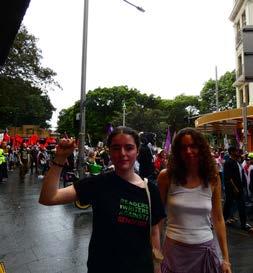
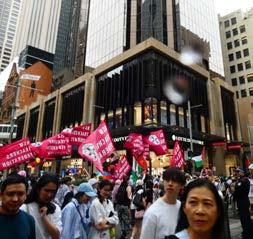
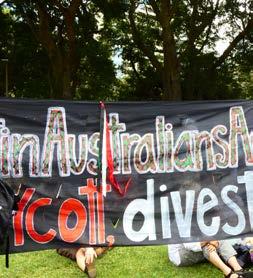
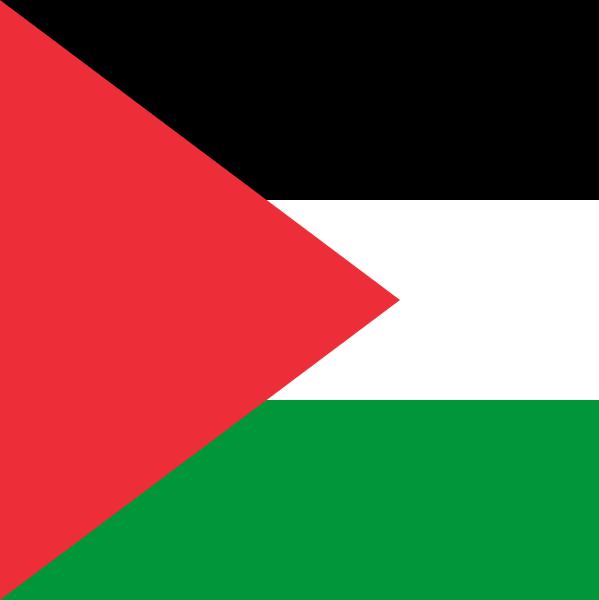
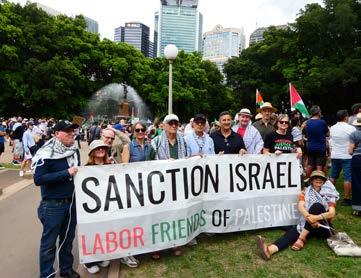
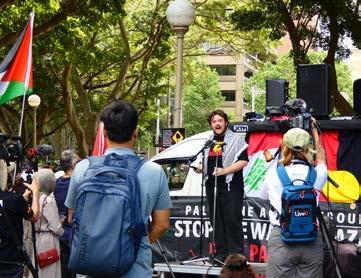
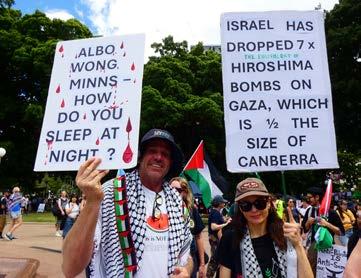
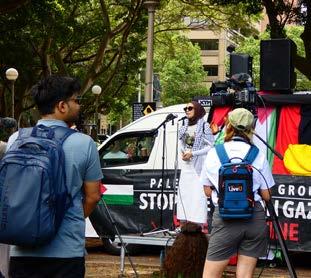
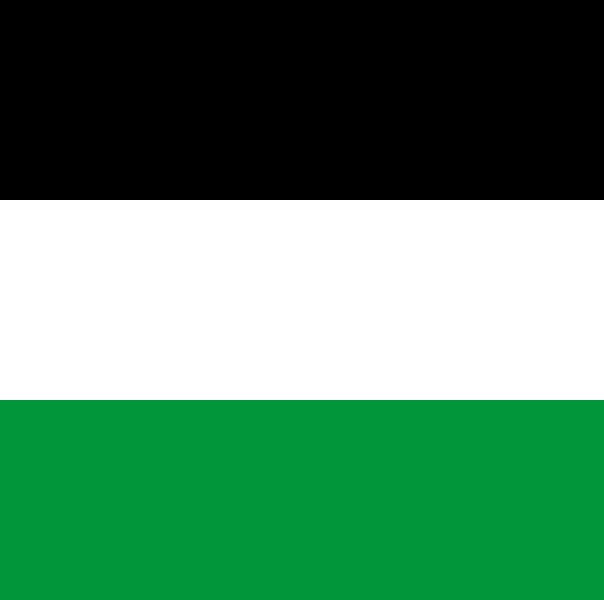
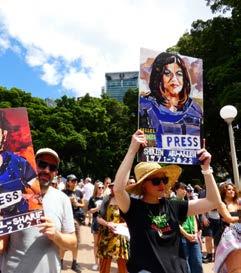
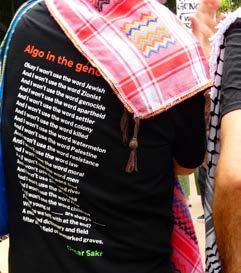
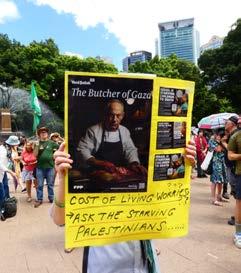
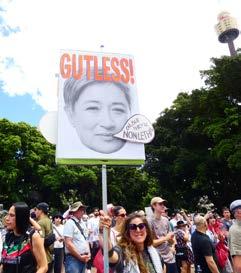
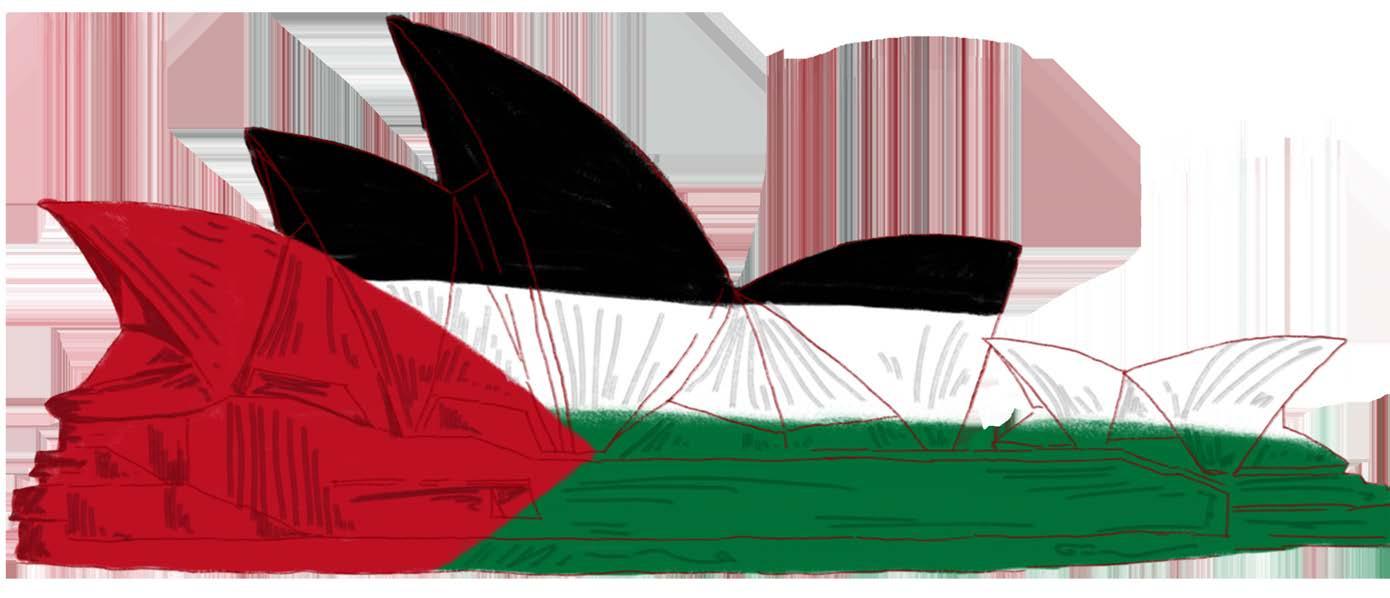

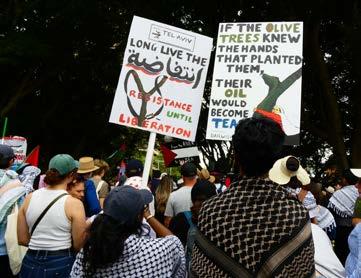
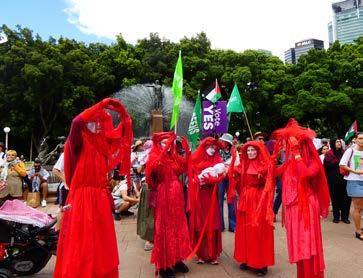
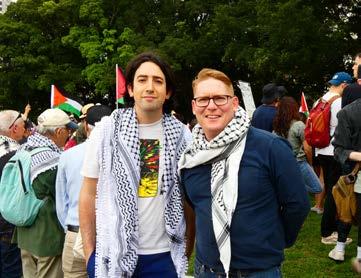
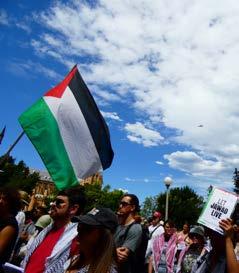
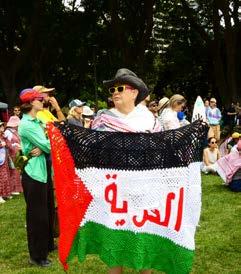
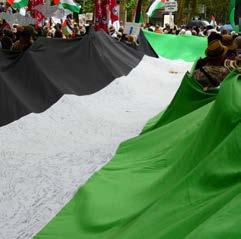
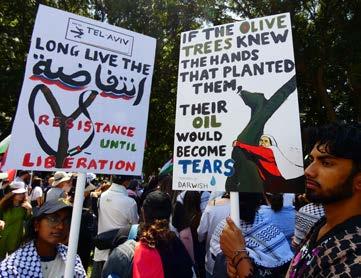
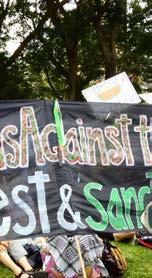
Victor Zhang reports.
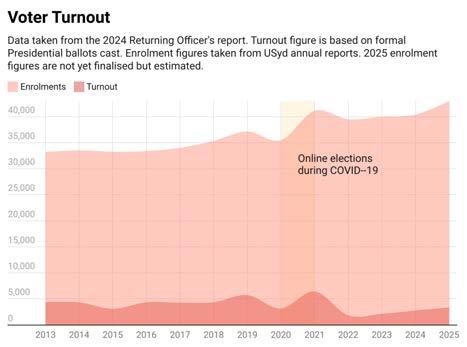
Turnout climbed this year to 3,598 ballots issued. The 2024 Returning Officer’s Report uses the formal ballots cast in the Presidential race to judge historical rates of turnout stretching back to 2013, though obviously in years with uncontested Presidencies this is drawn from a different ballot.
From the 2013 to 2018 era, turnout as a percentage of enrolments averaged a fairly stable 12.24 per cent. COVID-19 and online voting disrupted this stability. The 2022 election, being the first in-person election since COVID-19, saw turnout tank to a record low of 4.68 per cent. Turnout has steadily climbed over the last three years, with this year’s turnout reaching 7.83 per cent (3,369 formal Presidential ballots cast, compared to an enrolment of approximately 43,000).
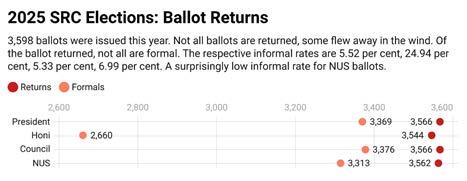
Presidential and Council ballot informals remained at roughly 5 per cent of ballots cast. Surprisingly, this year the informals for National Union of Student (NUS) ballots almost halved from 12.02 per cent to 6.99 per cent. Understandably, given that there has been no contested Honi elections since 2021 and considering the relative lack of Honi campaigners, one quarter of all Honi ballots cast were informal.
An interesting thing to note is that after the introduction of separate Above-The-Line (ATL) and Below-The-Line (BTL) ballots, there was a drastic drop in BTL Council ballots cast. This year only 39 BTL Council ballots were cast or 1.15 per cent of formal Council ballots cast. Comparatively, when there was no separation between ATL and BTL ballots, there were significantly more BTL ballots cast due to voters unintentionally voting for candidates below-the-line. When voters indicate preferences both above and below the lines, the BTL preferences take precedence over ATL preferences.
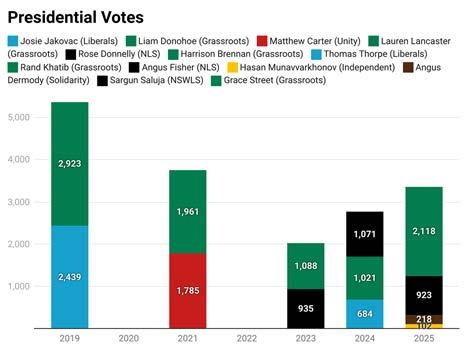
The best predictor for a Presidential candidate’s vote comes down to how many campaigners there are on the ground that are supporting said candidate and how motivated the campaigners are. President-Elect Grace Street (Grassroots) was supported by Grassroots, Socialist Alternative (SAlt), PENTA, and National Labor Students (NLS).
Street’s comfortable lead reflected in the exit poll from the first day to the rest of the election, resulting in her decisive victory. We in fact underpolled Street’s performance, likely due to shy SAlt and PENTA voters.
The Honi election looked more like a three-way race between Burn, Flash, and Informals (still erasing Mop).
There were more informals ballots cast than Flash ballots cast on Fisher Day Two, Fisher Day Three, Susan Wakil, and the Peter Nicol Russell booths. Informals and Flash ballots were tied at Manning and Jane Foss Russell on Day Two. Ooft.
Like presidential ballots, the predictor for which ticket will win is typically the number of campaigners on the ground. Flash fielded no campaigners outside members of their ticket. While Burn had a more energetic campaign with campaigners not on their ticket, the overall Honi campaign was less visible than a presidential or council campaign.
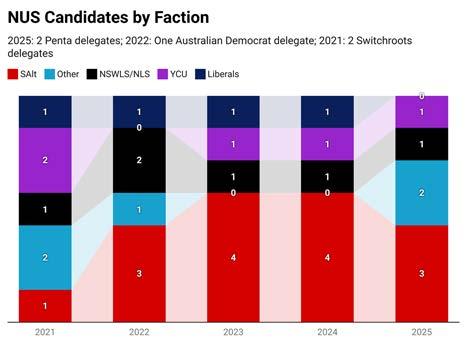
The delegates to the NUS National Conference this year are, in order of election, Sally Liu (PENTA), Jasmine AlRawi (SAlt), Leo Moore (YCU), Bohao Zhang (PENTA), Shovan Bhattarai (SAlt), Lauren Finlayson (SAlt), and unsuccessful President candidate Sargun Saluja (NSWLS).
Compared to previous years, the Liberals did not contest for NUS delegates, instead choosing to preference the ‘IMPACT for NUS’ ticket. PENTA chose to join the fray, securing two delegates to the NUS.
The NUS count proceeded fairly quickly, with six delegate spots elected by Sunday, 28th September. The last three candidates remaining in the race for the seventh delegate were Angus Dermody (Solidarity), Sargun Saluja (NSWLS), and Red Tilly (NLS). Dermody having the lowest vote share of the three by that point was eliminated. While Saluja had a higher vote than Tilly, should Solidarity had explicitly (no pun intended) preferenced NLS, they could have decided the fate of the seventh NUS delegate.
We calculated here the efficiency of each faction’s primary vote share by dividing the primary vote received by the number of seats gained by each faction.
There is a loose correlation between the number of seats gained and votes per seat gained, likely from seats gained by representatives elected over quota.
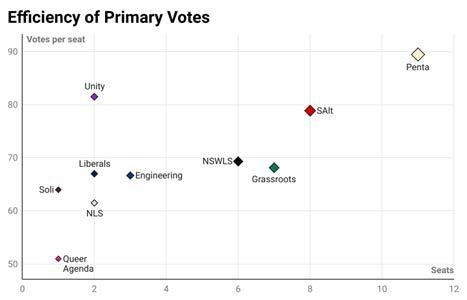
The obvious comparison we can draw is between Grassroots and Socialist Alternative, with Grassroot’s efficiency being higher than SAlt’s while gaining a similar number of seats. Grassroots opted for the strategy of running a greater quantity of tickets and using preferences to elect and keep their candidates from being eliminated.
However, the choice to run more tickets with clever preferencing does not always result in greater efficiency. PENTA, having run 15 tickets, was in fact the least efficient. Of course, nine of their 11 councillors were elected over quota which obviously puts a dent in the efficiency.
With notice for Reps-Elect given for 29th November, there is likely to be an increased urgency in negotiations where factional headkickers and negotiators carve up the SRC Office Bearer (OB) positions.
22 councillors form a majority, enough to secure the paid positions of Vice-Presidents, General Secretaries, and Education Officers. Where there is more than one position to be elected, the proportional representation method with single transferable vote method is to be used.
This means that 30 councillors are required to secure every other non-autonomous OB position, as there are two positions that may be filled by up to four people. The vote of eight councillors is required to guarantee one general executive position, meaning the next threshold for a leading coalition to secure is 32 councillors to gain 4 general executives.
The pre-election bloc consisting of Grassroots, SAlt, PENTA, and NLS have secured 28 Councillors. As it stands, Honi does not believe there exists any configuration of the left bloc that is not led by Grassroots, SAlt, and PENTA, the three dominant factions on Council (26 seats).
There exists a highly unlikely configuration to form a majority of 24 where the united Labor factions are joined by Engineering for SRC and have done the impossible to convince PENTA to defect, something PENTA has no electoral incentive to do. It is Honi’s view that there is no path for this Labor-led configuration to reach a 30 or 32 councillor majority.

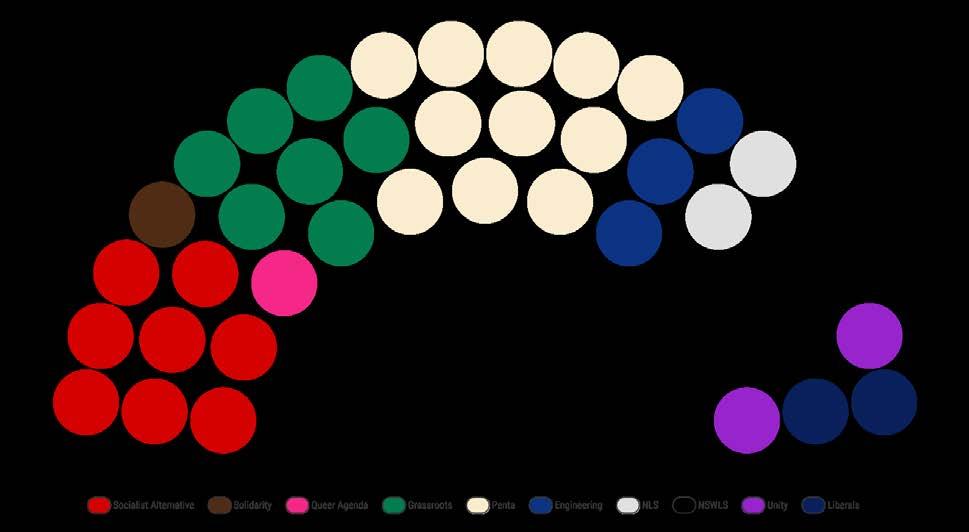
Hopefully this year’s negotiations will produce a deal signed well ahead of one hour into Reps-Elect.
I hereby declare the following candidates elected: President Grace STREET
Editors of Honi Soit
BURN FOR HONI: James Fitzgerald Sice, Kiah Nanavati, Ramla Khalid, Madison Burland, Sebastien Tuzilovic Condon, Marc Panesa, Faye Tang, Anastasia Dale, David Jeremy Salazar Bautista, Kuyili Karthik.
Representatives to Council Quota = 54
Sincerely, Riki Scanlan, 2025 SRC Electoral Officer

Imogen Sabey reports.
The Student Media Association (SMA) has been formally established, marking Australia’s first-ever union of student media.
The idea for the SMA came into being during a plenary at the 2025 Student Journalism Conference, where panellists and audience members were discussing how to maintain and improve ties between student publications.
According to the SMA constitution, its aims are:
1. To advocate on behalf of student media publications to stakeholders in the higher education sector including universities, the NUS and student unions,
2. To enable communication, information-sharing, and community-building between student journalists, student media organisations, and publications,
3. To support publications facing censorship, funding cuts, and other risks to continued operations, and
4. To promote students’ contributions to culture, arts, and journalism.
The SMA will be governed by a board consisting of seven members. Those members will be elected each year, having been nominated as a representative of their publication. In the years following 2026, the Immediate Past President will be on the board as a non-voting member.
The inaugural board is as follows:
President: Imogen Sabey (Honi Soit, NSW)
General Secretary: Riley Bampton (Glass, QLD)
Vice-President, News: Max Richter-Weinstein (Noise, NSW)
Vice-President, Culture: Mandy Li (Lot’s Wife, VIC)
Vice-President, Advocacy: Joseph Mann (Woroni, ACT)
Small & Regional Officer: Evelyn Unwin Tew (Togatus, TAS)
Multimedia Officer: Georgie McColm (Radio Monash, VIC)
Some of the roles such as the Small & Regional Officer and the Multimedia Officer require specific qualifications; respectively, that the Small & Regional Officer come from a publication less than five years old or from a university based in a regional area or with a small student population, and that the Multimedia Officer come from a publication that primarily produces multimedia content, beyond the scope of print media.
The establishment of the SMA has been inspired by the College Editors’ Guild of the Philippines (CEGP), a
At 2:55pm on 9th October, Honi received reports of ‘abortion abolitionists’ on the Camperdown campus. The demonstration was located on the City Road footpath near the F35 building.
Two men stood on the footpath with three graphic antiabortion signs. One of the signs read “What about my bodily autonomy?” and depicted the silhouette of a baby constructed from blood clots.
The self-identified ‘abortion abolitionists’ had two tripods and cameras set up on either side of their demonstration. Both cameras, whose total range would capture every pedestrian crossing City Road into Eastern Avenue, were likely to be actively filming. It’s unknown what the purpose of this footage was, or if there was intention for it to be public.
After no reports of security or Campus Access Policy (CAP) intervention for over twenty minutes, Honi called campus security at 3:20pm. Campus security informed Honi that they had “just seen them on CCTV” and would be dealing with them shortly.
Honi followed up with campus security at 3:44pm, who said that an Operations Controller had been deployed to the site. Honi was informed that security was unable to take action as the demonstration was not technically on campus, since “the footpath is council property.” Campus security then told Honi that they would be calling the police.
These individuals were identified by campus security as the same people who demonstrated last semester on 28th May. At that time, police were deployed and they issued a move-on order. The police are unable to ban people from a public space.
At the time of publication, 4:45pm, the ‘abortion abolitionists’ were still onsite at the university. There was no police presence.
student media union that has existed in the Philippines since 1937.
The CEGP was represented at the Student Journalism Conference by the LaSallian, based at the De La Salle University in Manila. The 2025 Conference marked the first occasion where an international student publication participated in an Australian student media conference.
In a comment to Honi, SMA President Imogen Sabey said “This is a really exciting time for the student media community, and it’s a great way to build momentum on the amazing conference that we’ve just had. It’s a privilege to serve as President in 2026, and I look forward to seeing what we can do to improve connections and resourcesharing within this network, building upon the work of previous years.
“With the crises that are unfolding around us like the genocide in Gaza, as well as corruption and censorship in our universities, I think it’s never been a more important time to be a student journalist. We have never tested how strong we are when we come together, and the formation of this union will be a turning point for student media.”
The SMA’s constitution is available for public access via @studentmedia.au on Instagram.
Student media organisations can apply for membership by registering online.
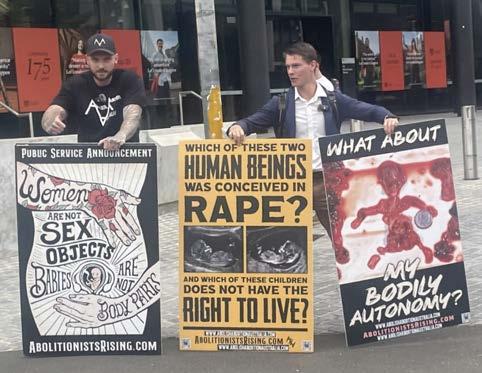
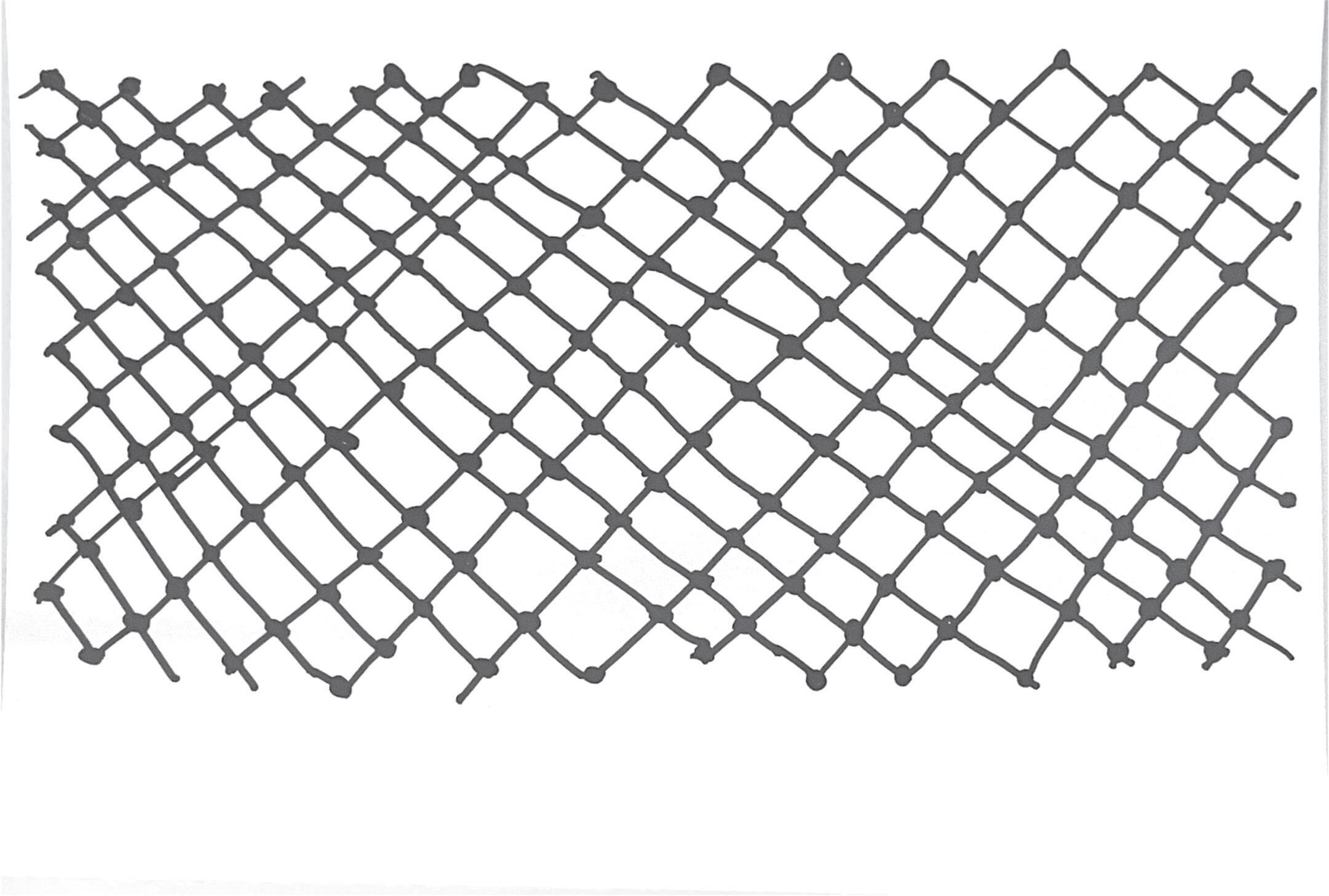
If you or any of your loved ones have been affected by the issues mentioned in this article, please consider contacting the resources below:
NSW Sexual Violence Helpline – Provides 24/7 telephone and online crisis counselling for anyone in Australia who has experienced or is at risk of sexual assault, family or domestic violence and their nonoffending supporters. The service also has a free telephone interpreting service available upon request.
Safer Communities Office – Specialist staff experienced in providing an immediate response to people that have experienced sexual misconduct, domestic/ family violence, bullying/harassment and issues relating to modern slavery.
Wirringa Baiya Aboriginal Women’s Service – Provides legal advice and sort for a range of issues, including domestic, sexual, and family violence, to Aboriginal and Torres Straight Islander women, children and youth.
1800RESPECT – A service available 24/7 with counsellors that supports everyone impacted by domestic, family and sexual violence.
Lifeline – 24/7 suicide prevention crisis support hotline for anyone experiencing a personal or mental health crisis.
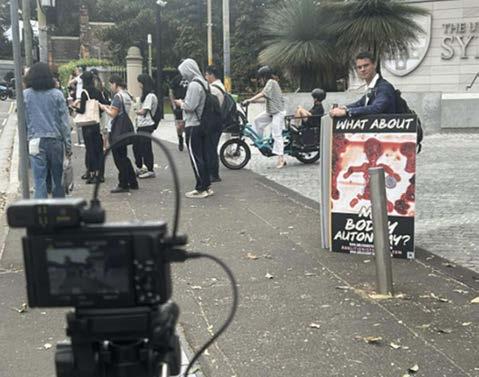
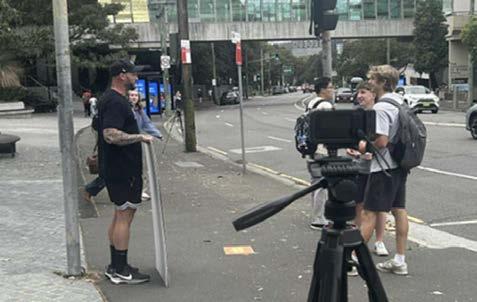


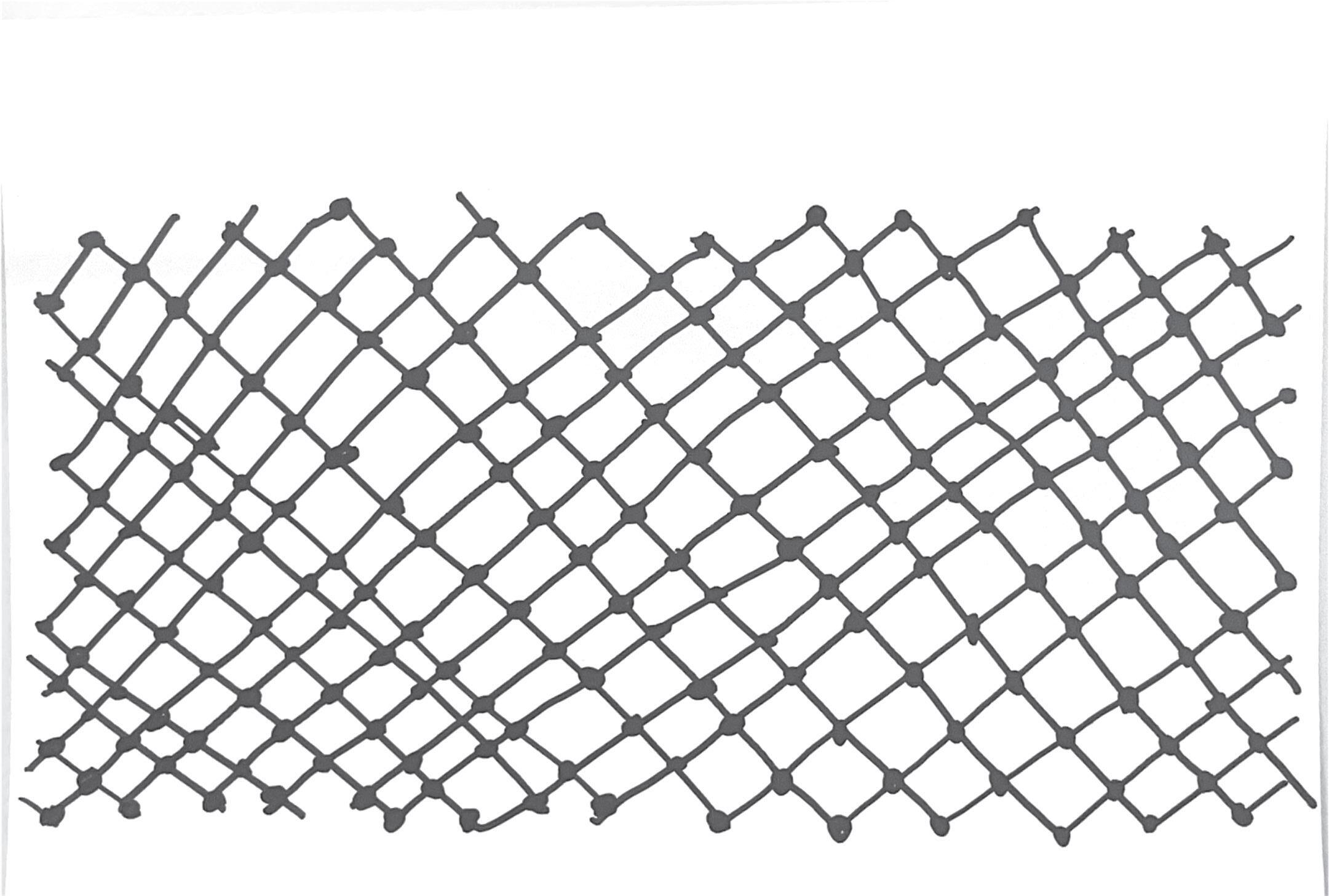
What if I had been born there?
Not here, on sandstone steps beneath jacarandas, but in al-Quds القدس, where the stones breathe centuries and the air still tastes faintly of tear gas? What if my first word was not hello, but marḥaba مرحبا? Would I still be writing this piece, or would I have already lived it into my bones?
Here, in Sydney, the cursor blinks like a pulse. I write in the coloniser’s tongue because it’s the only one I can shape without stumbling. My essays wear legal citational footnotes like armour, neat and obedient — as if a citation can save me. I flatten my vowels, sand down the edges of my rage, learn to be the articulate “good student,” because anything else reclassifies me: angry, Arab, woman. Somewhere a uniform insists on calling it a “defence force.”
I edit the sentence: occupation. Israeli Occupation Force.
There. True on the page, even if it is dangerous in the mouth.
On the other side of the mirror — no, not a mirror; let’s call it a threshold — there is a version of me who never left. I do not name her, not yet. All I see are notebooks filled with slanted Arabic, ink thickenings where her لَم (qalam) pressed too hard. She knows the smell of stone after rain, the pace of the Old City when the call to prayer bleeds into church bells. She does not cite like I do; her sources are olive wood, market dust, a checkpoint mapped on the body.
Between us, a question begins to braid: what does liberation mean when it keeps
changing shape each time we say it aloud?
I could end the opening there and be polite. But I promised myself I would not write a polite piece.
Liberation.
Everyone says it like a slogan, a chantsized word, neat enough for poster font.
But what is it, really?
We’ve done it all.
Protests – marched until our throats bled.
Boycotts – checked shopping lists like prayer beads.
Recognition – flags raised in hollow halls.
Doctors flown in, aid shipped out, hashtags trending.
Done. Done. Done.
And still Gaza burns.
And still lethal signatures land like routine paperwork.
And still a company announces “innovation” in the same breath as occupation – drones, delivery, dividends.
And the world calls it progress. I call it profit from a wound.
So tell me: how exactly do you expect me So tell me: how exactly do you expect me to believe in liberation?
I am twenty. I thought I had already seen the worst.
When my apartment in Ramallah was tear-gassed, I thought that was the worst.
When a rifle’s red dot pinned my body at a checkpoint between Jordan and Palestine, I thought that was the worst.
It was the summer of 2019. We left the borders of Jordan just after maghrib, the sky bruised purple, my bag the cheap turquoise one Tayta bought at the market, and what should have been a two-hour drive folded into something else: ten hours, the sun and moon swapping places while we sat in waiting rooms that smelled of disinfectant and fear. We reached home at adhan alfajr, all of us hollowed and valanced in ways that paperwork could not name.
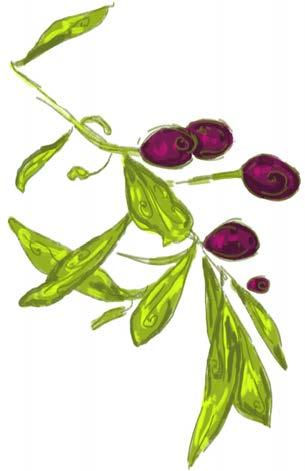
When they called my name it came like a pronouncement. Two soldiers ushered me into a cold back room — concrete, a single swinging bulb, a chair that scraped the floor like a clock. One of them had a beard that curled at the chin, stubble silver against olive skin; you could see where the razor missed in the morning. I remember the way his breath smelled of cigarette ash and metal, like old radios and lighter fluid. He asked the same rehearsal of questions, the ones that have answers and the ones that don’t: Why are you here? Where did you stay? Who are you visiting? Their voices were flat, practiced. Their hands rested on a table that had seen better decades.
They made me stand. They made me open my bag – just my old iPhone X and a journal and watched me take out the same things I always travel with: passport, small packet of tissues, a note from Mama with her handwriting that always slants like a prayer. Each item became evidence. Each breath I took was parsed. The light in the room felt like a verdict.

Outside, in the bus, Baba and Jido shouted at the soldiers for keeping us held up and separated. Inside, the guard asked me to name places they already knew by heart. The humiliation was slow and exacting, a measured erosion.
When my grandmother blacklisted and entry to bury — exiled from her own farewell — I thought that was the worst.
When a president rearranged the world with a sentence — “Jerusalem is the capital” — I thought that was the worst.
When I could not return in November 2023 after the HSC — reward trip turned exile redux — I thought that was the worst.
I was naïve.
Every time I think we’ve reached the bottom, the earth opens.
Two hundred and fifty-five bullets into a little girl’s world – Hind Rajab – and language fails.
A friend’s grandmother trapped at a border, urgent care across a line that would not open – she died in the waiting.
Another closure, another “indefinite pause,” passports rendered ornamental – my own grandparents frozen on the wrong side of a paper gate.

And you ask me to believe in liberation?

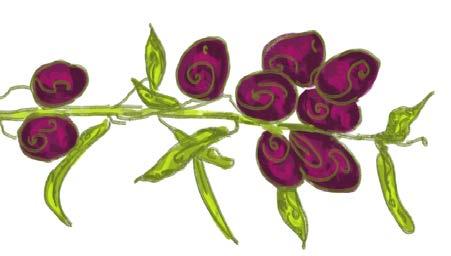
My idea of liberation is not your glossy inspiration-porn of a brown woman “finally safe.”
Do not fold me into your TED Talk redemption arc.
My resistance is your terrorism.
My existence is your politics.
My grief is your debate topic.
My silence is still too loud.
Do you want me to shrink my anger into footnotes?
To narrow down my standards until they fit your “two-state solution”?
To be quiet, poised, elegant – احكي ‘ehki’ English so well – and keep my rage somewhere tasteful?
Because I can.
I can play the part.
I can polish my vowels, cite AGLC4 until I disappear into the margins.
But even then, when I smile politely in seminar rooms, do you see it?
How an ID card reads me louder than any accent.
How my Arabic buckles on my tongue when a ghayn غ refuses to be anglicised.
How my broken mother tongue exposes me, even when my English dazzles.
So I write.
I write and write and write until the pages pile into a small mountain of failed liberations.
A papier-mâché barricade made from drafts and scrunched endings.
A bonfire I am not allowed to light.
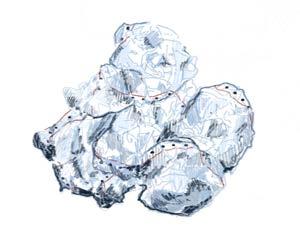

I type until the laptop’s memory chokes. Until the cursor blinks like a warning siren. Until my wrists ache and my jaw learns the posture of clenching.
هل
Have I freed Palestine then?
No. Of course not. But I refuse to be quiet. And refusal is a kind of survival. And survival is not small.
You want a definition? Here’s one: liberation (n.)
1. not a policy document nor a hashtag;
2. the unkillable insistence to remain;
3. the land living in your mouth even when you trip on its syllables;
4. zeht زيت glinting on a plate beside warm khubz;
5. the olive that remembers your hands;
6. the refusal to be erased – even on paper, even in footnotes.
You call that poetry. I call it breath.
Say it with me:
I am not your western porn of resilience.
I am not the tidy arc of the “good migrant girl” who “made it.”
I am not the soft-focus apology for a crime I did not commit.
I am an Arab woman. أنا امرأة عربية. and, as Rafeef taught us, we come in all shades of anger.
Where do I put that anger?
I could curl it into my palms until the crescent-shaped dents appear.
I could pour it into careful sentences and pretend they are enough.
I could swallow it until it calcifies behind my ribs.
Or I could set it on the page, slanted, let it run: not your muse not your metric not your manageable brown not your curated sorrow not your “but she’s so wellspoken”
I will not be the palatable preface to your comfort.
And still: the question keeps returning like a tide –
liberation… liberation… liberation… a word that tastes different each time it touches my tongue.
In English: strategy. timeline. reform.
In Arabic: نجاة survival. صمود sumūd. عودة return.
In my body: refusal, even when there is nothing left to refuse with.
I do not want your neat horizon. I want the right to keep imagining one.
I am told: stay elegant. Be poised. Be grateful. Be quiet.
I am told: Australia has given you a voice.
As if the voice were not already mine.
As if language itself were a visa that could be stamped and revoked.
Here is a smaller truth: sometimes liberation is a sentence that finally says what it means.
stubbornly carrying milk home anyway?
About the city teaching you to love her without promising to love you back?

I do not want to invent her to soothe myself. I want to listen.
So I’ll end this breath here and leave the margin open, a seam you can see:

Sometimes it is an untranslated word left in the middle of an English paragraph on purpose.
Sometimes it is choosing marḥaba مرحبا over hello.
Sometimes it is deciding that AGLC4 cannot footnote a wound, and writing it anyway.
I do not want to be your story’s solution.
I want to be the page you cannot turn without seeing yourself in it.
And yet, even now, I keep hearing her on the other side of the threshold.
The other me. Not theory, not trick. A life I could have lived.
I ask myself, without romance or pity:
What would she say about liberation if she were holding the pen?
Would she write about the way Arabic signs do not blur when you are not afraid of mispronouncing them?
About the old man who sells figs by Damascus Gate, the way his hands perform a daily revolution by simply counting change?
About the checkpoint you walk through like weather: dreading the storm,

If I had been there, what would I have
I turn the page.
Not the sandstone Quadrangle at Sydney Uni, its arches echoing with magpie calls and the clatter of coffee cups — but the stone steps of al-Quds , still warm from the midday sun.
Here, my end at
blocks in Ramallah. After international politics lectures, the sabaya صبايا and I claim a corner table. The air smells of cardamom coffee and faint cigarette smoke, the walls stacked with books that no one ever finishes. We spread our laptops out, pretending to study, but really just debriefing the week.
When the night gets heavy, we wander to the nearby shisha shop, clouds of smoke curling into laughter. Tarneeb طرنيب and Hand هاند cards slap against the table. Someone argues over rules, someone else orders another round of lemon–mint. By midnight we’ve migrated back to whoever’s house is closest. Mafia games, endless gossip, tea that grows stronger with every refill.
On Fridays I walk with my grandparents into the Old City for jumʿa prayers. We pass the spice stalls where Abu Bashar still leans against his counter, same as when my grandparents were young. He calls us by name, even remembers which blend of zaatar تيم they prefer. The adhan threads through the alleyways, mingling with church bells. For one suspended moment, the city itself feels like prayer.
And when the week is over, we pile into a cousin’s car for the long drive to Hebron. One hour by the straight road, four hours if you’re Palestinian. We snake through back ways, tracing olive groves and half-built walls, hoping the Israeli Occupation Force checkpoints are distracted elsewhere. Every turn carries the risk of being stopped, searched, or delayed. But eventually, we arrive — arms full of knafeh, cousins already waiting, the family circle swelling again.
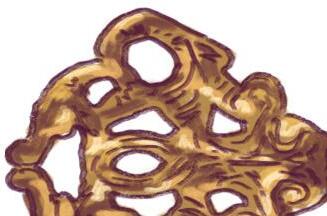




Here, anger is not an essay. It doesn’t need to be disguised in polished vowels.
anger is the way Teta sprinkles mint into the pot as herbs could guard a family.
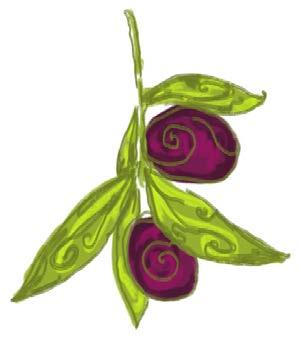
anger is Baba’s silence when the soldier waves us back.
anger is laughter stretched louder than the curfew.
anger is staying.
Even in Ramallah, the ordinary is edged with siege. We plan weekend spa trips to Carmel Hotel Bonsai Spa — massages and steam rooms — but check our phones obsessively in case the roads close. We book dinner and then text each other, هل في
Are there checkpoints? The IOF controls our calendars more than we do.
And still, tomatoes blush in the market stalls.
And still, children chase each other through narrow streets.
And still, the olive oil glows gold in the morning light.

with neighbours who call me ya ḥabibti even as sirens split the night.
Liberation here does not look like policy or treaty. It looks like Abu Bashar opening his shop every Friday morning. It looks like cousins gathered even after four hours of detours. It looks like a child blowing smoke rings with her uncle’s shisha hose and laughing so hard she forgets the blackout.
ache is already proof. Do you not know that? Even the stutter of ghayn is a kind of resistance. The word insists on being said, even in your foreign mouth. We both carry the same exile. Only yours
palate.
refusing to call occupation anything but occupation.

Liberation here is not a promise deferred –
it is a child who still laughs in Arabic.
I write until my wrists ache, until every margin is swollen with ink, and still Palestine remains chained. I tell myself that words matter — that law review essays and protest chants and footnotes in AGLC4 can be a form of resistance. And yet, when the cursor blinks back at me, mocking, I wonder if writing is nothing more than building barricades out of paper.
You think writing is a barricade?
Here, in Ramallah, I free Palestine by waking up tomorrow. By walking to SUFI صوفي and studying until midnight with the sabaya. By buying figs from Abu Bashar’s stall though I know a soldier could flip the crates at any moment. By driving three hours of backroads to Hebron, refusing to let a checkpoint decide who I see, who I love.

This is not romance. The occupation is still the air in my lungs. But when I exhale, it is not an apology: it is صمود sumūd, steadfastness.
The other Jaseena — you, Sydney Jaseena — writes of classrooms where flags are banned, of broken Arabic. I write of curfews and detours, soldiers and spice vendors. Both cages, both humiliations, but shaped differently. Mine comes with the taste of zaatar,
But here in Sydney, my checkpoints are invisible. They sit in classrooms where flags are banned, in jobs where saying “Palestine” is too political, in conversations where silence is survival. I mispronounce , trip over broken Arabic, watch my heritage slip between my teeth. I
Maybe that’s why I keep writing.. To shout in ink what I cannot in lecture halls. To carry anger that otherwise calcifies behind my ribs. To prove I exist
And I do not ask where to put my anger. I plant it. In zaatar pies, in laughter that outruns curfews, in the mint Teta stirs into tea as though herbs could keep us safe. My anger is not an essay, it is the soil under my nails.
Then tell me — is liberation possible at all? Or are we both only circling the same impossibility from different geographies?
Liberation is not possible. Liberation is necessary. Here, it is the child who still laughs in Arabic. There, it is you refusing to swallow the word Palestine even when it makes your accent burn. Both are survival. Both are freedom’s rehearsal.
And I realise, for the first time, that we are not two voices trading definitions. We are the same wound, split across continents. We are the same insistence, written twice.
You want me to define liberation, pin it down, fit it into your treaty-sized box.
but my Liberation will not wear your western grammar.
Liberation does not shrink to the margins of your committee notes.
Liberation is not a hashtag, not a ceasefire “paused until further notice.”
do you want me to be poised? I will not.
do you want me to be grateful? I will not.
do you want me to be quiet? I will not.
I am not your inspiration porn.
I am not the migrant girl who “made it.”
I am not the elegy you can skim before moving on.
I am an Arab woman,
and we come in all shades of anger. so hear me:
my Liberation is not your compromise. not your two-state figment. not your Oslo déjà vu. not your technocratic illusion of “peace.” my Liberation is return.
my Liberation is sumūd صمود –steadfastness – until the word itself grows roots.
my Liberation is refusal – even when there is nothing left to refuse with. my Liberation is survival – unpalatable, untranslatable, unkillable.
and if that frightens you, good. if that unsettles you, better. if that makes you turn the page and cannot stop thinking about it – then maybe, finally, you’ve tasted it.
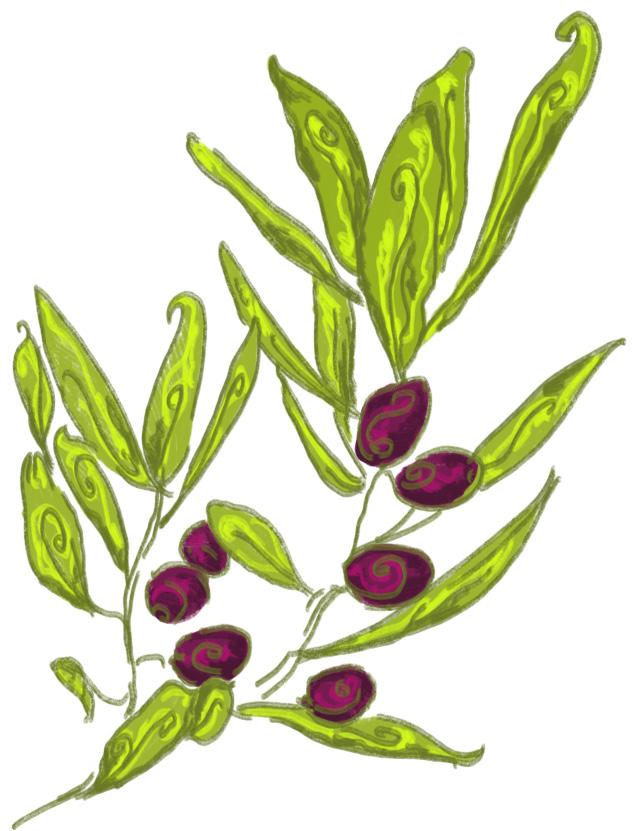
the scream lodged in my grandmother’s throat when they blacklisted her from burying her sister.
the checkpoint that turns an hour’s drive to Hebron into four hours of humiliation. the child’s laughter that still breaks curfew.
the word فلسطين written slanted across my lecture notes, daring the professor to notice.
because I will not write a polite ending. I will not leave you with resolution. I will leave you with this:

Liberation is refusing to make my anger pretty. refusing to cut my tongue to fit your

Palestine will be free not because you allow it, not because you signed it, but because we insist on breathing. that is Liberation.

Art by Purny Ahmed








Imogen
Sabey
The Opening Ceremony of the Student Journalism Conference was surreal. I was bumbling with nerves, and also working really hard to memorise everyone’s names (which a friend from Farrago tells me was successful) whilst watching most of the student publications in Australia stream in the door.
Firstly, Victor Zhang gave an Acknowledgement of Country, speaking about the Gadigal land that everyone had travelled to and the importance of First Nations sovereignty. Next, I gave a welcoming speech, highlighting the landmark moment of having so many publications in the same room and how rare it was for such a thing to happen. It was a privilege to be able to speak directly to so many people, and to see them interacting with each other. One of the most rewarding aspects is seeing how my work in bringing people together has fostered an environment where student publications who otherwise wouldn’t have known each other can work together to build and improve their media.
Then we had a presentation from all of the publications in attendance. First up was
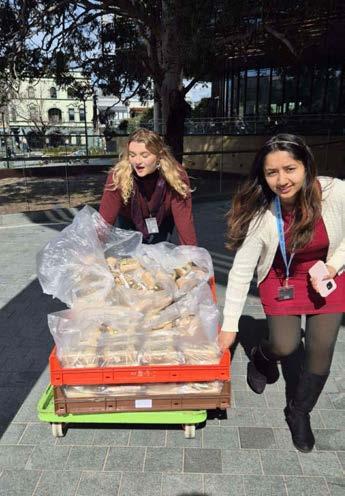
Grapeshot, the Macquarie Uni magazine, presented by the fabulous deputy editorin-chief Kayleigh Grieg. That was followed by Noise (UNSW) SURG (USyd), RadMon (Monash), Lot’s Wife (also Monash), Woroni (ANU), Farrago (UniMelb) and many others.
One of the highlights was hearing from Amanda Palmera, Meijie Ureta and Michael Hamza Mustapha from The LaSallian, the student newspaper/magazine at the De La Salle University in Manila. It was the first time an international student publication had been hosted in Australia, so that was a terrific learning experience for the Australian media, and proved instrumental later on in the conference when we were discussing the creation of the Student Media Association.
After all the presentations were over, we hosted a quiz — because everyone loves Kahoot — and there was a frenetic scramble for phones as everyone raced to join in. The questions varied wildly, from the oldest publication in the state, the correct sauce to put on a halal snack pack, and my favourite biscuit (the answer is the raisin & oat ones I make at home). There was a bit of chaos when people disagreed on some of the answers, but ultimately Joey Mann (Woroni) came first.
And with that, StuJoCon kicked off with a bang.
Gabrielle Tan
One of the first events was Eda Gunaydin’s Q&A, a deep exploration of writing, voice, and belonging, drawing on her remarkable career as an author, essayist and lecturer.
Prompted by insightful questions from Mehnaaz Hossain, Gunaydin brought her audience into the process of crafting an essay and finding yourself within your writing. Her advice for the room of young writers before her was to not be afraid of “working something out as you write”, and to allow yourself to be critical and see the subjects of your essays reflected in the real world.





The 2025 Student Journalism Conference, hosted by Honi Soit, was the biggest event of the year for student media and also the biggest student media gathering to date. Here are the highlights as reviewed by our reporters at Honi, some of the editors, and student journalists across the country.
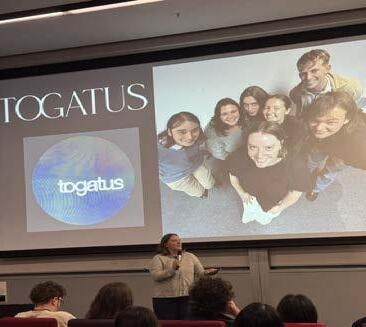
Valiantly pushing through a mild cold, Gunaydin answered questions from Hossain and the audience with deep, sweeping insights into navigating trauma, guilt and love in family life and how themes like class mobility have affected not only her writing but the way she sees the world. She talked about transforming personal writing into public writing, as she did in her 2022 book Root and Branch, and explored the ever-changing cultural and artistic face of Western Sydney.
From topics like kebab shops, the inherent femininity of personal narratives, art on the fringes and her own experiences from her time at USyd, Gunaydin’s inquisitively reflective answers allowed her audience to think of their own backgrounds and how they influence their own writing.
issues facing student radio. At its heart, radio has always been about music. Throughout the speaking segments, local music from Sydney and Melbourne blasted the airwaves. Discussions surrounding the difficulties of making it in the local scenes were a common bonding experience for student artists across both stations. It was highlighted that whilst student radio doesn’t have the same reach as Triple J, it provides a vital starting point that many student artists need to build community and get their music out there.
As the conversation progressed, the issues and logistical problems of running a radio station became very apparent. From limited budgets, licensing fees and technical problems, both RadMon and SURG shared similar hardships when it came to running their own stations. Other students in the room; who were interested in starting up their own stations, voiced similar difficulties. The technical challenges of broadcasting were something every radio person felt in the room, and it was clearly a large issue to many stations.
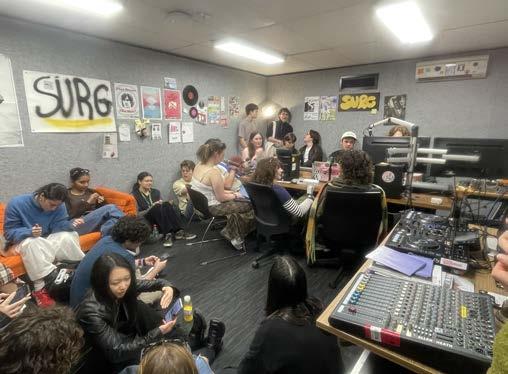
Georgie McColm (Radio Monash)
What happens when you get the two oldest student radio stations in Australia together in a basement at the Student Journalism Conference? A broadcast 50 years in the making. RadMon and SURG got behind the mics to break down DIY student radio. In a small underground studio, students and radioheads alike listened to a live broadcast of the current
With the rise of Spotify and streaming, radio has been labelled as a dying art form. However, the panellists had a more positive outlook. The common sentiment was that whilst radio had changed, but is by no means dying, just evolving into another medium. If there is one thing everyone took away from this workshop, it’s that student radio is thriving. There are certainly difficulties, but the passion in that room has never been stronger.












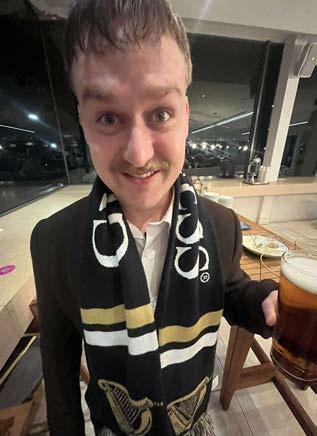
Cheng Lei
Sath Balasuriya
The first day of StuJoCon featured an interview with Cheng Lei, a reporter and news anchor for the China Global Television Network who was spuriously detained in 2020 by the Chinese state.
The interview revolved around her life in prison and the day to day anguish that accompanied her three-year stint in detention. Lei’s story was both captivating and earnest. At one point, she described how sorely she missed out on three years of her young children’s lives during her detention. It was evident that Lei attributed much of her resilience throughout her sentence to the persistent diplomatic efforts led by her family in Australia. She encouraged student journalists to start building a strong support system that they could rely on if they fell in the line of fire.
While Lei rightfully attributed much of her bravery during this period to her family, she also emphasised the internal resilience that she found within herself during detention, and the unconventional means that she turned to do so.

Victor Zhang
I must admit that when I took upon the task of moderating this panel, I was quite nervous. Antony Loewenstein, author of the Walkley award-winning book The Palestine Laboratory and co-founder of investigative reporting platform Declassified Australia, and Wendy Bacon, investigative journalist, activist, and professor known for her fearless reporting on social and climate justice, both had a wealth of wisdom and experience to share. Really, one-and-aquarter hours just wasn’t enough time to pick their brains.
A particular question on my mind that had myself and many others ill at ease was regarding the place of young and upcoming journalists in a media landscape that is increasingly asking us to compromise our values (“definitely don’t compromise on your morals” said Lowenstein).
On the topic of “activist” being used as a pejorative against journalists, Loewenstein reminded us that most journalists who work for “corporate media are actually deeply activist-minded, but it’s activist in the service of power.”
I am reminded here of Bacon’s description of her work, where she views her journalism as something that should be “useful to those who resist abuses of power and seek social justice rather than supporting existing power structures”.
Kiah Nanavati
Investigative journalism is often romanticised as the noble pursuit of truth, but listening to Kate McClymont unpack her career reveals it as something far sharper: a world of constant threat, endless patience, unrelenting persistence and most of all, confidence in oneself.
McClymont’s panel painted a portrait of a journalist unafraid to step into murky waters. Her exposé on Michael Wilson, the national president of the Australian Order of Paramedics, remains one of her defining moments. Through painstaking research and tip-offs, she uncovered his theft of $20 million from hospitals. Though Wilson pleaded guilty, he walked free, a grim reminder of the political system’s failures. For her, the work is less about justice in courtrooms and more about relentlessly holding power to account. That’s the entire point of being a journalist in the investigative field.
The methods she described are as varied as the stories she chases. Sometimes charm and politeness secure a source; other times, grilling is necessary. She recounted tales of degree fraudsters, scams, and the torrent of online abuse hurled her way. Death threats came too — but McClymont never flinched. Instead, she quipped: “If they wanted to kill you, they would. The ones that threaten you aren’t the ones to worry about.”
Georgie McColm (Radio Monash)
Hosted by Honi Soit’s Charlotte Saker, the guest speakers of this radio panel included Joel Werner, a current ABC executive producer, who’s worked on Science Vs, The Sum Of All Parts and Freakonomics. He has an extensive history in science journalism, and has produced content both domestically and internationally. The second panellist Kwame Slusher is currently a producer of the show All The Best at FBi Radio. In addition, he’s also undertaking studies at the Australian Film Television and Radio School.
The first thing that stood out about these panellists, is their backgrounds in community radio. Both Kwame and Joel have tertiary training as media creators, but both acknowledged their skills sets came to life after working at community radio stations. For Kwame, he started producing at FBi Radio. As for Joel, after he finished his science degree in psychology, he began volunteering at 2SER, an education based community station.
Joel mentioned that “community radio is the most important thing. It’s great to study at universities, but the best way to become a great audio maker, is to be a part of a community station.”
Kwame described community radio as “a safe space to make and create.”
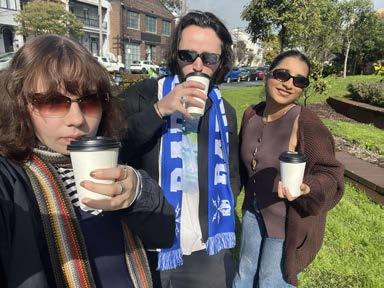
For Lei, her imagination offered her a quaint yet substantial reprieve from her journalistic senses that could only detect despair where they looked. She told us how she found herself in a childlike state, making up skits between imaginary characters to keep her entertained.
In closing, Lei answered questions on the China-US relationship and where the relationship might head with Trump’s recent antagonism towards China. Lei dissuaded the anxiety in the room with her answer that there likely wouldn’t be any direct fighting between the two superpowers anytime soon. As Lei saw it, both China and the US had become accustomed to the positions they had each carved themselves in the global hierarchy, and saw little reason to topple their relationship as a result.
Referring to the role of independent media such as Loewenstein and Peter Cronau’s Declassified Australia — which has exposed Australia’s role in arming Israel’s genocide in Palestine — Bacon makes the point that “often the most meticulous journalism is done by the people who are called ‘activist’ journalists”.
We spoke at length about the decline in, and failure of, much of the legacy media landscape. Despite this, Loewenstein worries that “there is nothing yet to majorly replace” well-resourced legacy media outlets which can provide the resources necessary for robust journalism.
Despite much of our conversation being centred on the grim crisis in the media landscape, we were left with a hope that there could be, or rather there needs be, journalists that could do the right thing. Bacon ended the session with a powerful call to action, that “the need for journalism, the need for information presented in ways that is digestible for people and relates to their lives, could not be more important than it is now”.
One of the most riveting stories she shared involved a man who was photographed with a group of associates… only to later be murdered by those very same men. McClymont, suspecting foul play, staked out the unfolding drama herself, disguised as a dog walker. Her instincts proved right: police had also received a tip-off and were ready, eventually arresting a man who tried to flee. It was a stark reminder that danger isn’t abstract in her field; it is lived and immediate despite the stake being really high.
From Sydney boardrooms to whispers as far away as Arkansas, McClymont insists stories are everywhere. What matters, she told the audience, is persistence: “Just keep going.” It was a conclusion that summed up both her career and her advice “journalism may be fraught with danger, but it is sustained by courage, wit, and the dogged refusal to back down.”
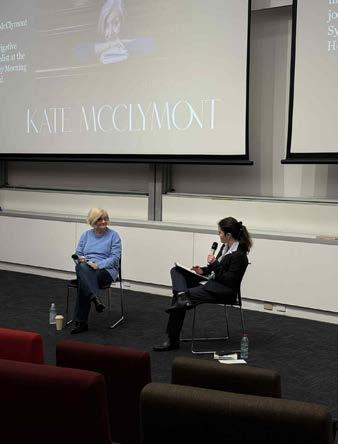
The question of radio’s viability was brought forth towards the latter half of the panel.
Joel answered the question with what a common sentiment in radio, “everyone is thinking about this at the moment, what the right balance is.” He remarks that podcasts are just an evolution radio.
In addressing this audience question, Kwame hammered home the importance of knowing your audience. Who are they? When do they listen? How do they listen? What’s keeping them listening? He suggested to “sit down and create an avatar of your audience,” and fully conceptualise your listeners through statistics to guide your creation.
Both creators acknowledge the issues of radio in a digital and DAB+ world, but are hopeful for the medium evolving instead of dying.
At RadMon, we echo this train of thought. Radio will never be what it once was, but it has already evolved. Kwame’s own experiences in connecting with the audience rings true, even at student stations. The listenership comes from building a relationship with the audience. That’s how radio, whether it’s live or prerecorded stays alive.
This is an extract of a review published on RadMon’s website. Read in full online.













Eryn Yates (Vertigo, UTS)
One of the panels I attended was led by Tracy Holmes, an ABC radio presenter with an extensive career in television and radio. Holmes’s specialty is sport, and her resume is impressive. She has worked as a sports presenter for Channel 7, co-hosted the 1998 FIFA World Cup, and presented in Hong Kong and Beijing. She was the first woman to host a national sports program, Grandstand, and reported for the ABC at the 2020 Tokyo Olympics.
Despite all of this, at first, I wasn’t exactly rushing to Holmes’ panel. Sports journalism has never been an area of interest, and I half-expected to be checking my phone the whole time. However, within the first 15 minutes, Holmes fundamentally reframed my conventional understanding of sports journalism. She said that her journalistic interest does not lie in who wins or loses, nor in the injuries that may occur, but rather in the strategic engagement that sport demands. That sport is not a separate sphere but a lens through which broader social, cultural, and political phenomena can be observed. Every match, press conference, and even minor victory or defeat offers insight into societal dynamics, provided one examines it with sufficient critical attention.
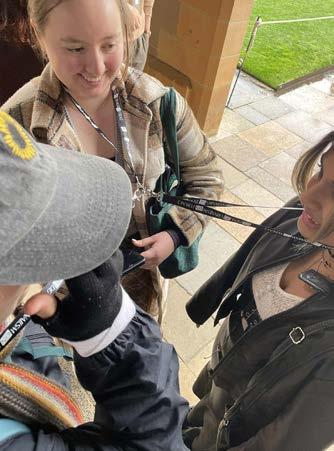
For student journalists, her guidance was incredibly instructive. Using the Olympics as an example, Holmes showed that these events are about far more than athletic performance. The media often outnumbers the athletes themselves, and the stories it tells shape how the world sees nations and identities. Sport can act as a microcosm of society, revealing issues of inequality, activism, gender politics, and diplomacy. Yet in Australia, much of the coverage glosses over these layers, missing a huge opportunity to use sport as a lens for critical and socially aware storytelling. She emphasised the importance of foregrounding human narratives and allowing audiences to engage interpretively rather than prescribing conclusions.
By the conclusion of the panel, I felt…
inspired. Holmes did more than outline the practice of sports journalism. She reinforced that in every field, the media has power, and the way we choose to wield that power shapes how the world perceives it.
Ethan Floyd (2023 Honi editor)
The zine-making workshop, run by Bipasha Chakraborty (former editor of PULP Magazine and Honi Soit) and current Honi editor Ellie Robertson, was one of the more hands-on sessions of the conference. While I was the only other former student journalist in the room, the rest of the crowd was a mix of current editors and contributors from around the continent looking to add another tool to their student media arsenal.
The focus was firmly on practice over theory: how to fold a template and arrange scraps of text and images into a self-contained publication. One participant ran with a pretty novel idea, sketching portraits of everyone in the room and assembling them into a zine by the end — proof of how quickly the form lends itself to personal expression and experimentation.
Law has since become a screen-writer, radio host, playwright, author and even previous Survivor contestant, refusing to chain himself to one thing. Interviewed by Honi Soit’s William Winter, Law responded to questions such as how he viewed Sydney’s theatre scene with quips such as “You know how hot people don’t have to develop a personality? That’s like Sydney.” Alongside his lighthearted banter, Law also delivered plenty of wisdom, reminding us that memoir is not exposé, and stressing the need to actually consider the consequences when it comes to writing about loved ones. “Write with the door closed and edit with the door open,” he says, underlining that the writing process doesn’t end at selfindulgence; it needs to be modified for the audience. In the making of his family biography
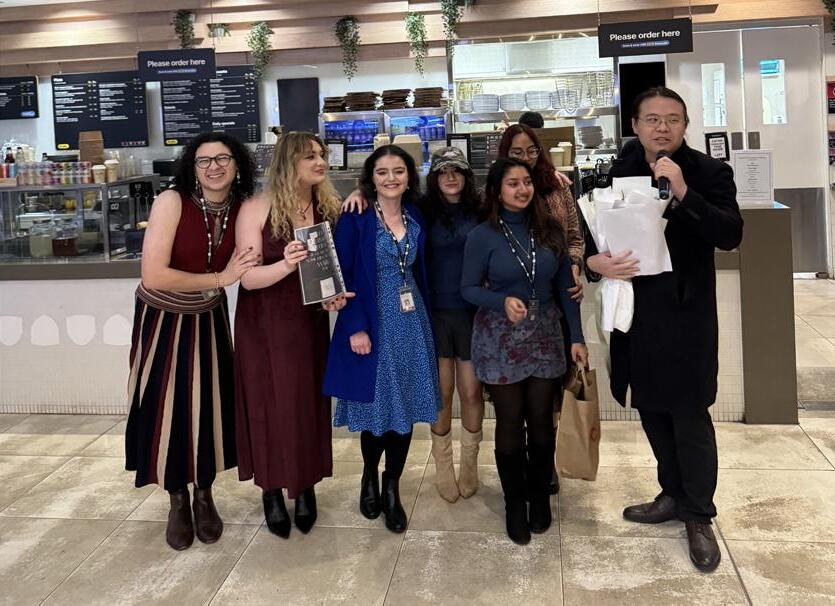
What was missing, though, was much of a sense of the radical history behind zine publishing. A little more time spent on this “why” would have given the session a lot more weight.
Still, there was something liberating in the reminder that publishing can be so tactual, in folding, stapling, and photocopying. Running a student paper today is almost an entirely digitised ritual: gone are the days of typewriter and letterpress, of paste-up and bromide camera. Now, we huddle over InDesign into the early hours, wrestle with WordPress plugins, and pray to the algorithm that our words reach students who wouldn’t otherwise recognise the name Honi Soit
Against that backdrop, the workshop offered a glimpse of publishing stripped back to its most elemental form: paper, scissors, glue, and the thrill of making something with your hands.
Kayleigh Grieg (Grapeshot, Macquarie Univerity)
Charismatic and intriguingly multitalented, Benjamin Law proved to be one of the most entertaining guests of the conference, and a model example of what a prior stujo can become. From humble beginnings as an editor of QUT’s previous publication Utopia,
The Family Law, he allowed all members months to read the manuscript before it was published. Though comical and wild, Law assured us that his biography was entirely true, as proven by the documentary version in which his family is just as “lovably unhinged” as he portrayed them. Expressing a fascination with social taboos through his work, Law continues to tell stories about growing up queer and Asian in Australia, religion, death, sex, money, hoarding disorder and more through any medium he can master.
I was excited at the opportunity to hear Benjamin Law as a guest speaker for the Student Journalism Conference (great job guys!) at USyd. It was cold and rainy, but none of that mattered when I was warmly greeted by the interviewer for that session, Will Winter.
We came across Benjamin at the entrance. You could see Will was nervous but kept his composure and was very professional. Benjamin was warm and friendly; I went to chat with him until the interview began.
As the interview began, Benjamin embraced the inquisitiveness of the young man sitting across from him, each question answered with enthusiasm and honesty. His talent for storytelling brought his stories to life, captivating his young and keen audience (and me). He shared personal tales, his journey, and what’s ahead for him.
When it came to question
time, Benjamin gave each participant his undivided attention, uniquely answering each one.
It was just over two hours when it concluded, and Benjamin still stopped to chat with fans on his way out.
Before he disappeared into the rain, he thanked Will and gave him a warm hug. I also got a warm hug… those are the perks of being the proud mum of Will Winter.
After a raucous welcome party at The Rose the night prior, conference attendees found themselves on Saturday in discussion with Jacqueline Maley, senior writer and columnist at the Sydney Morning Herald (SMH) and The Age.
The interview began with Maley discussing the journalistic practices intrinsic to her work and the difficulties she navigated in modifying those practices after her recent foray into fiction writing. Journalistic writing develops “fast twitch fibers” according to Maley: editorial decisions must be made quickly, leads must be tracked down before they disappear, and huge amounts of research must be sifted through at lightning speed to find relevant information.
When she was writing her latest novel, Lonely Mouth, Maley admitted that she found herself unable to write fiction and write for the SMH during the same day. She stressed the need for compartmentalisation for effective journalism, and for journalists to take account of the unique constraints placed upon them to do their best work.
Maley also discussed similarities between her writing across newspapers and novels alike. A highlight was Maley explaining the interest that she had in uncovering gender-based injustice across her work, whether in her investigation alleging sexual misconduct against a former High Court judge or Lonely Mouth.
She also brought up plenty of practical advice for budding journalists. Jacqueline’s closing remark for eager stujos was especially memorable: don’t be afraid to call leads on the phone.
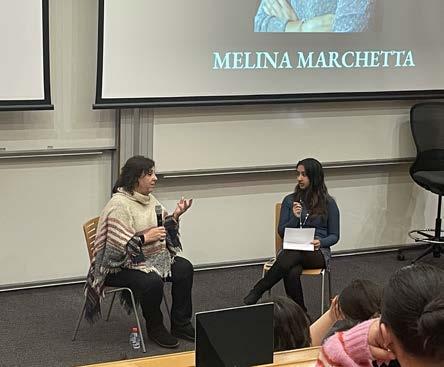











Riley Bampton (Glass, QUT)
Omar Sakr is an Australian poet, born in Western Sydney. He has been a published poet since 2014 with over 80 of his poems appearing in various literary journals and magazines. Since Sakr began writing, he has published five poetry collections, with his most recentbeing The Nightmare Sequence, a collaborative work between himself and visual artist Safdar Ahmed. Safdar Ahmed is an award-winning writer, musician, visual artist, andcreative based in Sydney.
Ahmed has published three books and is best known for his 2021 graphic novel, Still Alive.
The Nightmare Sequence was my introduction to both Sakr and Ahmed’s work. The book is a harrowing response to the genocide committed by the state of Israel in Gaza beyond October 2023. At this year’s StuJoCon, I had the privilege of attending a talk from both creatives called Art & Activism.
I will not describe the panel as enjoyable, because it was not meant to be. The topics discussed were around the ongoing genocide in Gaza. I went into the talk excited to hearfrom two astounding creatives and was immediately faced with the reality of its content. Iwas confronted by my own complicity.
During the talk, Omar Sakr spoke on how he writes about violence without aestheticising it. Sakr explained that in most cases violence morphs into a form of content and that many ofthe poems in The Nightmare Sequence were written as a response to this. “These poemsare about capturing a sense of what we are witnessing in the 2nd or 3rd degree. We are, at best, witnessing the witness.”
Safdar Ahmed was asked how exactly he decides what to show with his illustrations. He replied saying that he wanted to highlight everything that our media is ignoring. Ahmed believes that mainstream media reporting does not go far enough, and, in some cases,deliberately omits certain facts.
For me, this panel was the most important events I attended at StuJoCon. It has actively changed the way I look at and engage with the world.
I’ll finish this review with a quote from Omar that has stayed with me, “The reality of this genocide is totally and completely overwhelming.
“When you do recognise it then you have to face your role and the violence that upholds the comfort in your life”.
You can buy The Nightmare Sequence directly from the publisher, UQP. All artist royalties go to supporting aid in Gaza.
Kiah Nanavati
The panel on student journalism offered a compelling glimpse into the passion, risks, and responsibilities that come with reporting from the margins. Speakers Mathilda Stewart, Bianca Nogrady, and Pam Walker reminded the audience that these publications have always been more than training grounds—they are spaces of defiance. As Bianca and Pam stressed, campus reporters capture activism and protest in ways mainstream outlets cannot, because they live the stories alongside their peers. “Curiosity
Jessica Louise Smith
Though known for his involvement in the comedy group The Chaser, Dominic Knight, novelist and part-time academic at USyd, traces his path to becoming a professional comedian back to his days of student journalism.
Knight candidly recalls a seven-year-old Dominic making magazines with texta and naming them after himself — he didn’t reveal these names, but I’d hedge my bets on Domination or Knight Nightly — but his journey as a writer really began for him around Year 9, editing his high
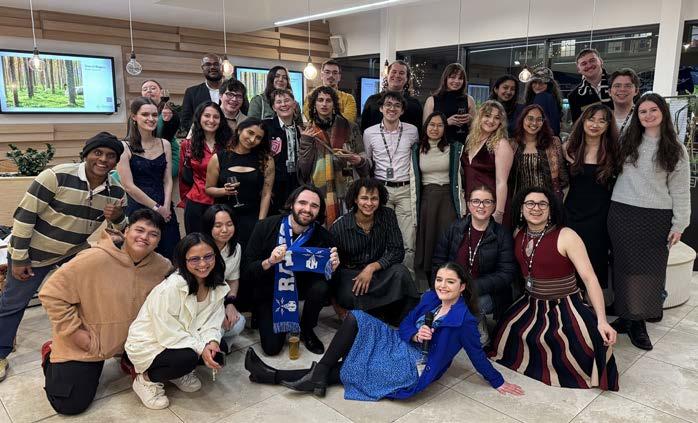
and enthusiasm make journalism,” Pam remarked.
The panelists highlighted the freedoms and constraints of this work. From provocative student newspapers in the 1990s to Pam’s stories of taking on corrupt developers, politicians or really heinous playwrights, the anecdotes revealed how courage can outweigh caution. Yet threats to student journalism remain familiar: limited funding, censorship, and institutional pressure.
“Don’t be afraid of weapons that silence you,” Bianca advised, while Imogen’s rallying cry — “keep fighting and no rest” — drew nods from the crowd.
Science journalism also found its place in the conversation, with Bianca delighting in the endless questions of climate, biodiversity, and pandemics. But debates over objectivity sparked the fiercest exchange. Pam insisted on balance, giving all sides a voice, while Mathilda argued that perspectives denying climate change or upholding white supremacy do not deserve oxygen. Bianca, caught in the middle, admitted “balance is hard.”
What unified the panel was the belief that student journalism is essential because it is fiery, loud, and unapologetically political. It amplifies voices often silenced elsewhere, while testing the edges of freedom of speech. As Pam concluded, “Journalists have power, and with power comes responsibility”, a reminder that student journalists are not just reporting the future of media but shaping it.
school magazine. From there, he caught the journalism bug, going on to edit the, now non-existent, Union Recorder, and then our beloved Honi Soit.
“Trying to second-guess audience reactions is a recipe for mediocrity.”
He reminisced on stupol memories, strongly discouraging us to read his novel on said topic — see Everything and Nothing Changes: Reflections on Dom Knight’s ‘Comrades’, a 2021 review by Grace Lagan, for context. Like many an Honi editor, Knight honed his comedy skills back in the day by poking fun at the ironic and dichotomy of USyd’s student politics, leaving the audience with the timeless sentiment: “(Stupol) does matter, but that doesn’t mean it’s not funny”.

Thank you to Joey Mann from ANU’s Woroni for moderating this session, and thank you, of course, to Dominic Knight for introducing a new generation to the iconic 2007 APEC Summit stunt. We are feeling inspired — big things to come in the Honi Soit comedy section!
Alana Valentine
Gracie Hosie (Glass, QUT)
Whoever told you not to meet your heroes is lying. When Alana Valentine sat before us, it felt less like a keynote and more like a masterclass in the moral responsibilities of storytelling. As a personal fan who has long looked towards her work for inspiration, I found her session both grounding and deeply moving, a reminder of why voices like hers are vital in Australian arts and journalism alike.
Valentine, a celebrated playwright and icon, is known for her compelling and compassionate approach to verbatim theatre. She spoke candidly about how she gathers stories through interviews, testimonies, and archives, transforming real experiences into dramatic works that demand empathy and accountability. Hearing her unpack that process in real time, the ethical tightrope of truth, permission, and representation, was an invaluable insight for any writer or journalist trying to tell human stories with integrity.
What struck me most was how she drew parallels between journalism and theatre. Both acts of bearing witness, both art forms that rely on credibility, and both forms capable of shifting public consciousness. She challenged the room of student journalists to think critically about their own role as storytellers, asking us to consider not just what we publish, but why and for whom.
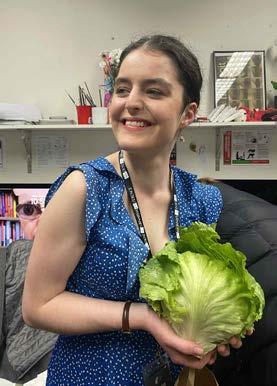
After discussing the many highs and lows of his career, Knight blessed us with a little tidbit on how to prevent being ‘cancelled’, “the politics of your comedy should be defensible” — a message that should be widely distributed to teenage boys on the r/darkhumour subreddit.
“The key skill is having the humility to get better.”
Valentine referenced several of her most acclaimed works, including Parramatta Girls, Letters to Lindy, and Wayside Bride. Each example illustrated her ongoing commitment to community collaboration and truth-telling, art that listens before it speaks. Her anecdotes about navigating resistance and earning trust from participants revealed just how much patience and care underpin her creative success.
As someone who has admired her writing for years, seeing Valentine in conversation reaffirmed her reputation as one of Australia’s most ethically grounded and emotionally intelligent storytellers. Her presence at StuJoCon was more than a talk, it was an inspiration for all emerging writers and artists to create with compassion and courage in storytelling.








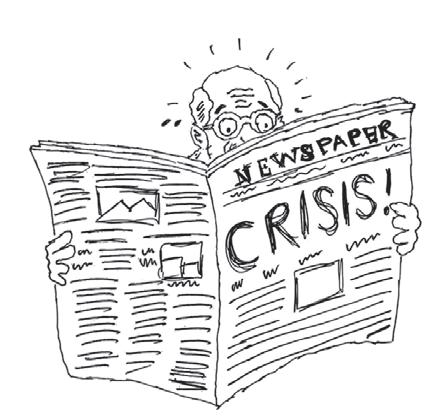
The hard part of student media, though, is pointing out the depravity of individuals or institutions and to advocate for the wronged.
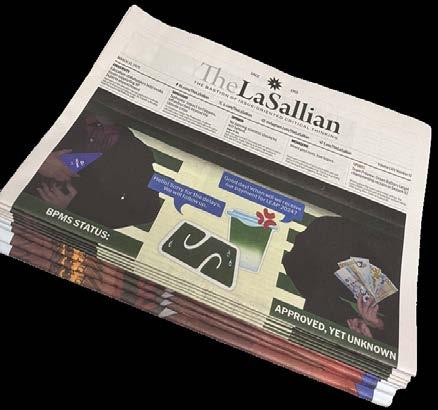
as a political enemy, it can be viewed as a public relations tool instead, which is honestly just as difficult to live with.

After all, student media do not write about and for themselves, but for the people whose stories need to be written.
Art by Charlotte Saker
Student journalists stand as the chroniclers of university life, storytellers that shine the spotlight on minorities, and conversationalists who ensure that the student body are not only aware but also critical of the narratives that swirl around campus walls. The hard part of student media, though, is pointing out the depravity of individuals or institutions and to advocate for the wronged. This can carry severe consequences, not just for the journalists in the moment, but for the student body down the line.
Student media have long fought to combat all forms of corruption by uncloaking them to enforce accountability and justice. But because corruption repels what is correct, campus journalists face looming threats from administrations for their service of reportage.
In the Philippines, 1,000 cases of campus press freedom violations, 206 in 2024 alone, have been recorded by the College Editors Guild of the Philippines, the Philippines’ national union of student publications. These violations encompass censorship, state surveillance, and budget freezes, among others. And in general, the country ranked 116th in the latest Press Freedom Index (PFI) by Reporters Without Borders.
For Australia, while faring higher in the PFI at 29th place, various campus publications still face looming threats of censorship and budget cuts from their administrations or unions. Not only that, there is no baseline legal protection for Australian student media, compared to the Philippines’ Campus Journalism Act of 1991 (CJA). The CJA was ratified after the Marcos Sr. dictatorship (Martial Law), which clamped Filipino media outlets and targeted Filipino journalists, to recognize the role of student media in sparking discussions and movements among the youth against repression. With this, student media being safeguarded by law is utmost essential.
Censorship is already a tell-tale sign of avoiding accountability for misdeeds. It means attempts to forget history, such as political censorship against campus publications in Cagayan State University for their reportage of the 53rd commemoration of Martial Law’s declaration last September. At the social level, it also means subjecting to conformity, such as taping black bars on Honi Soit’s notorious “Vagi Soit” edition as consenting women’s genitalia seemed to be too explicit for adult eyes.
In my experience as a former
Meijie Ureta sends courage from the Philippines.
Managing Editor of The LaSallian, the official student publication of De La Salle University, I admit that we have protection against political forces and rough attacks. Still, we got jabs from our school administration, fellow student organisations, and external groups for our reporting.
I remember receiving an email last year wherein a large fast fashion brand requested us to take down our report of their tent falling over along a major walkway in our campus, as they feared for their “publicity.” Similar requests persisted throughout my tenure and even after. Recently, the publication was told by the administration and the student government to take down a report of a security threat directed at our university on 2nd October to not cause “mass hysteria.”
We had a justifiable reason to refuse in both cases: our service of delivering information to the student body. However, recalling them made me realise how much the social factor can affect our work and how others interpret it. If the press is not seen as a political enemy, it can be viewed as a public relations tool instead, which is honestly just as difficult to live with as fellow students could also push that narrative.
I could talk all day about the dilemmas student media have had to withstand, but what must be discussed is the repercussions these have on the student population. Circling back to corruption, its tendency to hide the truth is an unfortunate regularity, especially when not complemented by genuine accountability. For as long as these silencing tactics continue, we may be prone to feeling unfazed by the problems plaguing our communities. Moreso, because we are desensitised by deceit, we may not question wrongdoings.
We may also not decipher what is right, wrong, or nuanced because truth and fake news are starting to blur together in the current information landscape. This is exacerbated by concerning literacy rates, wherein the Philippines only has 70.8 per cent functional literacy (literacy skills that go beyond basic levels) according to the Philippine Statistics Authority, and Australia showing 97 per cent insufficient media literacy based on the Public Interest Journalism Initiative.
In this digital age, we have also become more prone to knee-jerk reactions as our ability to analyse carefully and respectfully becomes undermined. Academic literature showsthat critical thinking definitely accounts
for acknowledging the limits of our knowledge as well as our personal biases, which is especially important given our tendency to source our information from social media. This information can be accessible without proper regulations, and our swelled irrationality can become bigotry simply because of the mere existence of freedom of speech.
With this, while the student body is not directly affected by the distress of censorship tactics, the subtle change in how they can receive, process, and discuss information can start to affect the social climate of their campus and beyond.
Despite everything, student media continue to press forward. Yet this is a long, steep trek considering the overall circumstances of not only respective institutions but society at large. While the Philippines has the CJA, it is relatively fragile given the lack of provisions for digital media, defense against school interference, and penalties for violators. Filipino student media are lobbying for the Campus Press Freedom Bill in response to this, but it unfortunately remains in legal limbo for the past 13 years as it was constantly met with no progress in the Philippine Congress.
For Australia, the Student Media Association (SMA) was recently established as the country’s first campus media union after finding inspiration from the courage of Filipino student media. The SMA aims to become an agent to solidify protection and advocacies for Australian student journalism, and that one day they too could have legal protection in their national governance.
As student media continues to be under siege, its protection and defense means more than ever. This means more than keeping these publications running; the general student population deserve and must receive news and practice discourse of what is happening inside of their campuses, because they will carry it outside when dealing with larger societal issues. If the rights of student media are protected, then the rights of the student body are protected as well.
After all, student media do not write about and for themselves, but for the people whose stories need to be written in order to be honored, advocated, and remembered. This fight must stretch beyond perseverance if the end goal is to deliver accountability and justice.








Kira Kwong is stopping the self-fulfilling prophecy.
It’s a Monday night in Sydney’s Chinatown, and as I walk up toward the historic sandstone building that will soon house the Museum of Chinese in Australia (MOCA), I find myself stepping into a cultural revival. The corner of George and Hay Street is alive tonight. Not with traffic or tourists, but with tiles clacking and laughter rising from a pop-up mahjong night hosted by Soul of Chinatown. The non-profit group has temporarily transformed MOCA into a lively celebration of Chinese Australian heritage. Inside, a small tower of instant noodles guards one corner; a pineapple bun station offers comfort and nostalgia in equal measure. At the heart of it all are Soul’s founders Kevin, Hayden, and Peter, welcoming guests like old friends. Square green tables fill the room, inviting both seasoned pros and newcomers. I take a seat at a beginners’ table, ready to play my very first real game of Hong Kongstyle mahjong.
Acknowledging Hong Kong Cultural Erasure
Five years have passed since the 2020 enforcement of the National Security Law that has marked a halt in the democratic freedoms of Hong Kongers. It’s been even longer since China’s underhanded stripping of our culture. Beijing’s goal to absorb and unify it as ‘just another Chinese city’ has meant Hong Kong’s unique culture is their greatest threat. No cultural identity, no political differences. And China has been moving fast. Visual identity, history, and the Cantonese language representative of Hong Kong has been systematically erased. But it’s not the end of Hong Kong culture. Instead, with deliberate action, it can blossom a new chapter of cultural preservation. How?
Kill the negative attitude
‘Self-fulfilling prophecy’ is a very real psychological and sociological phenomenon. Many Hong Kongers grieve the cultural erasure stemming from the heart of their city. This itself is not the issue, but an infestation of negative phrases has taken advantage
Growing up as an Australian born Chinese with Hong Kong heritage, I’ve always wanted to strengthen my Cantonese. Like many other parents, my father often rebuked, “There’s no point in learning Cantonese anymore, you should learn Mandarin for business instead.” This attitude teaches younger generations that our own culture is not worth a future. Parents and children feel that it is pointless to invest in something already considered ‘doomed’. We can’t blame the parents whose concerns stem from real world pressures of economic opportunity and financial instability. Instead, the wildfire spread is likely caused by the ‘illusion of truth effect’ occurring when the repetition of a phrase increases the likelihood that it is perceived to be true. Without realising the harm, people unknowingly feed into misinformation, spreading it further.
Despite being the 20th most spoken language in the world above Italian, Korean, Vietnamese, and Punjabi, the prophecy begins to fulfill itself. There is a lack of research and education available for those wanting to learn spoken and written (Traditional Chinese) Cantonese. It is a language that preserves culture, history, and the unique perspective of a people, in this case Hong Kongers. To save it, we must learn to value and invest in it. Change starts with breaking the negative cycle. Self-devaluating speech has been hurting our cultural identity for generations; I’m calling it out, retelling our historic narrative, and debunking these phrases altogether.
As Hong Kong citizens mass migrate overseas and culturally significant establishments are shut down, you might believe that the culture is lost. But perhaps I can remind you of the uprising in Hong Kong’s iconic visual identity surfacing in cities all over the world.
We’ve seen this all before. Following the Gold Rush in the 1800s, Mao Ze Dong’s manmade famine of the 1950s and 60s, the 1989 Tiananmen Square
You’ll recognise them as the original Cantonese-run Chinatowns still surviving today in cities like Sydney, Vancouver, San Francisco, London, and New York. They have thrived against all odds:notably racial violence, the White Australia Policy, and other deliberate forms of harassment attempting to tear down our small minority communities. Yet Chinatowns have flourished, retaining our tongue and cultural values for generations.
The idea that Hong Kong culture has collapsed seems unlikely. Instead it has spread with global power and interest. Kill the uneducated phrases and share something that acknowledges our resilience.
Is the culture and language really dying? Over eighty million people speak Cantonese worldwide, ranking fifth among the three hundred languages spoken nationally. It’s hardly something to mourn over. Linguistically, Cantonese isn’t considered endangered by any standard. It doesn’t appear on UNESCO’s four levels of language endangerment, and with a growing number of younger speakers outside of Hong Kong, it remains a living, evolving language. It only takes a committed few to document, teach, and preserve a language.
Since 2016, in the wake of political upheaval in Hong Kong, there has been a resurgence of Cantonese cultural expression in diaspora communities. Sydney’s restaurants alone are a case study in cultural revitalisation:
• Kowloon Cafe features a life-sized ding ding tram in Eastwood and an imported minibus in Burwood.
• Hong Kong Street Food boasts an entire Mong Kok MTR stationthemed interior in Rhodes. They also recreate Ocean Park nostalgia complete with cable cars and rollercoaster décor seating in Chatswood.
to local suburbs. (Hong Kong Seafood Stall in West Ryde).
Adding to that: annual Hong Kong street stall festivals in Chatswood, classic Hong Kong film screenings, USyd Hong Kong Student Association, and more. These aren’t isolated novelties, but a part of a growing cultural momentum, sustained by communities who value their heritage. Organisations like Soul of Chinatown are also playing a vital role in this revival, hosting intergenerational events like Mahjong nights and advocating for Chinatown’s historical preservation.
Of course, none of this happens passively. The pandemic saw the closure of many iconic Cantonese restaurants, reminding us to make a deliberate contribution. So, kill the baseless, false phrases and support our culture by celebrating and sharing it.
Breaking Free of the Given-up Mindset
We need to stop the spread of phrases like “Cantonese is a dying language” or “Real Hong Kong culture is lost” that reinforce defeat, not truth. These statements are not only inaccurate but harmful. They create a mindset of cultural despair, feeding a selffulfilling prophecy where people believe there’s no point in preserving or participating in their heritage.
Valuing our Cantonese language and Hong Kong heritage isn’t just about preserving culture. It’s shaping personal identity and self-value. It’s reinforcing continuity between generations and families. Language, in particular, holds nuance, humour, and cultural values that can’t be fully translated. When we speak Cantonese, we carry our ancestors’ voices. Letting go of that robs not only the individual, but future generations, of that connection.
When something is constantly framed as “dying” or “lost”, people disengage. They stop learning the language, valuing traditions, and passing them on, believing it’s already too












In February 2022, Fahad Shah, editor of The Kashmir Walla, was dragged into police custody on charges of spreading fake news. His crime was reporting on civilian deaths. He is not alone. Since India’s revocation of Article 370 in 2019 — a constitutional provision that gave Jammu and Kashmir special autonomy — Kashmiri journalists have been made to queue outside police stations for background checks, had their press passes revoked and their stories branded as terrorism. Across the Line of Control, Pakistani and Chinese authorities employ their own versions of the same playbook: censor, intimidate, erase.
The question is simple: what does it mean for journalism when truth itself becomes criminal? Kashmir shows us. This is not just a local conflict but a global one, where national security is wielded as a weapon against press freedom. The silencing of Kashmiri reporters echoes Palestine, and exposes the hypocrisy of democracies like so-called Australia that claim to defend free speech but look away when it matters most.
When India revoked Article 370 in August 2019, it was not only Kashmir’s political autonomy that disappeared. The region was plunged into silence: internet and phone lines cut, journalists summoned to police stations, and newspaper offices raided. Kashmir became one of the most militarised zones in the world, and the business of reporting was rebranded as a threat to national security.
The architecture of repression rests on law. The Public Safety Act (PSA) allows detention without trial, and the Unlawful Activities Prevention Act (UAPA) stretches the definition of terrorism so broadly that an article, tweet, or video clip can trigger arrest.
Shah spent much of 2022 shuttling between jails and courts, accused of spreading fake news. His trainee reporter, Sajad Gul, was held for nearly 910 days. Asif Sultan, arrested in 2018 for covering the insurgency, remained behind bars even after bail was granted, re-arrested under PSA. Each case shows how overlapping charges and fresh FIRs create endless legal limbo, draining families of resources while keeping reporters out of circulation.
Anonymous wants to protect journalists.
independent outlets fold under pressure, and Kashmir’s story shrinks to the official script. In Indian-administered Kashmir, telling the truth has been redefined as terrorism.
Across the Line of Control, Pakistan maintains its own grip on the narrative. Azad Jammu and Kashmir (AJK) and Gilgit-Baltistan are presented as self-governing, but the reality is limited autonomy under tight military oversight. Even electoral rules enforce loyalty: candidates are barred from running if they call for independence or challenge accession to Pakistan.
Journalism here does not face the spectacle of internet shutdowns or paramilitary raids as in Indian-administered Kashmir. Instead, it is suffocated through law. The Prevention of Electronic Crimes Act (PECA) and the Anti-Terrorism Act (ATA) are frequently deployed against reporters. In Gilgit, journalist and activist Sher Nadir Shahi was arrested after his bail was revoked on charges of inciting against state institutions. In AJK, Usman Tariq was detained in Mirpur, while others — including Abid Hussain Shah and Zaffar Mughal — have had FIRs filed against them for covering human rights abuses. Legal harassment becomes its own form of censorship, discouraging investigation and forcing silence.
In Pakistan-administered Kashmir, journalism is not openly erased like in China, nor criminalised as terrorism like in India, it is quietly strangled through legal chokeholds and military dominance.
This legal war on journalism coexists with physical violence. Human rights groups document massacres, torture, and enforced disappearances from the 1990s onwards, alongside newer tactics: pellet guns that have blinded thousands since 2016 protests, mass raids on newsrooms, and blanket internet shutdowns. The message is clear: documenting state violence is itself framed as violence against the state.
The effect is chilling. Reporters practise self-censorship,
Beyond the courts, structural repression is just as deep. Hydroelectric dams, mining, and China–Pakistan Economic Corridor (CPEC) projects have been imposed without local consent, while protests against resource exploitation are quickly dispersed. Shia Muslim minorities in Gilgit-Baltistan face targeted discrimination and violence,
with little space for journalists to report openly. Women journalists in AJK contend with misogyny, harassment, and the absence of institutional protection, making their participation even more precarious. In Pakistanadministered Kashmir, journalism is not openly erased like in China, nor criminalised as terrorism like in India, it is quietly strangled through legal chokeholds and military dominance.
If India criminalises reporting and Pakistan chokes it through law, China takes a different route: it erases the possibility of journalism altogether. Aksai Chin, seized after the 1962 war, remains off limits to outside scrutiny. In Gilgit-Baltistan, where Chinese investment in the CPEC has transformed landscapes with highways and hydro projects, access is tightly managed. The story told is Beijing’s alone, framed as development and geopolitics rather than local dispossession.

The parallels with Tibet and Xinjiang are unmistakable. Infrastructural colonisation — roads, pipelines, surveillance outposts — comes paired with demographic engineering and cultural erasure. But in Kashmir, China doesn’t need to lock up journalists or raid newsrooms. It simply ensures they never set foot there. What cannot be documented cannot be debated. The silence itself becomes a form of control.

To criminalise journalism is to criminalise visibility itself.
For civilians living along the Line of Control, occupation is an everyday hazard. Both India and Pakistan turn villages into frontlines, trading artillery fire that shatters schools, homes, and farmland. During the 1999 Kargil War and again after the 2016 surgical strikes, Indian shelling into Pakistanadministered areas killed civilians in Neelum Valley and Gilgit. Pakistani fire across into Jammu and Kashmir has been just as indiscriminate, leaving deaths in Poonch, Rajouri, and Kupwara.
In 2019, Pakistan accused India of using cluster munitions against villages in Neelum Valley, an allegation New Delhi denied. Regardless of whose version holds, the outcome is the same: Kashmiri families caught in the crossfire, where even the attempt to document civilian losses becomes another battle.
Kashmir is part of a wider pattern in which journalism becomes collateral to occupation. The silencing of Kashmiri reporters echoes the experiences of Palestinian journalists, who are surveilled, censored, and killed while trying to document Israeli bombardment and displacement. In both contexts, reporters are punished for making atrocities visible. The charge is always the same: undermining national security.
This logic extends far beyond South Asia or West Asia. Authoritarian states have refined the script: laws that criminalise dissent, narratives of terrorism or separatism, and total control over information flows. India relies on PSA and UAPA, Pakistan on PECA and anti-terror laws, and China on denying access altogether. Each state insists it is defending sovereignty. Each instead erodes the possibility of truth.
Kashmir is often framed as a question of borders, but it is more urgently a question of whether truth can survive under occupation. The arrests of Fahad Shah, Sajad Gul, Asif Sultan, Sher Nadir Shahi, and Usman Tariq are evidence of a system where states kill the messenger to bury the message.
To criminalise journalism is to criminalise visibility itself.
If Kashmir teaches us anything, it is that defending press freedom cannot stop at the edges of our own democracies. Protecting Kashmiri journalists is protecting the very possibility of truth-telling everywhere. And without truth, no struggle for justice can endure.












“Uprisings do not enter museums. Onwards to our generation’s Polytechnics.”
Fascism begins very slowly. It builds and builds until all of a sudden you have been thrown into the darkness, stumbling around, trying to grab onto anything to hold you afloat. In Greece, it began with America’s ‘aid’ to stop communism, giving corrupt and Nazi-aligned military officials money to accelerate their power. Then, it was years of passive governance towards the far-right threat, with a false sense of hope that everything was absolutely fine. Leftist political thought was quashed and economic growth was contingent on American economic support. Then in 1963, Grigoris Lambrikis, an anti-imperialist pacifist, was murdered in front of a crowd, a tragedy that was later uncovered to be an assassination coordinated by the police and the army. Finally, in April 1967, the military overthrew the quasi-democratic government, detaining politicians and suspending the constitution, changing the fabric of the nation forever.
Calista Burrowes sees a fascist future.
a tank directly through the gates, crushing the sliver of resistance that had just begun.
Whilst we are, arguably, not yet living under total fascism, repression on campus still lives on, especially at our own University of Sydney. The Campus Access Policy has created a number of barriers to the right to protest on campus, which can and has been weaponised by the administration. Jillian Segal’s proposal of a “university report card” on antisemitism is purposefully open-ended, to allow for the weaponisation of criticism as ‘hate speech’. The taking down of flags and policing of the political views of university staff also promotes a concerning environment that trickles down to students. Universities are a life-force for radical action. They have been a place for organising for decades. Slowly crushing the freedom of one of the only places that is guaranteed to be a centre for free thinking and criticism, has an effect that runs deeply through all places of civil society. If education is freedom, then what chance do we have of liberation?
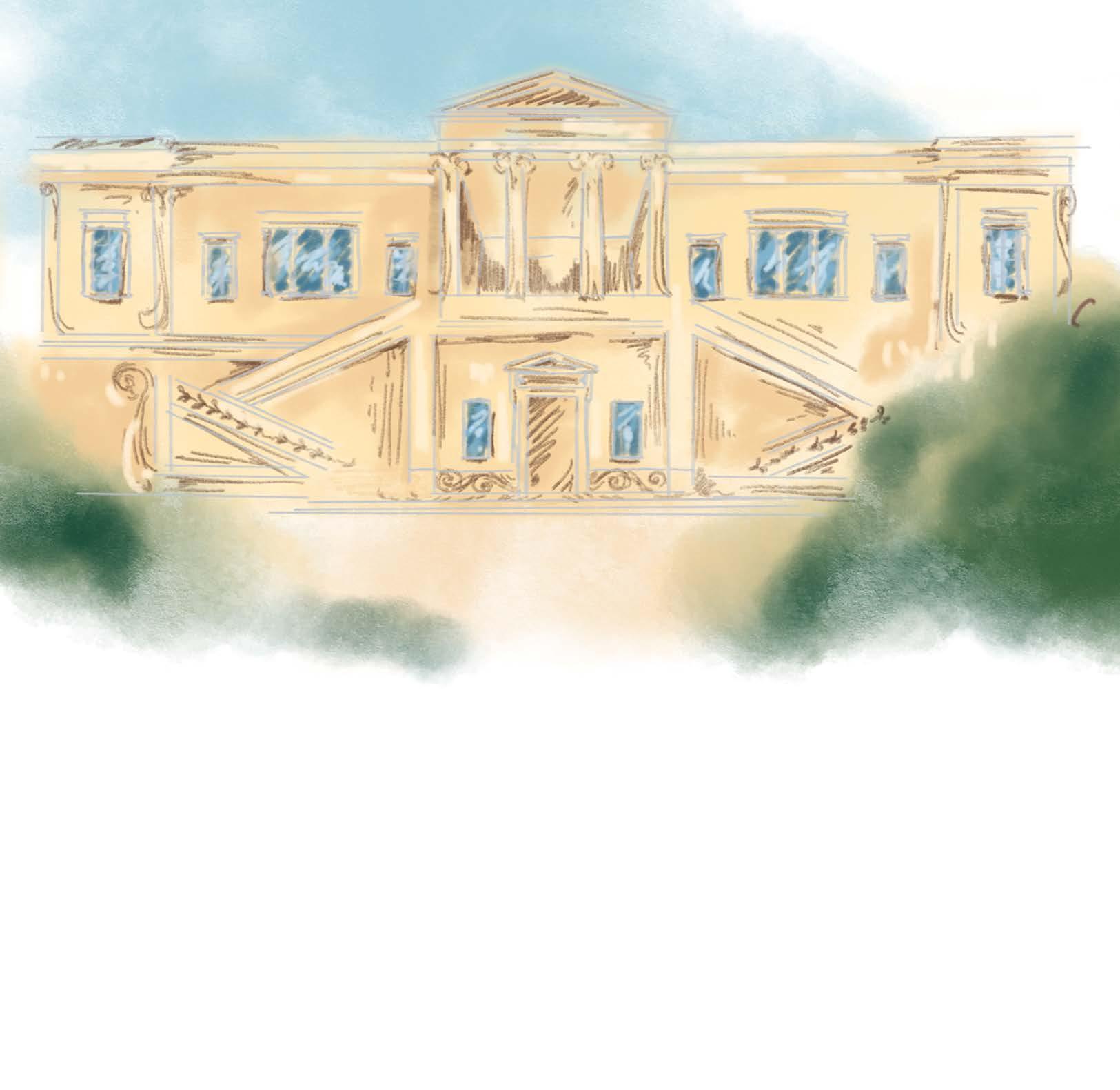
Resistance was one of the most difficult aspects of life under the dictatorship in Greece. Not only was the ‘organised left’ dismantled, but many of their leaders and comrades were disappeared, imprisoned, and murdered. Children were indoctrinated from a young age and told to report anti-dictatorship activities. But when resistance did come, it was the students who bravely began the fight for liberation.
“Curse the hour, curse the moment that the fascists killed
our laughing boy.”
In November 1973, students occupied the buildings of Athens Polytechnic in protest of the way their education had been severely impacted by the repression of the dictatorship which outlawed any and all culture, from The Beatles to Jean-Paul Sartre. They rallied not just for this, but also in protest of the state of their country that had seemingly given up on the ideal of freedom. For three days, thousands of people gathered inside and outside of the university as a show of force against repression. They dropped banners and broadcast their messages on pirate radio, urging others to join them. But the rebellion ended in tragedy. Police opened fire on protesters, killing upwards of forty people and injuring hundreds. When the students inside attempted to fight back, the police drove

by
If we have anything left, we have our voices intact — at least, for now. The places where our voices are used can be boarded up and destroyed, but the very notion of speaking truth to power will always remain a possibility. When the students and workers occupied the Polytechnic, they were united under three simple but immortal words:
“Bread, education, and liberation.”
When these words were echoed over the pirate radio of the resistance, it tied the freedom fighters together under simultaneously gentle and radical demands: for sustenance, for knowledge and transparency, and for a free and equal society not governed by oppression. If anything, the words have become more significant as the idea remains. The movement, despite being quashed, lives on through the voice of those who fought. In the same way that we shout our demands on campus and in the streets, those words are an everlasting nugget of hope.
“I am full of wounds and still standing on my feet.”
Defeat, of any kind, is obviously crushing. But, what do we do from there? We do not just allow it to happen unnoticed. Defeat can galvanise a movement to continue pushing. This is what happened in Greece. Once it was shown so visibly that the regime had such little regard for people, going as far as murdering students, the resistance only grew. Now emboldened by seeing that there was an opportunity to rebel, farmers put down their tools, and urban citizens became increasingly ungovernable through protests and labour strikes to shut the nation down. It was the coup of Cyprus, however, that saw the fall of the dictatorship, a bloody attempt to influence the politics of a foreign nation, now that their crimes had extended across borders. The mass turnout of people in the uprising provided a sense of hope and unity, because there were others out there who wanted change. Before, people would not even dare to speak a word against the dictatorship, and rebellion took the form of quiet whispers of poems for those lost. Now, it was loud and daring and hard to ignore. The rebellion itself showed the dictatorship was fallible, and the defeat motivated people to ensure that next time, they would be victorious.
We do not have to accept defeat either. Just because measures of surveillance and repression are infiltrating our campus, does not mean that they are forever. Perhaps, the pushback against student voices can motivate us to fight for their place even more. When right-wing and antiimmigration extremists marched through Sydney — right next to our campus — did the anti-fascist movement in Australia surrender? No. The threat of the far right has understandably scared many, but it has also made the need for unity and active pushback all the more visible. It is not just about unity, though; it is about prevention. It is about securing an equitable future now.
Every year on 17th November, following the rebellion of 1973, Greece shuts down. In the tradition of those who came before, they protest. They show up to the parliament house, to the American embassy, and they make their anger known. It is not just about the Polytechnic anymore.. It is about imperialism. It is about austerity. It is about corruption and cover-ups. Sure, the dictatorship fell, but the conditions that initially let it grow did not change. Unfortunately, sustainable and attainable progress is a slow, unfolding, and ongoing process. I hope that when the day comes where all of us are liberated, something I hope happens in our lifetime, we never stop desiring more and commemorating the hard-won freedoms of the past.
Pia Curran sees through your arbitrary policies.
Since 2024, it seems that every action taken by students and academic staff to express political and humanitarian views has been swiftly followed by a new campus policy that makes said action a transgression. The University of Sydney has imposed a flurry of new restrictions on postering, the display of flags, and lecture announcements. These ad hoc policies disproportionately affect anti-genocide activism on campus, whether it be ultimatums issued to staff by the administration to take down Palestinian flags, or the removing of hundreds of corflutes advocating for Palestine during the SRC election.
Recent domestic and international developments regarding Gaza mean that the University now has absolutely no pretext to continue quietening anti-genocide activism on campus. Recognition of Palestine’s right to exist as a sovereign State and the call for the end of genocide in Gaza can no longer comfortably be called ‘controversial’ political opinions. They are humanitarian imperatives supported by the vast majority of Australians, and the highest institutions of the international community. We have seen around 300,000 people march across the Sydney Harbour Bridge, the United Nations recognise this as a genocide, and recognition of Palestinian statehood by the Albanese government, albeit deplorably late.
Students and academic staff should be able to display solidarity with Palestine on campus without facing the threat of disciplinary action. Such threats, implicitly or explicitly stated, amount to a coercion to stay silent and continue on with the humdrum of weekly readings, lectures, and assessments, as though the reality of genocide ceases to exist inside the grounds of the University. It is worth reminding that this is a University whose ties to Israel have only just started to loosen due to the pressure of sustained activism from students and staff that these new policies opaquely attempt to curtail.
Activism does not threaten or take away from the University’s primary focus as an educational institution; it enhances it. Education has never been solely about sticking your head in a book, and this is the core problem with the corporatisation of tertiary education. The very idea of education, which from its Latin root educere denotes a ‘bringing forth’ or ‘leading out,’ has become confined to narrow training for a particular field of employment. Students and staff should stay in the box, be productive, and be re-productive of the current system.
Fundamentally, education is about learning to be critical of received narratives. We need a vibrant campus culture to enable this, not one in which students and staff alike face bizarre disciplinary actions and kangaroo courts for transgressions of arbitrary policies.
In an open letter response to the administration’s ultimatum to remove a Palestinian flag from his office window, senior history lecturer Dr Brophy spoke of the “morally hazardous position” the University places itself in by continuing to stifle free speech on Palestine:
“Whether or not they feel this now, they may come to regret such an action in the future, when — as is inevitable — the full scale of Israel’s barbarism is acknowledged by society.”
Dr Brophy is right. Future reckoning with this present genocide is inevitable, as it was with the Holocaust, the former Yugoslavia, and Rwanda.
Luckily for our University administration, it doesn’t take a PhD in history to run a quick google search and see that, since antiquity, historians have been arguing that the past repeats itself. Herodotus knew that there can be no rise without a balancing fall. Thucydides spoke of a ‘human principle’ (kata to anthropinon) according to which similar events would continually transpire across time. And in 2025, Egyptian-born journalist Omar El Akkad has prophetically said of the genocide in Gaza, “One Day, Everyone Will Have Always Been Against This.” The University administration would do well to consider.
Ting-Jen (TJ) Kuo splashes around.
In Sydney, the pools often have no ceilings. Swimming backstroke, you look relaxed from the shore, but your legs and arms thrash below the surface, resisting the heavy pull of water. Sometimes I swim at night. When the floodlights swallow the stars and Fisher library glows just visible behind the trees, I feel like a mermaid glimpsing fire on a boat for the first time. I am sirened by the possibility of novelty and knowledge, when in fact it is a mirage, a promise I made to myself.
When I first learned about liberalism in international relations, it sounded simpler than the convoluted definitions the media assigned it: a commitment to freedom, pluralism, and the rule of law — what scholar Cass Sunstein, who recently published On Liberalism, calls the holy trinity of the liberal tradition. But whose freedom are we talking about, and for what purpose are we committing to it?
Liberalism’s contradictions became especially striking as I progressed through my degree.
Universities promise critical thinking and autonomy, yet the process invariably shapes us into self-optimising, employable graduates.
We are multilingual in the tongues of the polished email and strategic CV-building; corporate social cues teach us how to be in a professional environment, shrouding our views.
In my Globalisation unit I was introduced to horseshoe theory, which suggests that political extremes often curve back and towards each other in an upside-down ‘U’.

The theory suggests far-left and far-right governments, despite being on ideological extremes, often mirror each other. Within global capitalism, they ultimately embrace similar policies: privatisation, deregulation, and openness to trade. In this sense, freedom and control are not opposites but collaborators, opposing strokes taming the same current.
This pattern is muscle memory to me: I didn’t realise it but I’ve felt it before. When I fell ill as a child in Taiwan, I could see any doctor at short notice and at little cost thanks to a compulsory and centrally controlled healthcare system. When I opened my first school textbook, the Ministry of Education’s emblem stared back, a reminder that the same system built to teach obedience had also taught us how to think. Raised between liberal and illiberal ideals, I could identify the paradox that Taiwan’s economic boom was guided by authoritarian-led democratisation: strong state control creating the conditions for personal freedom. In China, values like harmony and filial duty serve as moral scaffolding for power. Illiberal regimes, often dismissed as value-less, are in fact overflowing with visions of the good life. As University of Sydney Professor Alexandre Lefebvre writes, they practice soulcraft: shaping citizens’ inner worlds, telling them not just how to live, but why.
Liberal societies do this too, only more subtly. They tell us to think freely yet draw big red arrows like pool lane lines. Freedom becomes a doctrine, a set of values to be performed and consumed. Liberalism in Mandarin literally translates to “freedom doctrine.” How can it be ‘freedom’, if it is a ‘doctrine’, implying a set of imposed standards?
To me, navigating systems defined by liberalism as a university student today is like swimming in a pool exactly how your instructor told you to. But perhaps, in learning to read the water for yourself, to feel its currents and its quiet resistance, there’s a different kind of freedom to be found.
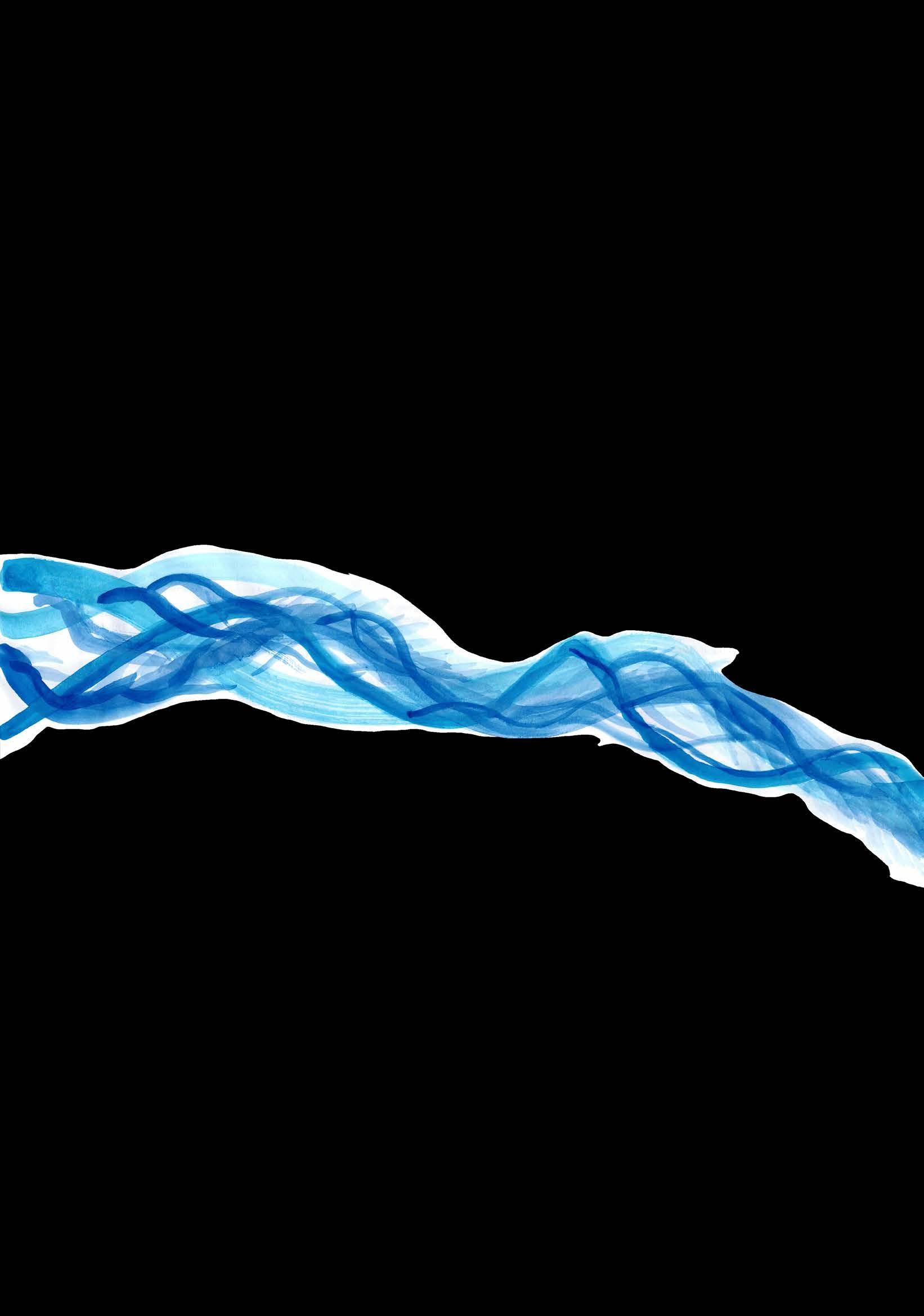

Mahtab Hassanzadeh is trying to find her home.
to learn of the general disdain our society has for refugees and migrants. Lying there within the tumultuous history of Australia — in particular our most recent history — is a certain paradoxical trait with regard to migrants and refugees, the Other
Now would be the time to have that harsh conversation, that perhaps in so-called Australia the issues run deeper than Tall Poppy Syndrome or the housing crisis. It seems like a conversation nobody is ready to have, and certainly not as a collective. In an allegedly post-race society, the issue is no longer xenophobia but a difficulty in contending with the multiplicity of cultures. This is a common issue in many post-colonial and Western nations across the world. On 5th October, the leader of the UK Conservative Party spoke to a press conference following the tragic Manchester Synagogue attack. Kemi Badenoch states that while Britain is a multiracial society, it “must never become a multicultural country where shared values dissolve.”
Why is it that crime is always the pallbearer for why we must eradicate diversity, but the immense goodness that diversity has brought is never reason enough to protect it? Any mention of this gruelling ethical dilemma shuns you to the confines of fringe society, making it known to all that you have been ungrateful and un-‘Australian’. What does it mean to be ‘Australian’? How does one go about patriotism when we know for certain that the history of this identity is historically one of violence and supremacy?
In light of the ‘March for Australia’ rallies that took place across the nation on 31st August, we are faced once again with the contentious notion of immigrants assimilating into the Australian culture and ‘Aussie’ way of life.
On a rudimentary level, these anti-immigration protests seem to argue that the only immigration they are against is the one that brings over people who commit crime, or those who — by some extraordinary miracle — receive endless handouts from the government. In 2025 alone, we have seen mass anti-migrant rallies in Australia and the UK, as well as deportations across the EU, the US, Pakistan, and Iran. For somebody like me, this kind of demonisation does more than just make me feel unwanted. It is a brutal reminder that I am much too far from home, in a land where my tongue twists and my senses are on alert.
When days are bleak, my mind often wonders to the most extraordinary of scenarios. What if I was, let’s say, deported one day? What would I do, where would I be sent to? I don’t have citizenship for Afghanistan, nor do I have any rights in Iran despite being born there. Where would I go if Australia no longer wanted me? Perhaps I should be grateful…
Afghanistan has had a long and tumultuous history, a wondrous land at the crossroads of empires. I haven’t been home in 20 years and I don’t know when I will have the chance to go back, even at least to visit. It is this reality of displacement which I want you, the reader, to try and understand. When I see anti-refugee sentiment anywhere, beyond the frustration is a pang of hurt concealed within the walls of my heart that harbours nothing but exile.
Let me step back and speak to you as just me, as Mahtab. Do you think people willingly choose to become displaced, to leave behind their Watan and become a minority in a land elsewhere? I speak to you not through the trauma of my homelands, but as somebody who sees and has lived its beauty and would like to go home. I would like to go back to a home whose skies are for birds and not warplanes, where fertile plains birth pomegranate wonders and not minefields of annihilation. I would like to go back to the home that untwists my tongue, where my allergies are at bay and my appetite is opened, the home that sings of ghazals and the unspoken rule of always having a copy of Hafez placed next to the Qur’an.
Wherever this home may be, I would like to return to it.
“We have not come at this door for pomp and position. Because of misfortune, we have sought refuge here”
The truth is, I have been un-Australian. I have never really called or considered myself Australian, and I have never quite understood how to perform as one. Frankly, all it took was one lesson in primary school covering what was done to the Indigenous peoples of this nation to solidify this belief of mine. I have since spent my life rebelling against the English language and Australian identity, and yet, I have completely failed in this mission. I believed in the custodianship of Aboriginal Australians, the Indigenous people of this nation, but still traded my own nativity for conformity. This is my vice.
雪梨的泳池沒有天花板。游著仰式遠看一面輕鬆悠哉,但雙腿雙臂其實 在水面下奮力抵抗,進水的耳朵細聽自己的呼吸。夜泳,看著烏漆媽黑 的天空,星星被泛光燈吸收。樹梢後隱約閃現的大學圖書館,突然讓我 改了觀。我如第一次在船上瞥見火焰的小美人魚,為新奇與未知所著 迷,但實際上是海市蜃樓,是我對自己許下的承諾。
當我第一次接觸國際關係中的自由主義時,聽起來比媒體賦予的複雜定 義要單純得多。最近出版《論自由主義》的學者卡斯·桑斯坦(Cass Sunstein)稱之為自由主義傳統的三位一體:對自由、多元化與法治承 諾。但論的是誰的自由?我們又是為何目的有所致力?
隨著我大學生涯的進展,自由主義的矛盾日益表明。
大學機構承諾培養批判性思考與自主性,但在此過程 中,我們卻無一例外的被塑造成自我優化、就業能力強 的畢業生,精通快捷電子郵件與撰寫策略性簡歷等語 言,更學起一套如何思考與融入社會的技巧。
在全球化學程中,我接觸到了馬蹄鐵理論。該理論認為,政治極端勢力 往往會以倒「U」形曲線向對方彎曲:極左翼和極右翼政府雖意識形態 立場極端,卻往往互為鏡像。在資本主義的框架內,左右最終會採取類

It started when I was eight and decided that speaking in my own language was no longer ‘cool’, and I believed people when they said two languages would confuse me. So I began bending my parents’ rules by speaking English at home and refusing to attend Saturday Farsi school. Initially I forgot just a few words, then eventually I couldn’t form complex sentences, and by the end, I lost the ability to read and write fluently. I have not only lost my home, but also the articulation of it. This is but a small fraction of what migrants and refugees live with, all a tender but worthy sacrifice for the chance of living in safety, away from a home that was made unsafe for reasons completely out of our hands.
So I apologise to the Australian patriot. I am sorry I could not mimic you; I am sorry I could not become you. If only you knew where and from who I came, if you knew even a fraction of the beauty I have seen, you wouldn’t want me to change either.
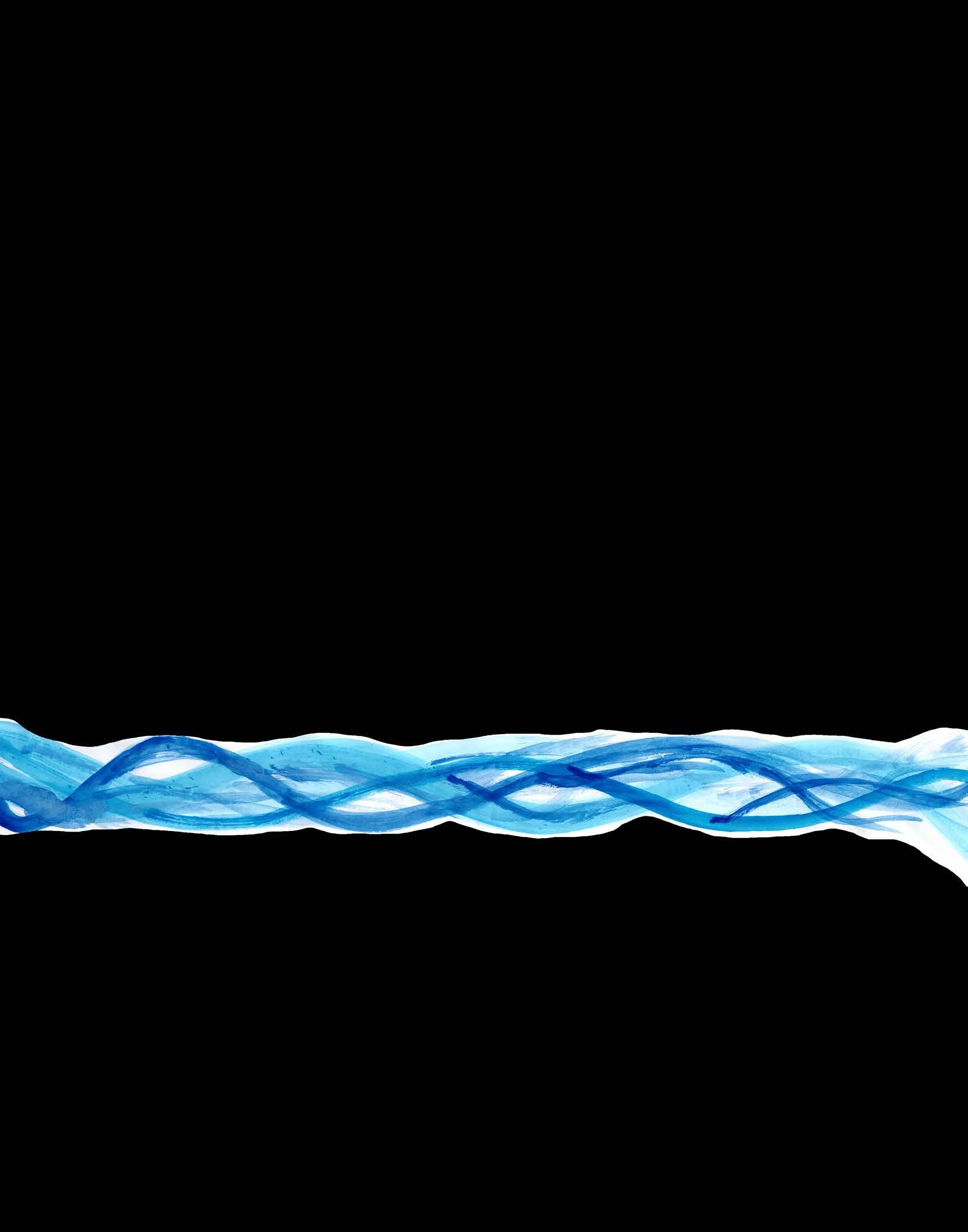
似的政策:私有化、放鬆管制、開放貿易。從這個層面來說,自由與控 制並非對立,而是合作者,以相反的划手馴服同一股水流。
這種推拉對我來說如身心都記得般,下意識的查覺我以前就感受到過。
小時候在台灣生病時,由於強制又中央集權的醫療體系,我可以隨時以 極低的醫藥費去看任何診所。當我翻開教科書時,教育部的標識映入眼 簾,日前教導服從的體系,也教了我們如何思考。在自由主義和非自由 主義理想之間長大的我,能夠體會到這樣一個悖論:台灣的經濟繁榮是 由威權主導的民主化進程有所引導,強大的國家控制為個人自由創造了 條件。在中國,和諧、孝道等價值觀是權力的道德支柱。常被認為沒有 價值觀的非自由主義政權,實際上卻充滿了對美好生活的憧憬。正如雪 梨大學教授亞歷山大·勒費弗爾(Alexandre Lefebvre)所寫,它們實 踐的『塑造靈魂』,打造公民的內心世界,不僅告訴他們如何生活,還 告訴他們為什麼。
自由社會以更微妙的型態這樣做。告訴我們要自由思考,卻在水道線上 畫個大大的紅箭頭。自由變成了一種教條,一套執行消化的價值觀。中 文的自由主義,字面上「自由」的「主義」,意味著一套標準,怎麼能 算是「自由」呢?
身為一名大學生,在自由主義定義的體系中摸索前行,就像在泳池裡完 全按照教練的指示去游泳一樣。但也許,自己學習融入水流,感受它強 力安靜阻力的過程中,你會發現一種別樣的自由。














In my bedroom, there’s a corkboard, with the front cover of an Honi edition from Week 4, Semester 1, 2023. Kudos to Shania O’Brien. That cover has been there since 2023, long before I imagined that I’d be an Honi editor, let alone the inaugural president of student media. That cover was one of my earliest impressions of the newspaper that would come to take over my entire identity, and the pages inside were exactly what I craved and hoped for when I first came to USyd: a newspaper that shares the voices of students, joyful and unashamed, giving them the freedom of a newspaper without the rigid impositions of a bureaucratic mainstream press.
The first inkling I got of Spill for Honi was in the 2024 gossip column, with a list of everyone who was in the ticket — of course, it’s very different now to how it was then. I freaked out instantly because I wasn’t on that list, and I had been hanging around all year like an awkward fruit hoping that a ticket would magically appear and pick me out. Finally, I found Spill for Honi in the form of Mehnaaz.
I have thrown myself into Honi as much as I physically could this year, to soak up the opportunities that the editorship presents and tackle as many challenges as possible. However, the editorship is not easy to access, and once you’re in it most of the hurdles only begin afterwards. Having been elected in my second year of an arts degree, I was able to offload most of my classes, and now I only do one per semester. Effectively, I work full-time as a
journalist and occasionally moonlight as a student. I feel a bit out of place in my class (singular) because I am so thoroughly detached from the ordinary student cycle of readings, assignments, group projects, and exams.
My editorial term has been hard, as most people’s terms are. Each week of this year has felt like a month in terms of how much is crammed into it; I’ve changed mentally, physically, socially, and so on. One of my friends whom I met a year ago said that the optimism had vanished from my eyes, which is an occupational hazard. But I have been extraordinarily fortunate in the breadth of opportunities that I’ve been able to do. I travelled for NatCon, EdCon, the Budget, and even the Farrago Centenary Gala.
The salient point of my term, however, has been the overall student media experience. Over the past year, I’ve been able to meet student journalists from all over the country, I’ve visited a statistically improbable number of media offices, and I have seen the incredible breadth of work that student journalists can and have accomplished.
Over the past year, I’ve been able to meet student journalists from all over the country, I’ve visited a statistically improbable number of media offices, and I have seen the incredible breadth of work that student journalists can and have accomplished.
The Student Journalism Conference (StuJoCon) is something you’ve probably
heard of if you pick up this paper with any regularity, given how often I’ve insisted on advertising it. That has been my baby for a long, long time. Despite everything I went through to make it happen, and all the work put into it by many other people, it is a wonderful feeling to know that I contributed to the legacy of student media. It isn’t the first student media conference that’s happened, and I have every hope it won’t be the last.
Additionally, I helped create the first national union of student media, the Student Media Association (SMA), which is crazy. It had never occurred to me, prior to the conference, that such a thing was possible. Being President and Honi editor simultaneously is something I would not recommend, so it’s handy that nobody else will ever have to do that. Here’s hoping that the SMA lasts for a long time.
Within Honi, though, one of my favourite things is the freedom you get. It’s ironic that something so all-consuming can also feel freeing, but that’s the thing about being an editor; nobody tells you what to do. Unlike mainstream media, we are allowed to publish overtly left-wing editorials without a supervising editor telling us that we can’t. We have the most incredible history of activism, pride, outspoken opinions, and content that verges on obscenity — or lands squarely in it, depending whom you ask. No mainstream masthead can point to a cover full of vaginas, and no masthead does scorching satire quite like “Queen Dead, Charles Next”. Honi is the proud champion of making people who’d love

“Excuse me, girls, are you locals?” My friend and I are surprised to be asked this, on the streets of Kyoto with Uniqlo shoulder bags and digital cameras in tow.“It’s just… I cannot find my hotel… Can you help me?” She has an accent that I can’t quite place. Nodding, I take the iPhone out of the woman’s hand. Maps is being as confusing as ever. We rotate the phone back and forth in an attempt to determine which way is north. Or, as the map writes, nord. That’s when it clicks! “Vous êtes Française?” Are you French? “Mais ouais! T’as une accente… mais tu parles le français?” But of course! You have an accent… but you speak it? “Pas beaucoup… mais j’essaye!” Not very well… but I try!
J’essaye. I try. To expand my mind, to open a window, and let the breeze of the world beyond my tongue slip through.
If you had the option of only listening to one type of music for the rest of your life, you wouldn’t take it, right? Nor would you commit yourself to living in one house, or reading one genre of book. So why would you limit yourself in a world of endless choice? That’s how I feel about languages.
They widen your mind and unlock new worlds that you never would’ve known.
I started learning Italian at five, Mandarin at six, French at eleven, and Spanish at eighteen. Each language has burned a mark on my life, and unleashed something new into my world.
Learning each language has given me new insights into my own language, the power of my words, and the privilege of speaking English.
It is an odd sensation in Australia, where most English speakers are perfectly content with their monolingualism. Most people, when setting sail on their Eurosummer adventures, learn a few key phrases.
Parlez-vous anglais? Dove si trova il Colosseo? ¿Puedo usar el baño, por favor? Do you speak English? Where is the Colosseum? Can I please use the bathroom?
And they get away with it.
Native English speakers have a tendency to act as if their words are assumed knowledge wherever they go. They talk and act like they would in their own
Imogen Sabey says goodbye.
to censor us extremely pissed off. Shout out to our undying enemy NewsCorp for proving time and again that you really care about us!
That freedom is something that I’ll never have again, no matter what media I go into. The flip side of that is that I’ll never feel the same pressure to do quite as much. To have so many valuable, high-pressure opportunities thrown at me every day is to be unavoidably desensitised to the privileges that I have as an editor, and I look forward to taking the time to enjoy my work, as much as I will miss my editorial liberty.
This year has given me a taste of power, stress, and national infamy. It has changed me for the better, and some might argue for the worse, as I’ve now been enlightened about bemusing cultural developments such as Benson Boone and Matty Healy. I think the best outcome of my term is that having a national network of close-knit publications who actually know each other and work with each other is no longer a far-off dream; it is now a reality.
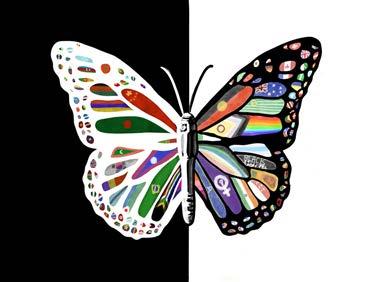
Fagan continue d’apprendre.
country, and are surprised or burdened when someone doesn’t understand them.
While English is treated as a global prerequisite to interaction, many have to battle to preserve their history, culture, and language.
Take, for example, Indigenous languages in Australia. With over 250 individual languages and 800 dialects, erasure from public life and education systems has undermined the capacity for intergenerational transmission.
I must acknowledge my privilege to indulge in language, that I can travel and converse and immerse myself in a culture. Some languages are easier to learn because of how they are built, and some are harder to learn because they have been stripped away by oppression.
There is an indescribable freedom in being able to communicate with someone in their own language,making them feel valued and appreciated. Seeing the soft smile of a Nonna as she compliments your accent, or the nonchalance of a Parisian barista when they finally start responding to you in French.
You can experience the greats of storytelling and art in their native pen.
L’homme est né libre, et partout il est dans les fers. Man is born free, and everywhere he is in chains.
But what really feels like flying, is when they all meet as one language. Your language. Unique, unspeakable, indescribable. A personal, imperfect method of communication with mismatched words and jumbled tenses.
La lingua di Siena. La langue de moi. Seulement la mienne. Siena’s language. My language. All mine.
My language exists for its imperfections. It exists for every time my Italian teacher told me that she could hear my French accent. For every time I can’t remember the English for asciugamani (towels), or the Italian for après-midi, or the French pronunciation of bouteille (bottle, bottiglia, whatever).Language is learning. It is connection. It is love. Language is a key to hearts, minds, cultures and stories.
It is a key to the world you don’t yet know. To the world that you will only find if you dare explore. Language is endless, imperfect, messy, and personal. It’s yours. It’s mine. It’s everyone’s. You are Schrödinger’s linguist. Dare to escape the box.














Mehar Chugh trades her dictionary for TikTok.
“Slay girl, mother is mothering”, my friend said when I asked if I looked good in my new haircut. A few hours later, another friend called before her exam. When I asked if she felt prepared, she sighed: “bro, I’m cooked.” After the exam, her text buzzed my phone again: “brooo I’m cooking with my grades — things actually went well!”
That night, I wound down with a rewatch of My Fair Lady. I couldn’t help but think that perhaps our generation was a version of Eliza Doolittle, collectively stumbling from polished articulation to playful, chaotic slang. Language is not static; it is a living system that bends and morphs with society. The shift from “indeed, I concur” to “facts, no cap” is not linguistic decay, but the natural consequence of cultural, technological, and sociolinguistic change.
The internet has flattened linguistic hierarchies in a way that older generations couldn’t have imagined.
Where once eloquence was policed by universities, churches, and parliaments, today the gatekeepers of culture are TikTok algorithms and Instagram trends. Online platforms, as linguist David Crystal (2006) argues, have legitimised everyday ways
of speaking, bringing these vernaculars into the mainstream. What once made someone sound ‘uneducated’ now makes them relatable, authentic, or even viral. A casual phrase on social media can carry as much cultural weight as a parliamentary speech — not because it’s ‘better’ but because it connects. Yet as linguist and critical discourse analyst Norman Fairclough argues, the rise of mass literacy, media, and now social media, has democratised language.
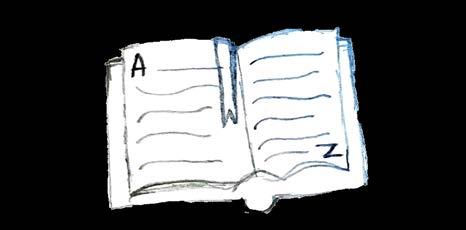
Connection is the currency of online. Digital platforms have transformed communication itself. Texts, memes, GIFs, and emojis demand brevity and speed. On TikTok or X, language evolves overnight. A phrase like “I’m cooked” can move from local slang to global expression in days. It’s not about being fancy or polished anymore; it’s about being funny, relatable, and making people feel like they get you. That’s why something like “mother is mothering” hits differently — it’s playful, over-the-top, and social. It’s performative in a way that formal speech just can’t compete with, because online the point isn’t precision, but shared recognition.
But not all slang spreads equally.
A huge amount of what circulates online is rooted in African American Vernacular English (AAVE). Words like “fam,” “slay,” “lit,” and “period” began in Black communities, tied to culture, identity, and resistance. Yet, when mainstream (often white) internet cultures adopt them, the words lose their context, being consumed as popular slang. All the while, stereotypes about Black speech sounding ‘improper’ persist. Linguists and cultural critics have long noted this double standard: AAVE is mocked when spoken by Black communities but celebrated as trendy when repackaged online. Recognising these roots matters — not only to give credit where it’s due, but to understand how power and inequality travel through language.
Of course, meanings naturally shift over time. Take ‘bet’, for instance. Once tied only to gambling, ‘bet’ now doubles as shorthand for agreement:
“You coming tonight?”
“Bet.”
Slang stretches meanings quickly, and once frequent enough, these new meanings



stabilise. What might feel like a loss of vocabulary is actually a transformation.
It’s tempting to mourn the decline of formal expression, to believe we’re trading Shakespeare for emojis, forgetting that Shakespeare’s genius lay in his reinvention of language, proof that every era reshapes language to fit its voice. But language hasn’t shrunk, it has multiplied. Digital life demands efficiency and immediacy. Far from decaying, language adapts to our communicative needs. What once required a paragraph can now be conveyed with a single word, a meme, or even a sigh typed as “bruh.” Slang and playful phrasing are the contemporary tools of connection, not a replacement for language’s depth.
Language’s (de)evolution mirrors us. We no longer live in drawing rooms or pulpits; we live online, in constant dialogue across cultures.
Our words reflect that. From “holier than thou” to “I’m cooked,” every phrase carries the imprint of its time. The question is not whether we are losing words, but whether we are paying enough attention to the ones we use now. Today’s slang may well be tomorrow’s poetry.
Sahiba Tanushree reflects on beauty.
Before I learned what beauty was, I learned what it wasn’t. It wasn’t flat noses or coarse hair. It wasn’t girls who looked like their fathers. It wasn’t me. Growing up, I have often been reminded of how I look before I’ve had the chance to introduce myself on my own terms.
Everyone in my family has a story about the day I was born. Some talk about the rain that befell my well-wishers, others debate which political party’s mishap was on the news that day, but the one that stuck with me most is about my nose. When I was born and presented for the first time in my mother’s arms, someone in my family cried, “Oh my! Why did Swapan’s daughter get such a flat nose?”
That conversation is brought up even after all these years. Less for what was said about me, and more for what my uncle said next: “She can breathe fine, right? That’s good enough.”
I didn’t know then that this would be the first of many innocuous comments that would stick with me. I had been born into a conversation about what I wasn’t. Maybe
that’s why, when I touch the bridge of my nose after all these years, I can still feel the ghosts of hands hovering over it to check for improvements. These aren’t hands that mean harm. They’re simply hands of habit that are programmed to repeat what was once done to them.
In the last years of my life in Dhaka, I adopted a ginger Arabian Mau cat. She was well past her prime when she came into my life, which meant earning her trust was a long, stubborn war against survival instincts forged over a lifetime. Don’t get me wrong, I did win some battles, like when she finally crawled onto my lap one fateful evening and never stayed too far since. Other battles I let her win, like her undying contempt for cat collars. She would sooner vanish than be seen wearing any such contraption that restricts her breathing or movement in any capacity. I let her win this one after I learned from her previous owners that a collar too small once nearly strangled her to death and birthed her aversion to this accessory.
Sometimes I feel like I, too, am wearing one such collar, one that everyone notices first, that everyone sees except for me.
When a brown aunty says,

(“A little dusky, but she looks so sweet!”); when an uncle at a dawaat needlessly reassures my mother,

(“Tanushree may be dark, but she has a charming face!”); I feel the grip of the collar tighten around my neck a little more with every but that follows my complexion and their compliment.
On many occasions, I have contested these compliments, but I have been told they meant no harm. I’ve been told to focus on the latter parts of the sentences.But how could I selectively leave out something that is an inseparable part of me, that I see in myself first when I look in the mirror? The shadow around my lips, the frizz in my hair, my nose, my muted complexion. I’m not sure I need to apologise for existing as such, nor brighten my skin or train my hair into submission to appease some unrealistic standard of a Disney-esque, South Asian beauty — created by my own people, against my own people.
I would rather be called ugly than sit with
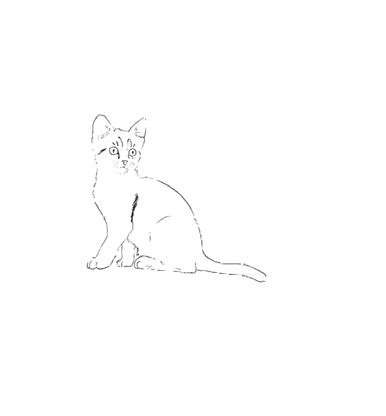
those who call me “‘pretty for a girl of my colour”’. If my hyperpigmented skin, my body hair, and the features I’ve inherited find no space in their idea of beauty, then I have no wish to belong among those who make no room for all of me, even if they are my own.
What a shame that, 78 years after the last coloniser left my land, my people still borrow his gaze to behold me.
Yet the same land that measures me against its mirror is the one that bows before Kali — the goddess whose skin you paint black and call holy, whose hair you weave from jute to fall wild and unbound over her naked body, lest you blasphemously tame her with modesty. I refuse to belong to a culture that worships a dark-skinned goddess yet mourns its dark-skinned daughters.
At dawaats, when guests told me that I looked like my father, it never saddened me that I was dark. It made me glad to resemble my best friend. The worship of fairness may be our oldest heirloom, but it is one I refuse to inherit.

I first came across the state of Biafra when I read Half of a Yellow Sun by Chimananda Ngozi Adichie. I had never heard of Biafra before. It was a foreign concept, a foreign place. A country that I didn’t even know existed had a history so complex and intricate that it displaced millions and left scars that echo today in modern Nigeria. And yet, Biafra has been forgotten. It has been lost to the history books of African post-colonialism. This has me wondering: how many forgotten states are there? And how does a state even become forgotten?
A forgotten state is not just a country that failed or collapsed.
It is not a place like the Soviet Union, which is still highly relevant and spoken of in today’s modern discourse. Instead, a forgotten state is an unrecognised, erased, or deliberately sidelined country that has been lost to distant echoes and silenced memories.
The first example I thought of was Biafra (1967–1970), but there are other countries too. Katanga (1960–1963) seceded from the Democratic Republic of the Congo, before being reincorporated; East Turkestan Republic declared sovereignty twice in the 1930s and 1940s, and was then erased by the Republic of China, and later the People’s Republic of China; Chechnya, in the 1990s, declared independence from Russia, and after war, was reintegrated. Alongside these historical examples, there are many contemporary states that are also unrecognised or only partially recognised. There are the obvious examples such as Palestine and Taiwan, but I would not see these states as ‘forgotten’, since they are highly prevalent in today’s modern news. Rather, the forgotten states of modernity include places like Somaliland, which is stable yet ignored; Western Sahara, a UN non-self-governing territory, occupied by Morocco; and Tibet, a government-in-exile, erased from official world maps.
These forgotten states fall into the black holes of history; their legacies do not last through the social discourse due to the lack of recognition from the global north. The Montevideo Convention of 1933 sets out four criteria for statehood: a permanent population, a defined territory, an effective government, and the capacity to enter into relations with other states. Without all four of these factors, states have a difficult time showing legitimacy. However, even if they were to have all four of these factors, it ultimately comes down to powerful hegemonies, such as the United States and China, to determine whether or not they would like to recognise said state.
An example of this is the contrast between why Kosovo gets recognition in the UN but a country like Somaliland does not. Kosovo, a small country in Eastern Europe, once a part of Yugoslavia, seceded from Serbia in 2008. Kosovo, a state backed by the United States and recognised by the EU, is considered to be a state under international law. Whereas, Somaliland, also a state which declared independence, is not recognised by the international community. Despite having their own functioning government, a national flag, its own currency, a police force and even a military, it is not recognised. The UN and African Union warn that recognising Somaliland could trigger a domino effect of
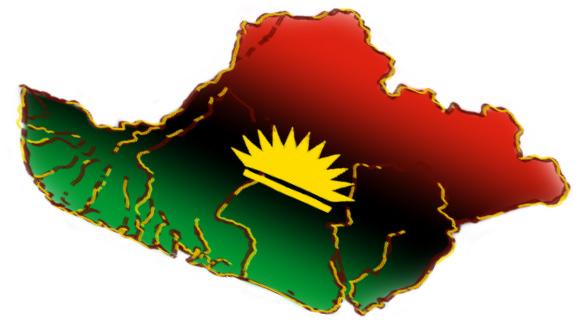
other separatist movements across Africa. Not only is this extremely neo-colonialist, it exposes the hypocrisy at the heart of international law: recognition is less about meeting the Montevideo criteria and more about whether a state’s existence is convenient to global powers. Somaliland has done everything a state is supposed to do — build institutions, govern its people, and maintain stability — yet it is punished because its recognition might unsettle borders drawn by colonial rulers centuries before.
Declaring legitimacy is not neutral, it is deeply intertwined with the global hierarchies of power. Recognition is seen as a geopolitical bargaining chip. Great powers use recognition strategically. China, for example, aggressively blocks recognition of Tibet. They insist that in acknowledging an independent Tibet, it would undermine their own sovereignty and affect their regional dominance. China wants to keep asserting their power within East Asia, and by recognising a region such as Tibet, it would affect their power, despite the region being lowly populated. Russia, on the other hand, selectively recognises small breakaway nations such as Abkhazia, South Ossetia, and more recently places like Donetsk and Luhansk, as tools to weaken neighbouring states. For example, Abkhazia is a breakaway state from Georgia and, following the 2008 Russian invasion of Georgia, Russia recognised the independence of Abkhazia. By declaring its legitimacy, and asserting that it is its own sovereign nation, Russia aims to weaken Georgia,a former Soviet Union state. In each case, sovereignty is not an impartial standard but a weapon of geopolitics.
It is granted or withheld depending on the interests of the hegemonic power whose control is at stake.
The consequences of nation erasure are felt mostly by the citizens. Being citizens of an unrecognised and forgotten country creates problems that are inescapable. For example, Western Sahara remains unrecognised. As a result, Sahrawis have spent decades in refugee camps in Algeria, where education, work, and mobility are minimal. Those in Moroccan-controlled areas often face discrimination and oppression, with little recourse to international protections. Their ‘unrecognised’ status allows mistreatment to persist. History records also show the same situation happening in Biafra. The lack of recognition of Biafra from the international community led to a heightened brutal civil war, famine, and the death of millions. While this happened, the world simply turned away, unwilling to legitimise the seceded state. Once defeated, Biafra’s existence was erased from mainstream history, and remembered only through personal testimony and novel literature. Being unrecognised does not simply strip a population
of sovereignty — it strips them of protection, visibility, and memory. Forgotten states leave behind not only contested borders but generations of civilians forced to endure the lasting consequences of being forgotten.
The question must be asked of whether the
20th-century model of the nation-state is still fit for purpose or whether it was ever truly universal.
The Montevideo Convention, drafted over 90 years ago in the Americas and modelled on European traditions of statehood, continues to be held up as the standard. But this framework is deeply Eurocentric. It reflects an undeniable Western vision of sovereignty, rooted in fixed borders and centralised authority, a model exported during colonialism and imposed on diverse societies that often organised themselves through fluid boundaries and kinship networks. There is an undeniable tension here: between people’s right to self-determination and an international system whose primary obsession is preserving the ‘stability’ of borders drawn by European states. As such, recognition is less about whether a nation can govern itself and more about whether it conforms to an inherited European style. If recognition is ultimately political, filtered through these Eurocentric norms and enforced by global powers, can freedom ever truly rest in the hands of the civilians?
So, when I look at a forgotten state, such as Biafra, I can’t help but question how something as historically intricate as a nation can be reduced to only a footnote in the encyclopaedias. How a group of people can fight for survival, raise a flag, and yet still be erased because they were not recognised. This reveals the overarching, uncomfortable truth: the world map is not a neutral record of geographical reality, but a political document. Borders shift, and nations appear and disappear, memories fade, and not because people cease to exist, but because recognition is withheld. Forgotten states expose the fragility of sovereignty itself, highlighting how legitimacy is less about self-determination and more about power. If recognition is what makes a country real, then perhaps the world map is less a reflection of reality than a ledger of power. Entire nations can disappear at the stroke of a hegemony’s pen.

Mehnaaz Hossain and Imogen Sabey interview.
As we approach the two-year mark of continual bombing and genocidal atrocities committed by Israel in Gaza, Randa Abdel-Fattah’s book Discipline could not be a more important read. Discipline is set in May 2021, during the last bombardment of Gaza. The book focuses on two particularly repressive areas of Australian advocacy: media and academia. The two main characters, Hannah (a journalist) and Jamal (an academic) constantly face the pressures of conforming to a rigid and insidiously Zionist work environment, where their criticisms are repressed under the guise of corporate reputations and appearing “balanced”. In a public statement about the book, Abdel-Fattah asked “How is it possible that as we watch genocide and industrialised slaughter livestreamed from our phones, two of the most important aspects of our social lives, media and universities, have been the source of the most repression, gaslighting, and discipline?” Honi sat down with Abdel-Fattah to talk Discipline.
Imogen Sabey: Hi Randa! Thank you for joining us today. You’ve been writing Discipline since 2021. How did the process of writing change before and after October 2023?
Randa Abdel-Fattah: When I started writing the book, it was at a time when I was a little anxious about whether there would be an audience and an appetite for a story about the repression of Palestinian voices, the idea of freedom of speech and protest. Palestine had not gone mainstream, people who were concerned about the policing and surveillance of racialized communities, especially in Western Sydney, were very much still on the fringes. It was very much considered a radical position.
That was the anxiety around whether or not I would get published, whether or not there was a story there that people would realise needed to be told and had some urgent things to say. After October 2023, I was a little creatively paralysed. I felt that what I was writing could not catch up with the reality of what was happening in real time. I also felt very strongly that my energy and time needed to be diverted to the urgency of trying to stop the genocide.
But as things built up and escalated in terms of the repression of our voices within institutional spaces, I felt very strongly that I would narrow down the focus. So the book takes place only over the course of a few weeks, the time of Ramadan and Eid and the bombardment of Gaza in 2021, and I would really try to address those issues in a way that
foreshadowed the situation that we’re in now.
MH: I always feel gaslit, reading certain publications and seeing them suddenly have a change of heart, because it seems to portray as though they’ve “always been against this”. What do you think the role of non-mainstream independent media is when it comes to uncovering mainstream media or Zionist narratives?
RAF: I think that independent media has shown itself to be the most important way to counteract the propaganda of institutional corporate media. We absolutely need to build on independent media, because the spaces have shrunk so badly for us in mainstream spaces.
Once upon a time, we lamented that we weren’t included. We pushed back. Now we understand the masks are off. It’s clear that they are collaborating with corporate, neoliberal, pro-war machinery. They’re part of the militaryindustrial complex for example, the press gallery cancelling Chris Hedges, and the press gallery having as one of its major sponsors Raytheon, one of the big military contractors. They are so deeply in bed with that industry that it is naive to think that they’re going to change course until it becomes unprofitable for them to support genocide.
That’s the role of independent media: to keep exposing, mobilising, building, and organising the masses. And we need to keep empowering and supporting independent media to do that job of holding not only Israel to account, but mainstream media to account.
IS: When you were researching this book and speaking to journalists or academics, how did it make you feel to hear their stories?
RAF: I guess it was a sense of validation; it was cathartic, because so many people were telling me almost identical stories. It also gave me a really wide safety net. An editor or an academic might say “You’re talking about me in a negative light in this book”, and I can actually say “What is it about that horrible character that makes you think it’s you? That’s more an indictment on you.”
But also, the fact is that there are so many people like this in both sides, both industries, that what I’m actually writing here is about a systemic problem, not a problem of individuals, and the fact that people have said to me, “Oh, that person reminds me of this person at Sydney Uni, that person reminds me of this person
at Deakin Uni.” We’re not talking about caricatures here, but a really systemic problem.
MH: It was so jarring, in a good way, to read the part about Jamal and the emails, because we have literally been getting anonymous submissions from people disciplined for sending facultywide emails about Palestine. It was just so frustrating to read it in fiction; usually when you pick up a fiction book you’re like, “this is a story”, you can close it and it’s over. It’s in the book. But here it’s not; it’s everywhere.
RAF: It’s a counter. It’s a counter to the absolute racial gaslighting that we all experience. So if I can do anything with this book, it is to at least put on the public record that everything that we’re going through is happening, and here is a space where we can talk about it. Because if you go and publish that email that you received at university on X [Twitter], you could be disciplined, you could lose your position, and it has happened. So this is a way, I think, that people who still don’t believe that it’s this bad can actually see for themselves that, no, this is a problem that we’re all experiencing.
IS: I saw in one of your previous interviews that you said one of the hardest things about this genocide was that it was being live streamed. Reading this book and knowing that all of that was happening everywhere in Australia, it felt a little bit like watching the genocide and knowing that it was happening all the time. Whenever you’re doing anything in your daily life, Palestine is still being bombed.
RAF: I call it the green screen. All of us are sitting and the green screen behind us is the genocide, and it’s just there all the time, no matter what you’re doing, eating, drinking, playing with my kids, you could be out with your friends at a cafe. That’s happening in the green screen of our lives, of every single person, whether you look behind you and check it out or not. And people who aren’t [looking] will have to reckon with that one day, that they walked around with that in the background of their lives.
I’m so happy and proud to say that people like you and me, we refuse to hold our back to that. We’re looking it in the eye; at the very least, that’s what we owe it.
MH: In terms of moving forward and talking about things like being Muslim, being pro-Palestine in Australia, do you feel like it has become more acceptable to shy away from wanting to be included in the mainstream and accept that we have an alternate narrative, of the genocide, or what they call the ‘conflict’?
RAF: I think the way that we’ve recalibrated what it means to be on this land has really changed in a good way, a good shift. It comes from increasing recognition, and an increasing racial literacy, we understand that we’re settlers on stolen land and that reconfigures our identity. So it’s no longer about being

seduced by this idea of the multicultural liberal state, the so-called ‘most successful multicultural society in the world’. The brutal and violent colonial foundations and ongoing, slow genocide in this country, once you arrive at your identity through that understanding, it means you no longer need to be proximate to the liberal state in order to feel accepted. You can choose the terms on which you live in this country, in solidarity with Indigenous people as part of a transnational solidarity global movement. I think that’s really empowering.
IS: How has it made you feel to see the activism that is going on, in independent media and by students and in other areas of Australia? Has that had any counteracting effect to the depression and overwhelming anxiety of watching the genocide?
RAF: Yeah, absolutely. Because, like you said, it is overwhelming, and there are moments of complete despair that, despite this mass global movement, the genocide has not only not abated, but escalated. It seems like nothing can stop that death machine. But I can’t afford to think about what we’re achieving in a short timeframe. I’m not on the front line, so I don’t expect Palestinians, who are losing their children and their mothers and brothers and sisters, to think that way.
Here, out in the West, this is my role, to keep pushing for change, to keep building that mass movement. And of course I am seeing Palestine mainstreamed now, after years of fighting with colleagues, with people in all different spheres, just to have some recognition of what is happening.
To see the mainstreaming of our radical liberation lexicon — words like settler colonialism, apartheid, genocide — to see these words now part of the mainstream, that’s a huge achievement that we should not underestimate, because it’s taken so long for us to be able to narrate our movement and to speak on our own terms. We’re not completely there yet, of course, but every day, this movement grows and builds. So yeah, I’m buoyed by that.
IS: Do you think it would be possible to see a free Palestine within our lifetimes?
RAF: Within yours, for sure, and within my children’s. I don’t even think about it, as a Muslim, as well as part of my own spiritual practice, I only think about planting the seeds. I don’t think about what’s going to happen. Other people will water it, other people will cultivate it. But my role, and all of our roles are, to keep planting those seeds, doing what we can to grow that garden.
I might not see it in my lifetime, but I truly believe that the Zionist state is on its last legs. It’s in its dying breaths, which is why it’s so violent, because it’s in a state of complete panic that it’s lost the consensus of the world. I definitely think that your generation will see it and continue with this movement.















































starved civilians in Gaza, aid workers and activists captured on the Sumud Flotilla, atrocities in the Congo, riots, and police brutality in South-East Asia (and around the world), it is more important than ever to linger on and recognise such violence. I’ve been wondering whether we have lost this skill.
Childhood reminiscence is a ritual for me. See me periodically look up from my phone and think of how my sister and I constructed worlds in our bedrooms. There was a slowness in my childhood that is no longer present. Of course, as a kid, my scope of world issues was slimmed down to the streets I walked and the steeping Dymocks prices. It is hard to compare forgetfulness to naivety, but I mourn the way it was.
I have been thinking a lot about dwelling on things. Reading about it. Tarjei Vesaas’s The Ice Palace, first published in 1963, is like a slow and guttural scream. It is a story about mirroring and mourning, about children entombed in silence and memory, and of uncommunicable grief. It depicts the mysterious disappearance of a young girl, Unn, in a frozen waterfall, yet it inherently probes “the mystery of fusion, of human connection”, as Arnold Weinstein suggests. Though Unn’s eerie death is perhaps symbolic of an adult neglect, the root of the novel lies in her friend Siss’s process of grief and her loss of her own identity. I read this book in July, amid the throes of my holiday ennui, and it dug sharp splinters into my distractible mind. A child slowly and brutally lingering on death, a waterfall entrapping the dead in frozen sheets. She mourns while her community starts to forget.
Alan Lau talks to his dad.
My father loves to drink, always keeping a glass in hand at every meal. After a few drinks, he starts bragging about his glorious past. He rarely talks about his childhood, because life was tough back then, and not at all glorious.
When you were little, you rarely had good food. Your grandfather was really strict; if I tried to sneak a chicken from the commune to slaughter for food, your grandfather would scold me, lecturing me about public property.
I still remember during the Cultural Revolution, when I went to Guangzhou, I saw many corpses hanging from that big banyan tree. So, my son, politics is very dark; you must avoid it.
Later on, I watched the lives of people in Hong Kong on a TV at the village entrance. Wow! Those women wore lipstick and pretty high heels, and I thought, could it be that Hong Kong is indeed paved with gold? So, I decided that once I turned 18, I’d sneak into Hong Kong!
However, when my father arrived in Hong Kong as an 18-year-old, he couldn’t find any legitimate job, so he turned to the underworld. He started from selling at street stalls to running an illegal pig slaughterhouse and even got involved in triads, smuggling, fighting, and fake marriages.
Mirrors are woven throughout the novel: “I don’t know: gleams and radiance, gleaming from you to me, from me to you, and from me to you alone— into the mirror and out again, and never an answer about what this is, never an explanation”. But this reflective surface fractures, and the girls’ connection is severed by the hard line of death.
My phone acts as a mirror, beyond its basic camera function. It flashes videos and photos of people the same age as me, with the same desires, with the same humanity. Suffering children and families. Though we are circumstantially so different, a connection emanates from my screen and ‘gleams’ from me to them. And then it is severed.
Perhaps this is a fault of my own algorithm, but I rarely see news articles or videos mourning the martyred or the injured. In Western news outlets, there is a greater focus on the diplomatic and top-down aspect of the genocide in Palestine rather than on the extreme loss of humanity and dignity. We are conditioned to move on and move fast. It is a desensitisation to violence, a dismissal through the phone. I wonder what would happen if we dwelled for longer and didn’t let each video or story funnel through us like water, without actually catching or collecting in our minds, not making a genuine impression.
The locked rooms and frozen waterfalls of The Ice Palace resound in our hasty and inattentive world. I am not saying we must hyperfixate on trauma and violence, but we need to fully reckon with such destruction to humanity and then be incentivised to action, emotionally.
“They’re not thinking about Unn anymore”, Siss says to her mother in the weeks after Unn’s disappearance. How quickly do we forget?
Art
by
Purny Ahmed
At that time, I could make ten thousand a day, so I thought about chilling at the Peak. Little did I know, upon entering, I saw a sign of ‘No entry for Chinese and dogs,’ so I said, ‘No wonder Westerners always discriminate against us yellow-skinned people.’
I still remember when politician Anson Chan Fang On-sang came to “clean up” my pig slaughterhouse because my partner put too many antibiotics, causing a big mess, and people were going crazy. Luckily, some people helped us clean it; otherwise, we could have ended up in trouble.
Not long after, my father started a family and retired from that life. He opened a pork shop and invested in some properties in mainland China. Watching the Chinese mainland economy take off, he became quite patriotic.
Your grandfather is from the Communist Party, your father from the Communist Youth League; the largest party in the world is the Communist Party, how can you oppose it!
China has 1.4 billion people now; sooner or later, it will dominate the whole world!
Even now, my father is constantly thinking about making more and more money because he believes that’s how he can buy political security.
Son, if you get involved in other people’s business, it’ll bring no rewards; just focus on your studies and aim for fame. Only by having a diploma can you find a good job that earns money.
But society has changed now; diplomas aren’t as valuable anymore, Father.
我老竇好鍾意飲酒,餐餐都要黐住個酒杯,飲飲下就開始 吹佢嗰啲威水史啦。
佢好少講佢細個嗰陣時嘅嘢,可能係 因為嗰陣時嘅生活係好艱難,一啲都唔威。
「你老竇細個嗰陣時成日都冇啖好食。你阿爺做官呢就好 鬼直嘅,我去試吓去偷偷地擸隻公社嘅雞嚟斬嚟食都要俾 你阿爺鬧,話呢啲公家嘅嘢嚟㗎。」
「最記得嗰時文化大革命,去到廣州啊,見到好多死屍吊 住喺嗰棵大榕樹嗰度。所以啊,阿仔,政治好黑暗㗎,千 祈唔好掂。」
「後尾呢我喺村口部電視機度睇到香港嗰啲人嘅生活。大 佬呀!嗰啲女人啊搽晒唇膏,着住對靚靚嘅高踭鞋,就心 諗唔通香港真係遍地黃金,我咁就立志一到18歲就去偷渡 啦!」
只不過嚟到香港一個啱18嘅靚仔搵唔到啲咩正行正業去 做,就去撈偏嘅。由走鬼檔做到去開非法豬場,亦都入過 黑社會,走私、劈友同假結婚都掂過。

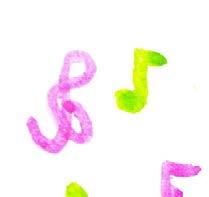

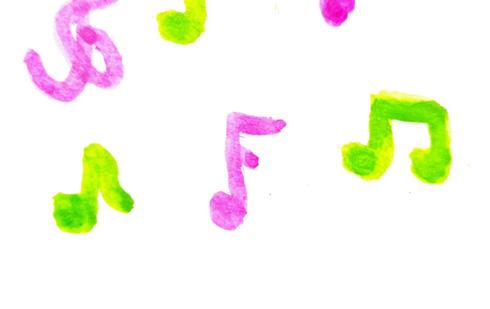








In a shocking turn of events, it’s finally hitting the public conscience that music streaming services might just be too unethical to keep supporting as they are. Rumblings of their pay inequity for artists and questionable investments have grown from an undercurrent to a dominant public narrative, and at the top of the immoral pyramid of badness sits the crown jewel: Spotify.
Beyond its cultural gamification and existential warping of genre to cater to a music market it symbiotically reshaped towards itself, Spotify is also notorious for its rampant and inescapable data collection. Spotify advertises itself as knowing you better than you know yourself, a myth that third-party ad partners tautologically buy into, and the belief that inferences garnered through an individual’s use of the app (including playlist curation, time spent on artist profiles, and milliseconds listening to a song) can provide deep insight into who they are as a person. The company’s desire to know this is to better sell themselves and their data to advertisers, but is cleverly masked as Spotify caring about the listening ‘experience’. Journalist Liz Pelly also attributes the company’s relatively unregulated hyper-specific data storage as key to the wider rise in AI integration.
Streaming surveillance integrates AI practices into everyday life, rendering them commonplace, so that by the time more egregious applications of AI arrive, users are desensitised.
Liz Pelly, Mood Machine, p. 152
The resistance against Spotify has grown this year, and the turning point for the streamer has been a series of sequential revelations of inexcusable behaviour. These include the millions of dollars Spotify’s owner, Daniel Ek, has invested into German AI defence tech, which happen to be used by the Israeli military; the clear increase in AI algorithmic features and AI-generated music; the introduction of a new DM system which made visible Spotify’s use of tracking URLs in share links, potentially jeopardising the identity of people who use their account anonymously; recently demone tising any tracks which have less than 1000 streams; and as of this week, partnering with ChatGPT to help users create playlists “conversationally”, a feature which requires you to suspend your belief that their typical mix features aren’t also AI.
Artists, predominantly indie artists, are starting to leave Spotify, not just for ethical issues, but due to fundamental concerns that Spotify rubbing shoulders with AI will destroy the music production industry as we know it. However, even just looking at their investments in Israel, almost all of the major viable streaming alternatives have issues too: Apple matches employee donations to organisations such as Friends of the IDF and houses key research and development teams in Israel. YouTube Music is owned by Google, who, alongside Amazon, is a key pressure target of the Boycott, Divest, Sanction movement. Google and Amazon also provide tech to, and actively profit from, the Israeli military; Tidal, which is known for having the highest per stream pay out of all the streaming services, is exempt from explicit Israeli military ties. However, it has also become notorious for its mass layoffs, use of AI, and general fear that it’s not a viable long-term platform.



Audrey Hawkins & Will Winter stream their hearts out.
It’s a bleak picture.
Fundamentally, the music streaming model has become the way to engage with music. In 2024, 69 per cent of Australians primarily used streaming services for music listening and discovery. Some would argue that streaming will always be an inherently unethical model of music engagement within a capitalist system. As long as these companies have a profit incentive, they will arguably never be willing to pay artists fairly. They fail to provide liveable wages from the consumption of music and forever trap artists in the grind of merch selling and the gig economy. Artists may love live performance and merch creation, but these outlets should not be the only way for them to make money from their passions and careers.
The popularisation of online services like Bandcamp, a digital music store that provides an average 82 per cent of profits directly to artists, or Quboz, a promising streaming/store hybrid which suffers from its still burgeoning library and relatively basic interface and features beyond straight music listening, signal a viable future for music consumption. But doesn’t the concept of buying all the music you listen to just sound unreasonable in our current context?
Tangible, landlocked media grounds the listening experience into place and time; it’s not there while you’re walking between classes, but it exists through a CD shoved into a friend’s marketplace car stereo as you’re instructed to skip track six. These formats demand presence, a curated symbol of status and self. In contrast, streaming is a temporary lease, not a possession, on music that can be taken away by service cost increases or track removal.
Alternative forms of listening require effort. Locationally locked media, from lugging around CDs for a disc player, to the modest labour of loading up a portable MP3, need intention, which is precisely what most casual listeners now resist. While these measures threaten to bar experiences of curation and boundless music discovery, avenues such as burning mixtapes, cratedigging, and tuning into radio stations have existed long before today’s on-demand ecosystem. Curation and discovery have always been possible without platforms like Spotify, but physical alternatives outside of the grey-area of downloading or burning remain financially unviable for most.
If streaming will never be ethical alone, perhaps there’s a middle ground to be struck.
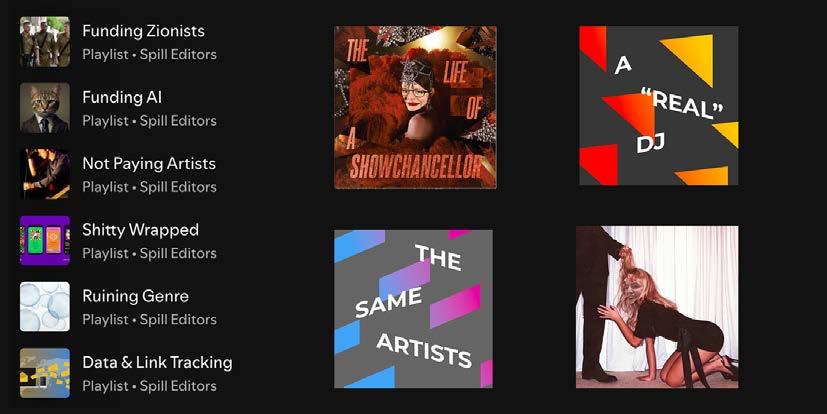



「嗰陣時一日搵一萬蚊,所以諗住去山頂度蒲吓。點知一入到去就見到個牌寫住 華人與狗不得入內,所以我話啲西人成日歧視我哋呢啲黃皮膚嘅。」
「最記得嗰陣時陳方安生嚟掃我嘅豬場,因為我有個夥計啲抗生素落多咗,出晒 事,食到啲人揈晒頭。好彩有人磅水,有啲依郁我哋仲走得切。」

Banging the drum of the cozzie livs crisis, in which our generation is being lambasted for spending any money on ‘frivolous’ concert tickets, let alone music itself, the idea of returning to manual music purchasing feels fiscally and culturally untenable.


冇幾耐,我老竇成家立業,就金盆洗手。開間豬肉舖,投資下啲大陸嘅房地產。
睇住中國大陸經濟起飛,就變到好愛國。
「你阿爺就共產黨,你老竇就共青團,全世界最大嘅黨又叫共產黨,你點可以反 黨㗎!」
「中國啊,而家有14億人啊,遲早啊統治晒全世界㖭啊!」




到依家,我老竇都成日諗住搵多啲再多啲錢,因為佢覺得咁樣先可以買到政治上 嘅安全感。
「阿仔啊,你理人閒事(政治事件)就冇功勞,安心讀書就求功名,有張沙紙先 可以搵到份賺到錢嘅好工㗎。」
但係而家社會變啦,沙紙都冇乜用啦,老竇。






To be perfectly honest, it’s also a future we don’t want to return to.
The accessible expansion of music consumption through streaming means artists can create audiences through grassroots mechanisms outside of radio. We’ve been able to dig up artists whose histories would otherwise be lost in the back of CD shops. We’ve also overwhelmingly been able to infuse music into our rote routines in a way other generations couldn’t have even dreamt.
Streaming offers the Library of Alexandria of music at your fingertips, but the cost of infinite access is the erosion of ownership.

We need to balance a model of streaming which has these exploratory capabilities, so vital not only for the enrichment of the audio experience and for artists to expand their audience, but also in cultivating forms of ownership which put money in the hands of artists and allow for digital sovereignty.
What this will require, beyond mass infrastructural changes and an investment in more ethical platforms, is a deep cultural shift towards music as the essential soundtrack of ourselves and each other. Investing in music must be seen as a necessity, not an indulgence. The perpetual narrative of physicalised music artifacts being novelties must be reshaped as a reflection of an individual’s care for artists. It is a valid concern of overconsumption to pivot solely towards overproduced and expensive mass variants of albums, a reputation garnered by certain artists *cough* Taylor Swift *cough*. Yet, until we’re willing to societally contend with the existentialism that streaming has ‘ruined’ the music industry, we must continue to find other ways to support other artists, especially Indie and Australian artists, through physical media, merch, and live performance.
Until that point, please don’t make us transfer our playlists. We worked really hard on those.
Angus Fisher
I feel like no matter how much sleep USyd students get, it will never be enough (me included). Read my report and then go and have a nap.
Following the implementation of the ‘twolane’ approach to AI use assessments, where the SRC was deeply involved, resulting in the saving of 5-day simple extensions, the university is conducting a review of its Coursework Policy. This important policy governs all coursework award courses, meaning everything from bachelor’s degrees to diplomas to master’s degrees. I have so far raised three issues relating to the proposed amendments. Firstly, lowering the time to accept or decline a credit offer from 6 to 12 months, secondly, clarifying the last day to enrol in a subject vs the last day to add a unit of study, and lastly ensuring that international students who have their candidature because they’re not enrolled are supported appropriately, given the severe outcome.
Last week, I spoke at ‘Defend the Flotilla Activists’ rally outside Fisher Library, which was part of a week of action against two years of genocide. I noted how I am proud to lead an SRC that stands on the right side of history, as it always has. It fought against the Vietnam War, opposed apartheid South Africa, and took part
in the Freedom Rides for First Nations justice. I noted that trade unions and student unions need to do more to fight this genocide. In Italy, for example, there are general strikes with over 2 million workers and students taking part. The university can not stay silent and complicit while Israel kidnaps and abuses brave people who are trying to deliver aid to a starving population.
Recently, I met with the NTEU Branch President, Peter Chen, to discuss the university’s upcoming Professional Services Review (PSR). The review was described to me as the largest change management activity USyd has run. I have contacted the Vice-President (Operations) to ask for a seat at the table to talk about any proposed changes from both a student and SRC perspective. Often, the voice of students is neglected in these changes, being unconsulted in its entirety. I am concerned that potentially worsened staff conditions could result in worse student learning conditions and put excess pressure on the SRC’s casework service. I will let you know if I get this seat at the table.
In solidarity, Angus
Anu Ujin-Khulan, Grace Street
Anu and Grace are currently working with Angus, Ethan, and Chitra on the 2026 SSAF Application which is a bit of squeeze following the busy election period. We are applying for a number of different projects with contestable funding including
• increased stipends for Honi Soit editors
• expanded 2026 flu vaccination scheme
• vouchers for students to translate vital documents from other languages
• renewed funding for student weeks like Reclaim & Resist and SRC Week
Hopefully the University will consider and approve these applications - we will keep you up to date.
Our Enterprise Bargaining process with SRC staff is almost coming to a close after
a couple of months of weekly meetings, which will better the conditions and rights of our staff.
Grace went to the National Union of Students Diversity Conference in Adelaide (Kaurna Country) in the midsem break with student reps from across the continent. She and Kayla from the Disabilities Collective presented a workshop on Covid safety, using our SRC initiatives of the 2025 influenza vaccination scheme, masking bloc, and awareness measures as a case study.
Currently, there’s a lot to organise aroundcome along to the “Unite Against Racism” rally this Sunday at 11am at Belmore Park, and keep your eyes peeled for the proposed student-management debate being organised by Students for Palestine in Week 12!
The Enviroment Officers did not submit a report this week.
We’re almost at the end of our term, but your Education Officers have still been hard at work! We’ve spent the past fortnight focused on Palestine organising on and off campus. We have been inspired by the Italian workers, who pledged to “block everything” following Israel’s attacks on the Sumud Flotilla, which is only guilty of attempting to deliver lifesaving aid to genocide-ridden Gaza. We took part in rallies at Central Station, Town Hall and more. On Sunday 12th, we led the student contingent at the Nationwide
Luke Mešterović, Jasmine Al Rawi
March for Palestine, following the court’s blocking of our route to the Opera House. It’s so important for students and workers to keep coming out and fighting for a better world, particularly as the genocide in Gaza looks likely to change forms and we enter an enterprise bargaining period here at USyd, where course cuts, weapons investments and staff wages will likely be points of focus. If we want change in the world, we have to fight for it! Thank you to everyone who has been involved in activism this year.
Martha Barlow, Ellie Robertson
Hello, and happy week 10!
We’ve been busy at work the last couple of weeks with Women’s Honi, which we are so, so proud of. Thank you to all our incredible editors and contributors.
In the past couple of weeks, UoW has announced that they will be cutting their Safe and Respectful Communities office, and the news broke that UTS is being investigated by the National Student Ombudsman for its failure to adequately handle sexual violence. In the wake of these monumental failures, we have been working on establishing connections with other universities to present a united, sustained campaign against sexual violence on campuses across NSW. On
Thursday 16th October we will travelling as a contingent to UoW to take part in their SAVE SARC protest (meeting at 9am at Central — check out our instagram @ usydwoco for more!).
We hope to continue to work with other WoCos and activist groups on this campaign, with our next project taking the form of an open letter/list of demands for universities. We know we are stronger together, and can demand better from the Universities that are supposed to keep us safe.
In love and rage,
Martha and Ellie
• It is now almost 2 years since the genocide begun in Gaza. Trump & Netenyahu’s false ceasefire deal that is blatantly neocolonial: to continue to expunge Palestinians from their land, to bring neighbouring, betraying Arab countries, to benefit in profit the Global North — building skyrise buildings over Palestinian mass graves. There is a rally on October 12th to commemorate 2 years of this genocide — please be in attendance & join the student contingent
• Solidarity with our comrades in the Global Flotilla, some of whom worked with us at the encampment. It is imperative that we all do the absolute most we can do to combat fascism — please be in attendance
• ACAR is organising a specific week to happen at the end of the semester — “ACAR week” (tentatively named)!
Keep an eye out for workshops, bake sales, and events to collaborate and organise together on anti-racist and anti-colonial issues.
• Have been in attendance at the Palestine rallies, and encourage everyone to counter the far-right and fascists by attending the rally and unite against racism on 19th October
• Have been to the Bisalloy picket to materially enact BDS as ACAR convenor and as a BDS Youth activist, an action that successfully disrupted a shift until 3pm
• ACAR has attended the rally to commemorate 2 years of the Nakba
• ACAR has been working alongside BDS youth to organise a fundraiser for a Palestinian comrade’s family in Gaza
The Interfaith Officers did not submit a report this week.

When you work in Australia, you will often earn superannuation (also known as “super”), which is paid into a “super fund” account by your employer. Superannuation is intended to help people in Australia pay for their retirement; the money in the super fund account is invested and usually you cannot withdraw it.
If you have worked and earned super while visiting Australia on a temporary visa, you can apply to have this super paid to you as a departing Australia superannuation payment (DASP) after you leave
However, if you have worked and earned super while visiting Australia on a temporary visa, you can apply to have this super paid to you as a departing Australia superannuation payment (DASP) after you leave. Do I get superannuation?
Under the superannuation guarantee, employers must pay superannuation contributions of 11% of an employee’s ordinary time earnings if the employee is either 18 years or older, or under 18 years and works
over 30 hours a week.
The superannuation guarantee applies to full-time and parttime employees and some casual employees, and includes temporary residents
How can I get the money from my super when I leave Australia?
Generally, you can claim a Departing Australia Superannuation Payment (DASP) if the following apply:
you accumulated superannuation while working in Australia on a temporary resident visa issued under the Migration Act 1958 (excluding Subclasses 405 and 410);
• your visa has ceased to be in effect (for example, it has expired or been cancelled);
• you have left Australia and you do not hold any other active Australian visa; and
• you are not an Australian or New Zealand citizen, or a permanent resident of Australia.
Generally, you can claim a Departing Australia Superannuation Payment (DASP) if conditions are met
SRC Caseworker Help Q&A Plagiarism Allegation
Dear Abe,
I was really pushed for time, so I used something I found online without putting it in the bibliography. Now I’m in trouble for breaching academic integrity. My friend told me that if I tell them I didn’t mean to do it that I wouldn’t get into trouble. I wanted to check what you thought.
Rushed

Dear Rushed,
The best way to deal with allegations is to be honest. Explain how you wrote the assignment, what parts you took without referencing, and why you did not correctly reference it. The Faculty will consider your explanation of what happened and apply the penalty they feel appropriate. This might be a reprimand, a percentage reduction of marks, a fail (0%) for the assignment, or a fail (0 FA) for the subject. It is a good idea to re-do the Academic Honesty Education Module before going to the meeting to show them that you are serious about not plagiarising in the future.
Abe
If you need help and advice from an SRC Caseworker, start an enquiry here. bit.ly/contact-a-caseworker

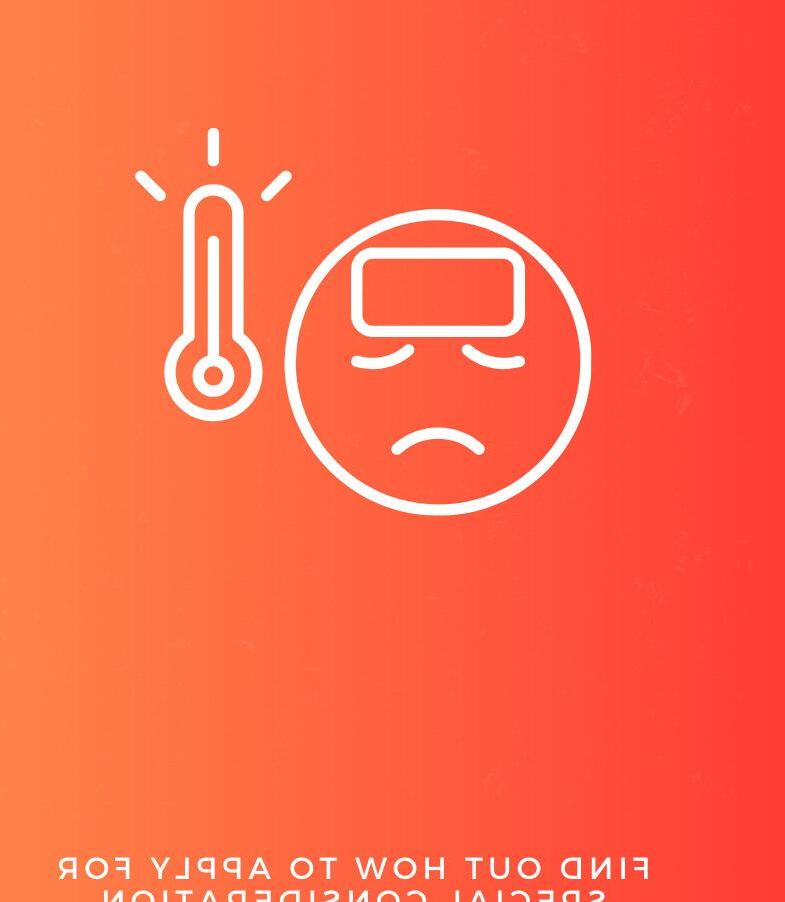

32 1917 headline maker; Image B (1,1,5)
34 Too much space junk: ___ Syndrome (7)
36 Art of the ___ (4)
38 TNG Ship’s counsellor ___ Troi (6)
40 Previously owned (4)
41 Author unknown (4)
43 Neural transmitter (4)
44 Most important election (4)
48 Leave for later (5)
50 Small bird in Image G (3,4)
51 Out, as a candle (5)
52 Not liked by Anakin Skywalker (9)
53 Hannah, Laurie, Sarah? Image D, E, F (9)
Semester 2 Week 9 Crossword Answers
Across (by individual row): HA, On, DE, AI, Fa, Kr, Moes, Wane, Aloe, Haim, SR, EU, CA, GF, OP, Otis, WD, OK Down (by individual column): HO, An, Dab, Pad, Koalas, Renoir, Greg, Mwah, Seem, Cher, Beg, Cap, UFO, Cos, Two, IDK
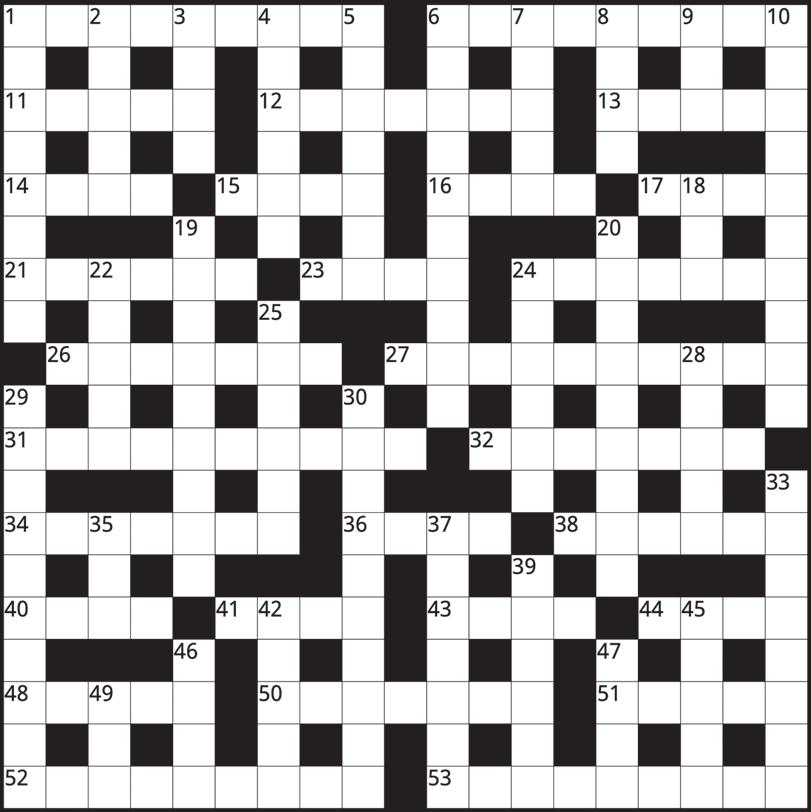
1 Pencil in, perhaps (8)
2 Rightful winner of Guardian Bird of the Year, Image C (5)
3 University union (4)
4 Spain or Georgia? (6)
5 Media as the fourth and fifth ____? (7)

Selene and the Strange are an Eorabased indie band formed earlier this year that are taking the Sydney scene by storm. The band are known for their synth-pop sound and accessible performances around the local Sydney area. With a unique, pretty blend of country and pop genres, their music gives listeners a fresh and mysterious experience.
They often play in small local venues, such as Pleasure Club, with a stage presence and artistic vision that is clear and distinctive. Their most recent show at The Vault — as part of the Sydney Fringe Festival — consisted of a captivating performance that tied in indie-rock aesthetics with a mesmerizing aerialist production.
Whilst they currently only have one song available from stream on Spotify, we implore you to see them live for an incredibly atmospheric show.

Check out the band on Spotify here!
6 Monaco resort and delectable biscuit (5,5)
7 Muscat resident (5)
8 Large deer (4)
9 Separatist group in Scifi series The Expanse (3)
10 Complaining mutters (10)
18 Succeeded by the SEARCH foundation (3)
19 “An ___ Disorder”: 32A (9)
20 Stocks in October 1929 (9)
22 Proudhon’s proclamation: “Property is ___!” (5)


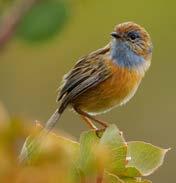
24 “Make sure the milk isn’t off” (3,3)
25 Heavenly streaker (6)
28 Worker’s group (5)
29 BLF Secretary during the Green Bans, Image H (4,6)
30 Weimar Germany President 19251934 (10)
33 First and last meals together, maybe? (3,5)
35 Witness (3)
37 Two that match (1,4,2)
39 Better, to an impatient boss (6)
43 “Then live, Macduff; what ___ fear of thee?”: Macbeth (4,1)
45 White house? (5)
46 Tailless amphibian (4)
47 Enterprise helmsman, Image I (4)
49 Bankers union (3)
